
Home » Travel Guides » Iraq » 15 Best Places to Visit in Iraq

15 Best Places to Visit in Iraq
When you think of Iraq you may well think of smoky battlefields, cruise missiles, and charging tanks. Years of conflict have besieged this country, and while Iraq continues to struggle with political strife, there is much to see here other than just the scars of war. This country is one that is covered in natural beauty, such as the winding waterways of the mighty Tigris and Euphrates rivers. It is often known as the Cradle of Civilization and this is a reference to its ancient Mesopotamian cities that are famed for their innovations in science, writing, literature, medicine, theology and law.
This is also the old home of Babylonia which used to be the stomping ground of Alexander the Great. Mysterious towns like Ur mix with Ottoman relics and famous mosques along the borders and you will also find stunning canyons that carve out large crescents in the fertile plains of Iraqi Kurdistan.
Lets explore the best places to visit in Iraq :

The 7,000 year old citadel of Erbil has an illustrious history and can be compared to other greats like Cadiz and Byblos.
The massive castle in the center of the city is the great highlight here, and also a UNESCO World Heritage Site.
Other places not to miss include the Erbil Civilization Museum and the Kurdish Textile Center which are a great way to find out all about the history and culture of this amazing part of the world.

Ur is known for its Biblical tales of epic floods and fearsome Babylonian kings, and is also known for one of the most beautiful ancient ruins in the region.
Located in the southern Iraqi deserts, Ur is the home of the Ziggurat, a tall structure with high walls and steep staircases that would have been used in the days of old to worship the Akkadian moon gods.
Certainly this is one of the oddest and most mysterious sights in Iraq.

It goes without saying that the city of Baghdad has suffered in recent times due to incessant bombing and attacks by insurgent groups.
To enter the Green Zone of the city you will need to get a special permit, but there is hope that one day soon people will be able to visit this city once more.
When they do, they will find copper bazaars, Assyrian treasures in the National Museum, and monuments such as the Unknown Soldier.

Many people know the name Basra as it was the location for one of the most pivotal battles that happened during the Iraq War.
If you scratch below the surface of this city, however, and you will find one of the most fascinating destinations in the entire country.
The area is covered in palm forests and the city sits on the Shatt al-Arab River which is lined by the sunny Corniche al-Basra where you can walk along and enjoy the cool evening breeze.
This is also the spot where you will find some of the most famous shrines of Islam’s first imams.

This town may not sound like much but it is actually the place where 30 million pilgrims make their way every year.
The area is sacred to Shiite Muslims because of the Imam Husayn Shrine which is the final resting place of the martyr Husayn ibn Ali who died in 680 AD during the Battle of Karbala.
It is also said to be the spot that the archangel Gabriel prescribed as one of the most sacred places on earth.
As such, every year this town sees thousands of devotees arrive for the Ashura Day of Atonement.

Sitting in the dusty deserts of western Iraq are the towering columns and ornate temples of Hatra.
As a result, this place is known as one of the most amazing archaeological sites in the entire country.
Here you will get to glimpse wonders of the Parthian age at this UNESCO World Heritage Site, although in recent years some of this area has been destroyed and it remains to be seen how much of Hatra is still intact.
7. Dur-Kurigalzu

The ancient abandoned ruins of Dur-Kurigalzu date back 3,500 years and this part of Iraq used to be the heart of the Cradle of Civilization of southern Mesopotamia.
Close to the mighty Euphrates and Tigris rivers, this was the home of the Kassite kings of old who built the Ziggurat in the 14th century.
This can still be found here in the form of striking stonework and mud-brick walls that rise into high towers above the desert and this would also have been used as a marker for camel caravans en route to Baghdad.
8. Sulaymaniyah

This is one of the most welcoming and relaxed cities in Iraq and is deemed safe to visit by some foreign governments.
Sulaymaniyah is located on the rugged mountains in northern Iraq and has a cool climate compared with many other cities in the country.
It also has a thriving arts scene and is famous for its wealth of delicious eateries where you can enjoy toothsome spiced kofta as well as biryani and an array of other delicacies.
If you want to take in the oases towns and valleys of the Goyija and Azmer ranges then this is also a great place to base yourself before venturing further afield.

The name Babylon conjured up images of ancient empires, hanging gardens, and epic battles between Alexander the Great and Persian kings.
It is fair to say that restoration and preservation have rather taken a back seat here in recent times, but you can still take in some of the majestic castles here as well as the vast remains of Homera.
As you explore Babylon, know that you are walking in the footsteps of great emperors of this part of the world, and you can marvel at artifacts such as gracefully crumbling lion statues and imagine how the Hanging Gardens of Babylon would once have looked.
10. Ctesiphon

In the middle of the 4th century BC, Ctesiphon was a small Persian settlement on the banks of the limpid Tigris River.
In the 1st century AD however it became the Parthian capital and grew to include the city of Seleucia.
This meant that Ctesiphon became one of the biggest cities in the region by the 7th century and this is where the Arch of Ctesiphon was built.
Also known as the Taq Kasra, this is a Sassanid dome that is one of the largest of its kind in the world and one of the most important archeological sites in the region.

Unfortunately the name Mosul has become synonymous with some of the worst destruction in Iraq to date.
For several years the town had been under the control of insurgents and it is now a battleground for the Iraqi military forces.
The hope is that Mosul will soon be liberated and that this city that has over 2,000 years of rich history will once again be a place that people can visit.
There are some truly amazing sights to be seen here including the crumbling ruins of the Umayyad Mosque that dates from 640 AD as well as the cobalt-blue marble work of the Yahya Abdul Kassem Mashad.

The Kurdish town of Dahuk sits in a small dusty valley in northern Iraq and is just a short bus journey from the Turkish border.
This means that this is one of the easiest places to visit in Iraq and perhaps for this reason it also has a reputation for being one of the friendliest and most welcoming.
The town has a wealth of cafes and teahouses and as this is the home of the University of Dahuk there is a strong university town atmosphere here.
There are babbling waterfalls located nearby as well as colorful Kurdish marketplaces where you can buy local products like spices and carpets.

Kirkuk straddles Iraqi Kurdistan and the rest of the country proper and is also famous for its rich oil supply.
This means that this part of Iraq has seen a lot of violence and turmoil, and some of its main sights are all things that allude to its tragic past.
These include its vast, smoldering oil fields located at Baba Gurgur, as well as ancient citadels which are now crumbling from neglect and the scars of prolonged battles.
14. Nineveh

This used to be the Biblical epicenter of the Assyrian Empire and was made famous by the prophet Jonah, making this an important spot in theological history.
Unfortunately much of this city has been ransacked over the years, but you will still find beautiful ruins such as Kuyunjik as well as some ancient gates of the city.

Zakho is a border town nestled close to Turkey and for this reason it has a clutch of good restaurants and hotels and is one of the most accessible places in Iraq.
It is also said to be the original spot where Christian missionaries first settled in the country and some of its highlights include the pretty Delal Bridge that stretches over the Little Khabur as well as the haunting ruins of Zakho Castle.
15 Best Places to Visit in Iraq:
- Dur-Kurigalzu
- Sulaymaniyah
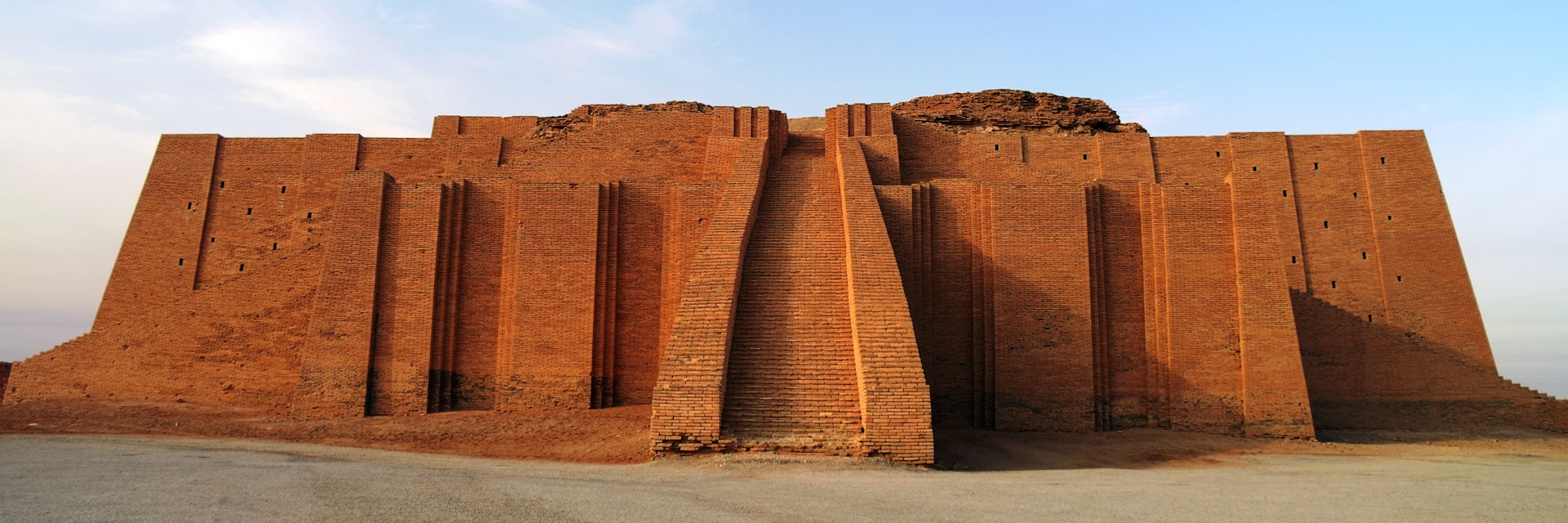
Getty Images/iStockphoto
Torn between its glorious past and its recent bloody history, Iraq is a country in turmoil. Just as the place was beginning to recover from the 2003 US-led invasion and its aftermath, jihadist group Isis took control of large swathes of the country's north in 2014. The tide may have turned back in favour of the Iraqi government with the recapture of Mosul and other cities in 2017, but most of Iraq remains extremely dangerous.
Latest stories from Iraq
Filter by interest:
- All Interests
- Adventure Travel
- Art & Culture
- Beaches, Coasts & Islands
- Food & Drink
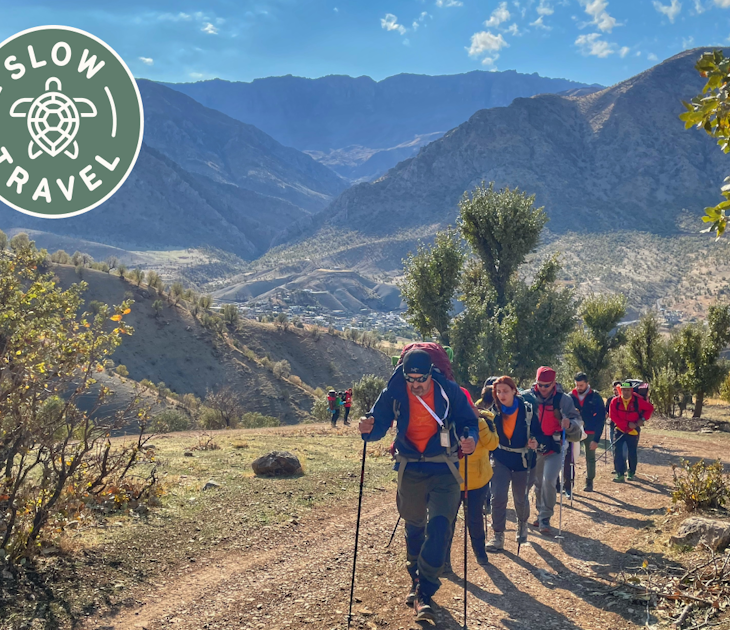
Jun 13, 2023 • 3 min read
A new long-distance hiking trail in the Kurdistan region of Iraq is helping travelers see a side of the country that doesn’t often make the headlines.
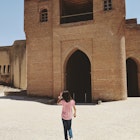
Aug 21, 2019 • 2 min read
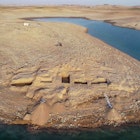
Jul 11, 2019 • 2 min read
in partnership with getyourguide
Book popular activities in Iraq
Purchase our award-winning guidebooks.
Get to the heart of Iraq with one of our in-depth, award-winning guidebooks, covering maps, itineraries, and expert guidance.
THE 10 BEST Things to Do in Iraq
Things to do in iraq, explore popular experiences, popular cities in iraq.
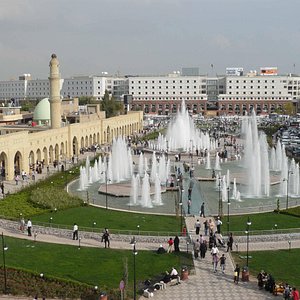
Top Attractions in Iraq
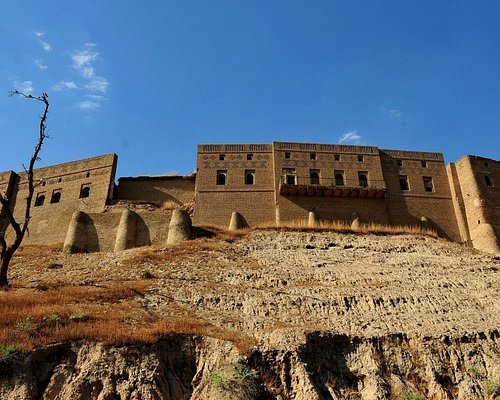
What travellers are saying


Amazing places to go when you visit Iraq
Table of Contents
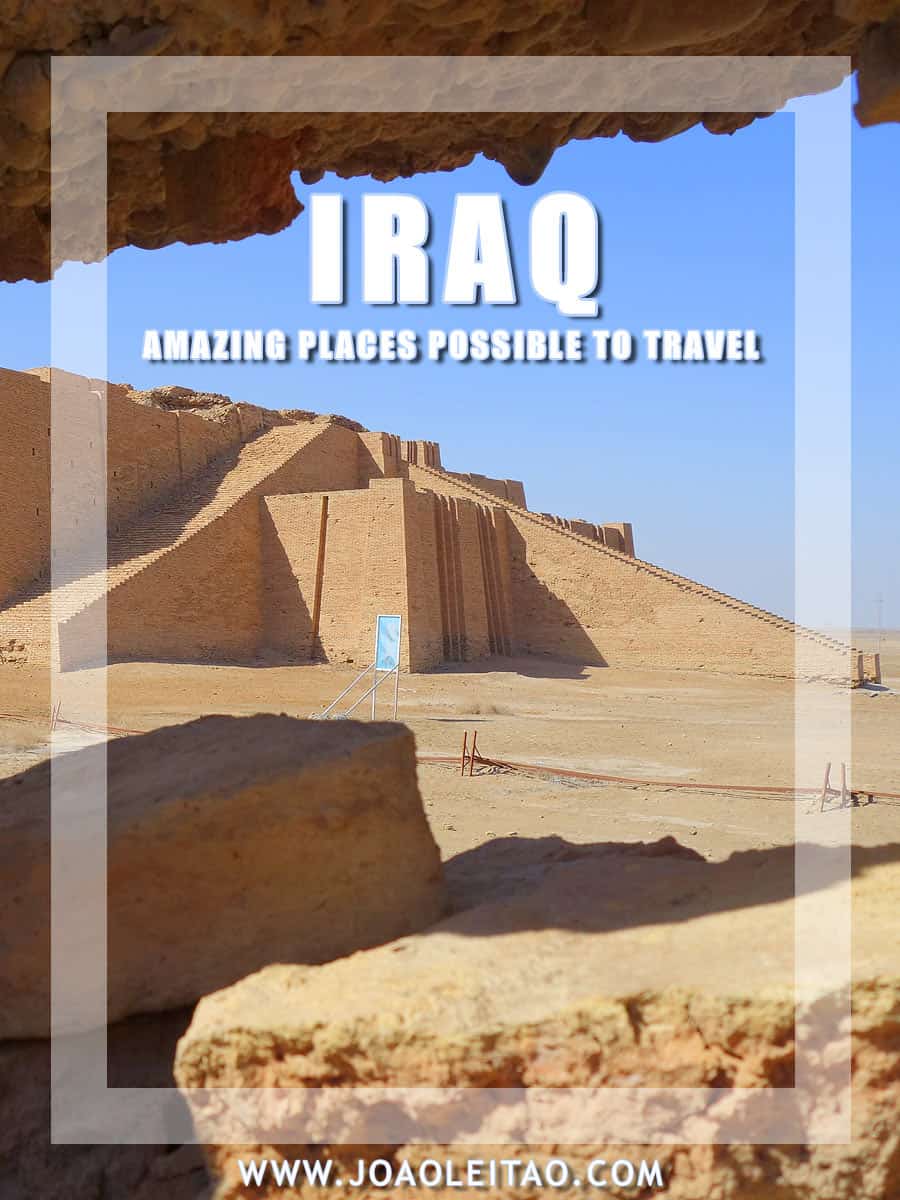
Iraq is a fascinating country located in Western Asia . Touristically speaking, Iraq lost its place in the world tourism arena.
For a long time forgotten, Iraq is now a mysterious country since we don’t hear people speaking about traveling there that often (due to the lack of security).
Before the unilateral American incursion of its territory, Iraq was safe and had thousands of western tourists visiting it every year.
Because Iraq is located in the heart of Mesopotamia, where humans established the first great civilizations.
This said, Iraq is a natural born historical nation. Present in the early birth of modern civilizations, places like Samarra, Ur, Hatra and famous Babylon still ring the bell when mentioned.
Unfortunately today, due to the presence of radical militant Islamic groups that took advantage of the political and security void, Iraq is a no-go destination for the most of its north and center territories.
Instagramming from Iraq
View this post on Instagram A post shared by NOMAD REVELATIONS🐪TRAVEL BLOG (@joaoleitaoviagens)
The Foreign and Commonwealth Office of the United Kingdom Government advises against all travel to:
- Anbar province
- Ninewah province
- Salah-Al-Din province
- Diyala province
- Tam’mim (Kirkuk) province
- in Erbil province, south of Road 80, and within 10km of the border with Ninewah province between Road 80 and Road 2
This means that, apart from these hard core dangerous areas, Iraq can still be visited, although the FCO advises here against all but essential travel to the rest of Iraq.
ATTENTION : Middle-east is very unstable and you should know that travelling to this region is not 100% safe. This blog just shares travel information, and by this, I mean that I am not responsible for any misinformation or anything that can happen to you. Be conscientious and travel safe and sound. Visit the Iraq Travel Warning page by the U.S. Department of State.
Travel to Iraq – important
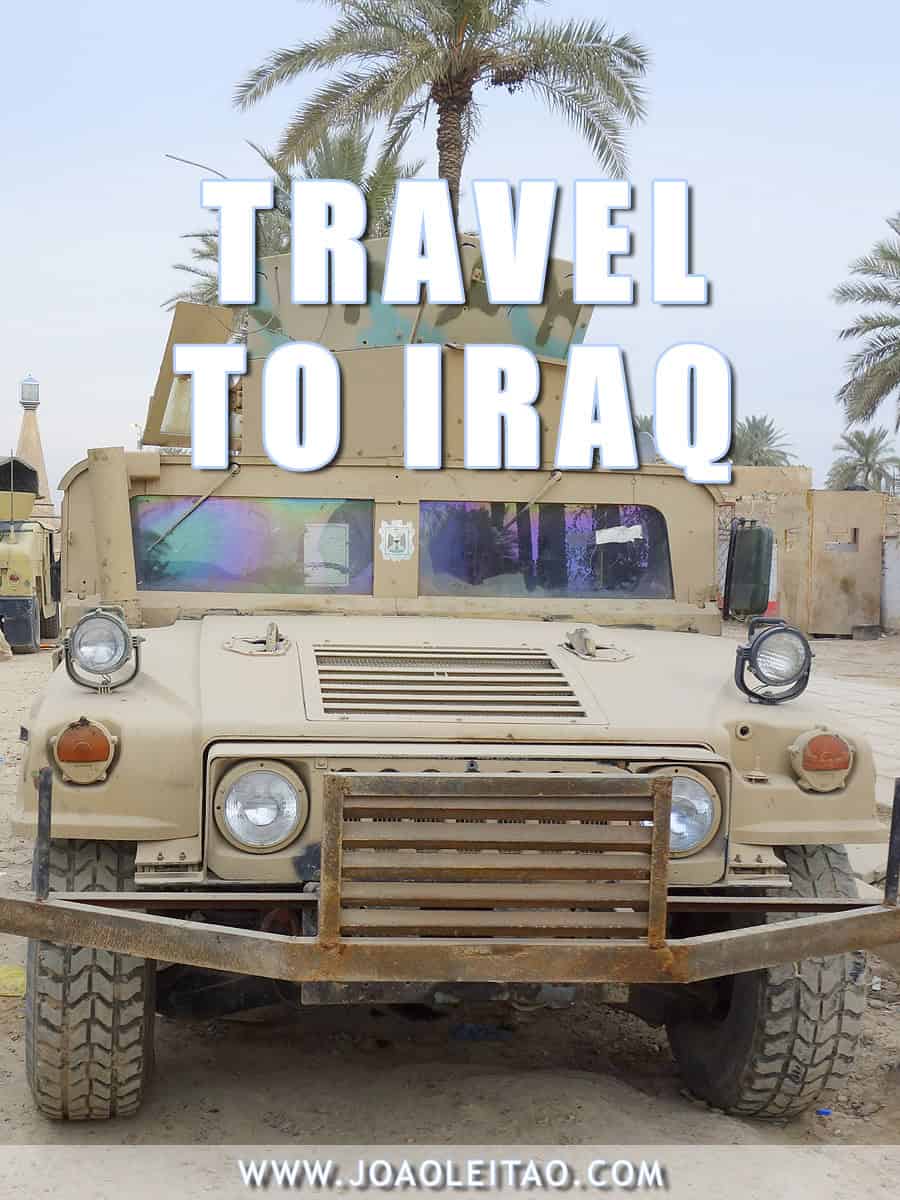
Visiting Iraq is difficult because it’s not a safe destination. Yet, it’s full of very friendly, proud and hospitable people.
On this page, I make a list of 24 amazing places in Iraq which are undoubtedly the country’s major tourist attractions. Iraq has much more than this to see, but this is just a list of locations that we can visit and that are not off limits to westerners.
Three regions in Iraq are somehow safe for the adventurous travelers
- Iraqi Kurdistan – controlled by the Kurd government headed by President Masoud Barzani. The capital city is Erbil.
- Baghdad – the capital city of the Republic of Iraq controlled by the Iraqi government headed by President Fuad Masum.
- Southern Iraq – controlled by the Iraqi government and other shia armed militias. The most important cities are Karbala, Najaf and Basra. These shia militias are currently protecting and sheltering thousands of Christian and Yazidi refuges that run away from the northern part of the country.
Amazing Places to Visit in Iraq
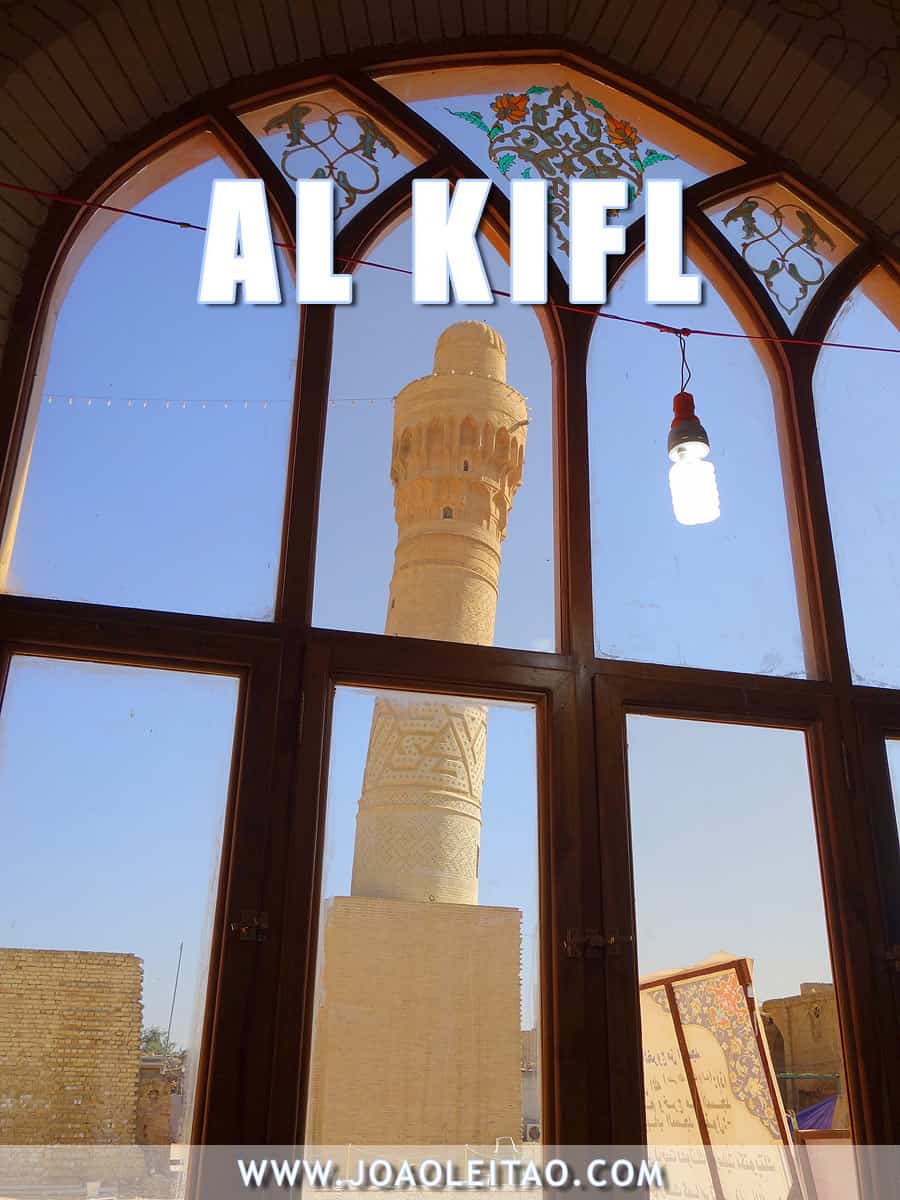
Al Kifl is a city located in the south-east of Iraq, on the banks of the Euphrates River, between Najaf and Al Hillah. Al Kifl’s importance is due to be the location of the Bible prophet Ezekiel’s tomb.
This place was once a major tourist attraction with thousands of visitors. Inside the walls, this shrine has a dome with Hebrew inscriptions mixed with floral Islamic designs.
Before the war, Iraq had the second largest Jewish community in the Middle East (the first being Israel and the third being Iran ).
Yearly, thousands of Jews used to visit this place during Easter. Nowadays, with the lack of security, this is not possible anymore as most Iraqi Jews left the country.
Photo gallery of Al Kifl
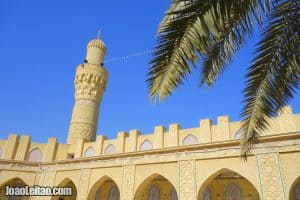
2- Al Mada’in
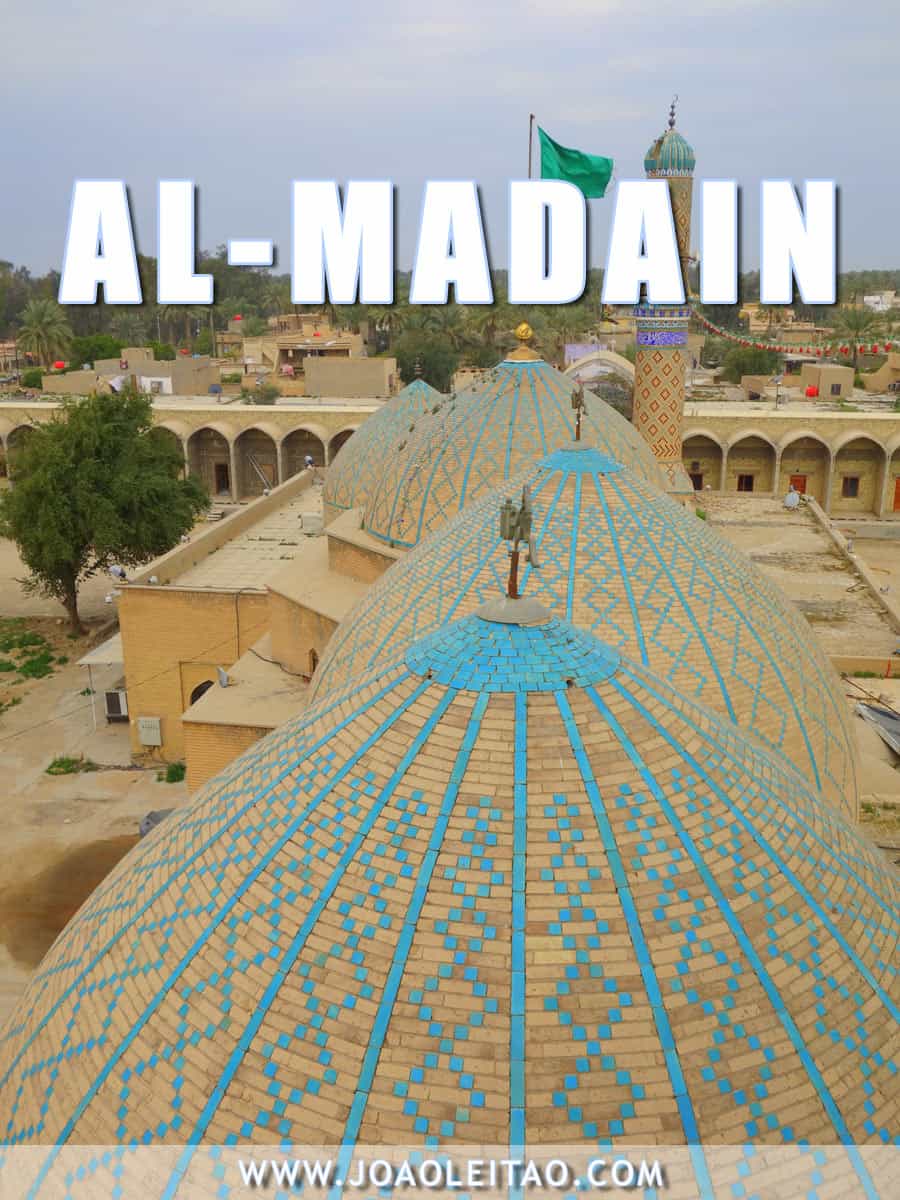
Al Mada’in is an ancient settlement with noticeable regional importance. Here passed the Sasanian, Rashidun, Umayyad, Abbasid and Buyid Empires. It is said that it was the Iranians who built the city and was later rebuilt by King Zab, Alexander the Great and King Shapur II.
In recent history, Al Mada’in is the location of the pilgrimage site of Salman al-Muhammadi’s Tomb. Since this is a Shia shrine inside a majority Sunni town, Al Mada’in has a very strong army presence.
Also known as Salman the Persian, he was the companion of Muhammad (the central figure of Islam) and Ali (the cousin and son-in-law of Muhammad).
Inside the mosque, one can also visit the tomb of Hudhaifa al-Yamani and the grave of Jabir Abdullah al-Ansari.
A few kms south of Al Mada’in we can visit the archaeological site of Taq Kasra (the only remaining structure of the ancient city of Ctesiphon).
3- Al Qurnah
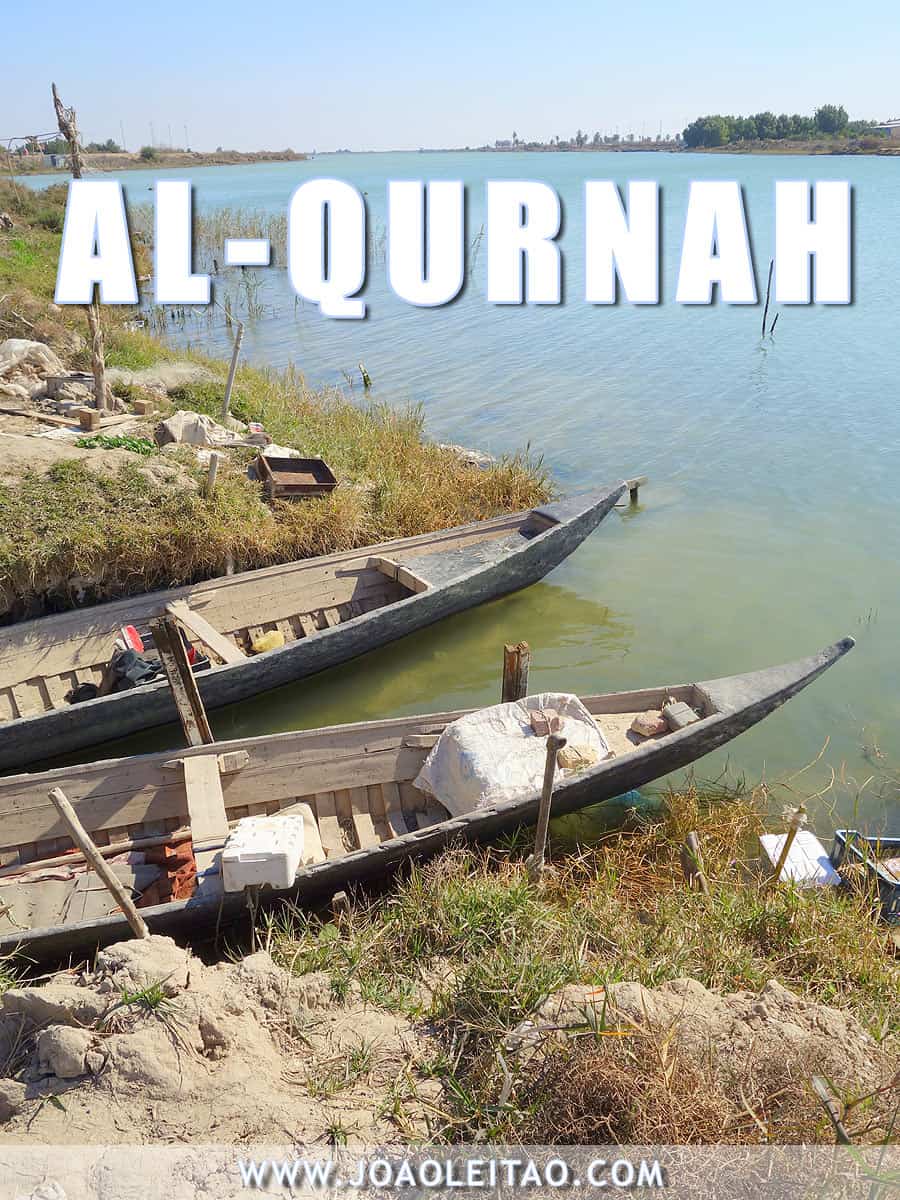
Al Qurnah is a small town located in south Iraq. This is the confluence of the Tigris and the Euphrates River. You can easily visit the exact place where the rivers meet.
The ancient Adam’s tree inside the public garden is said to be Bible’s Tree of Knowledge. Some say that Qurnah is the actual location of the Garden of Eden. It seems Abraham himself was there 4,000 years ago acknowledging the importance of this tree.
This city is also known for being the scene of the Battle of Qurna. During the First World War, the British invaded this territory in order to defeat the Ottoman troops.
4- Al Ukhaidir
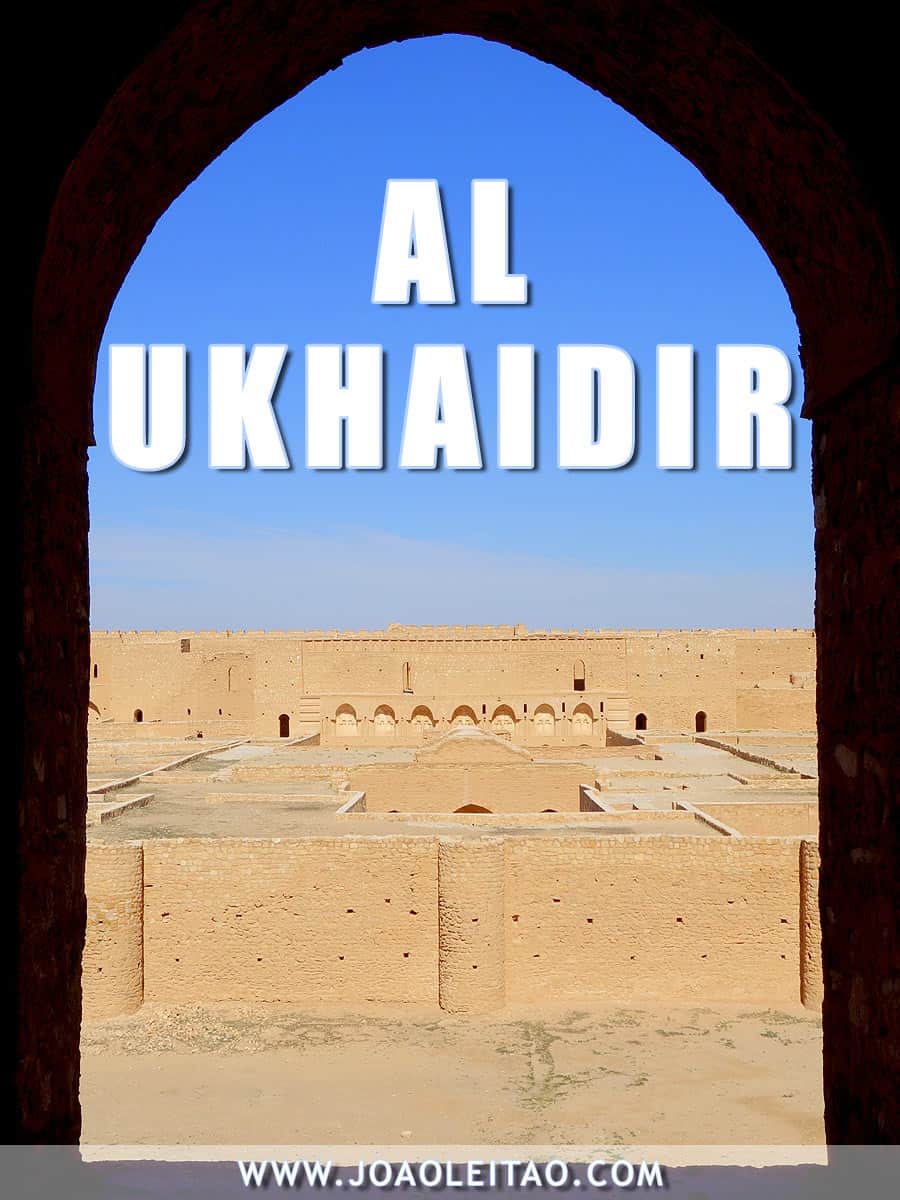
The Fortress of Al-Ukhaidir, also known as the Abbasid Palace of Ukhaider, is located about an hour drive from Karbala.
This rectangular shape fortress, erected in the year 775 BC, was used by the Abbasid caliph As-Saffah with the purpose of defending his territory.
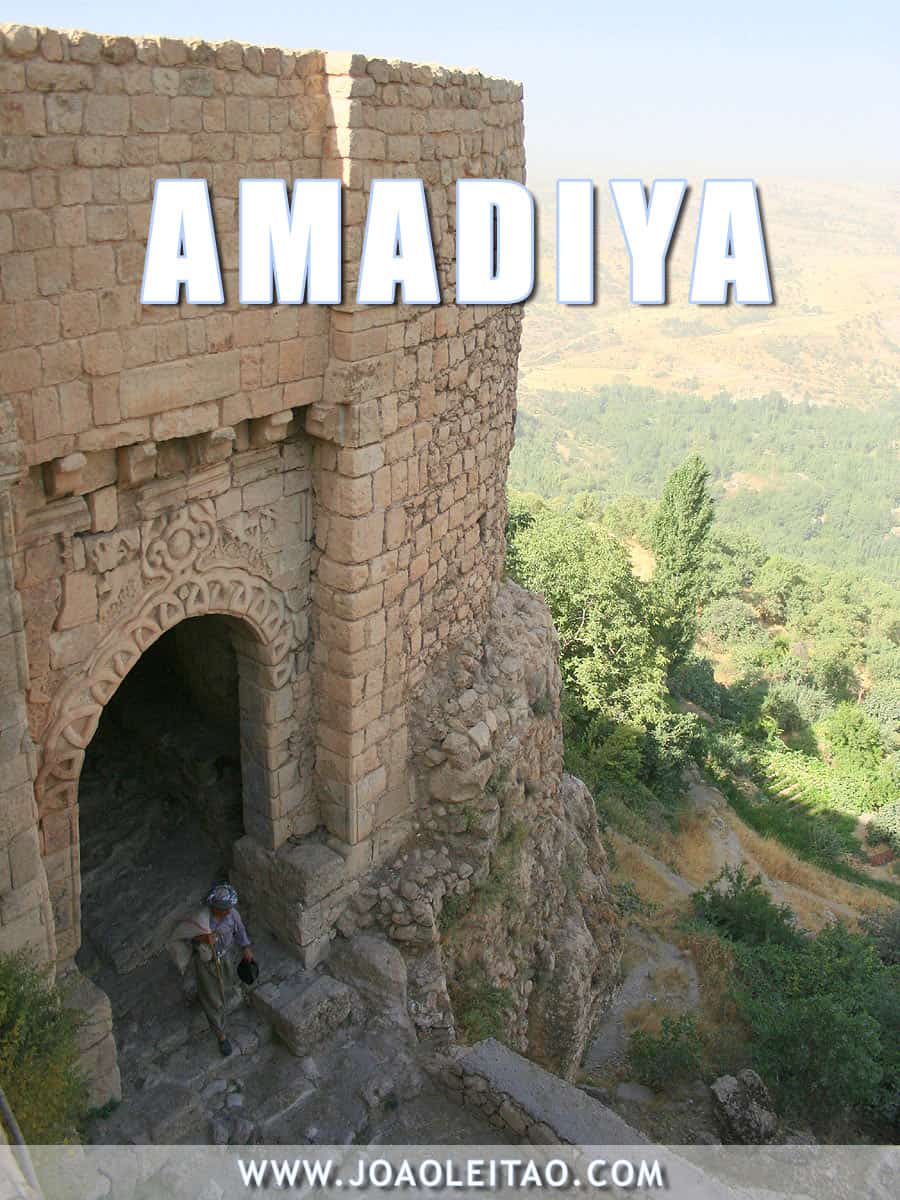
Amadiya is a city built on top of an inhospitable rocky mountain, 1500 meters above sea level.
Once upon a time, the only accessible entrance was via a staircase carved on the rock itself.
The various points of interest to visit are the tombs of the Kings, the panoramic view from the top of the mosque, the Market Street, the fabulous Badinan Gate, Sulav springs and Kani village.
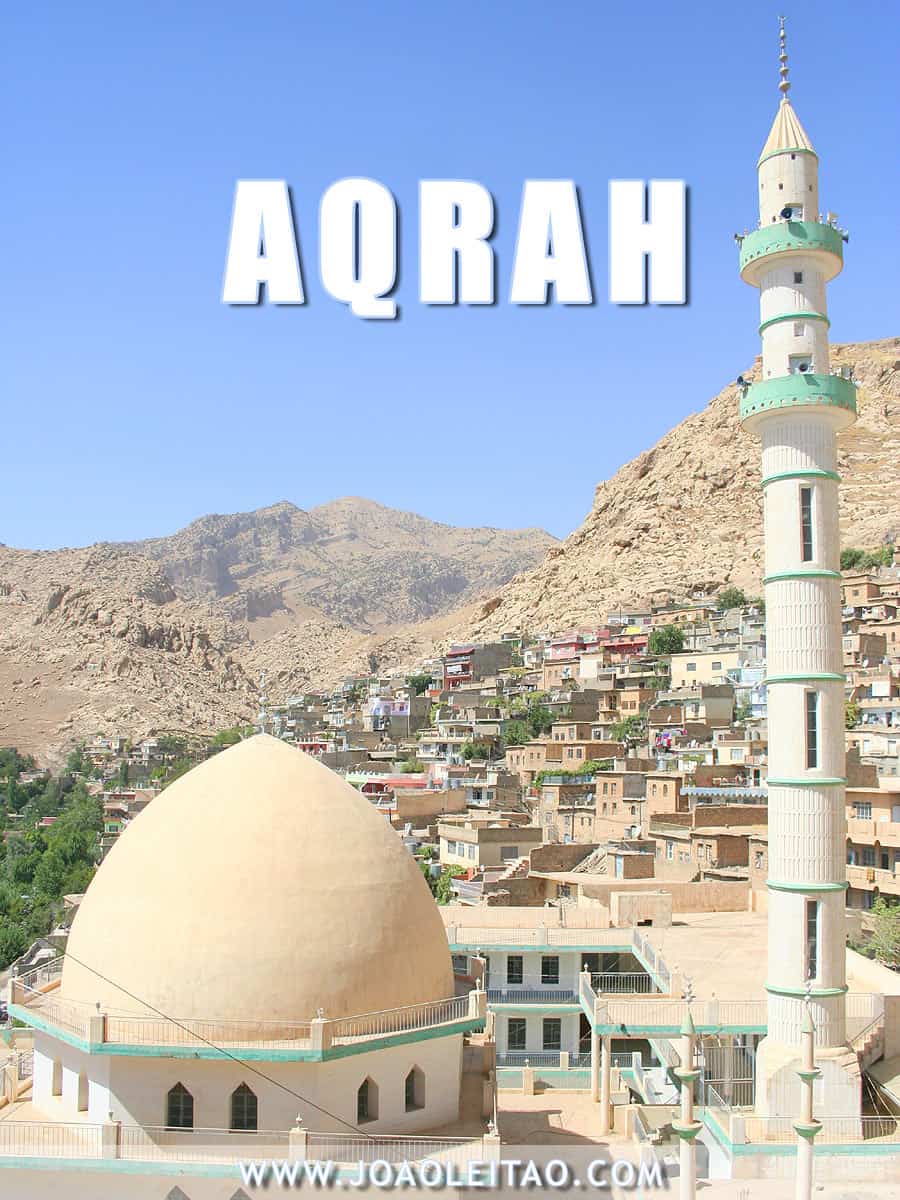
Aqrah was the most spectacular place of my trip to Iraqi Kurdistan . Aqrah name means “sterile”, since the land is not suitable for agriculture purposes. Aqrah consists of houses built on the hillside, a mosque with a prominent minaret, the mountain Zarvia Dji and two waterfalls.
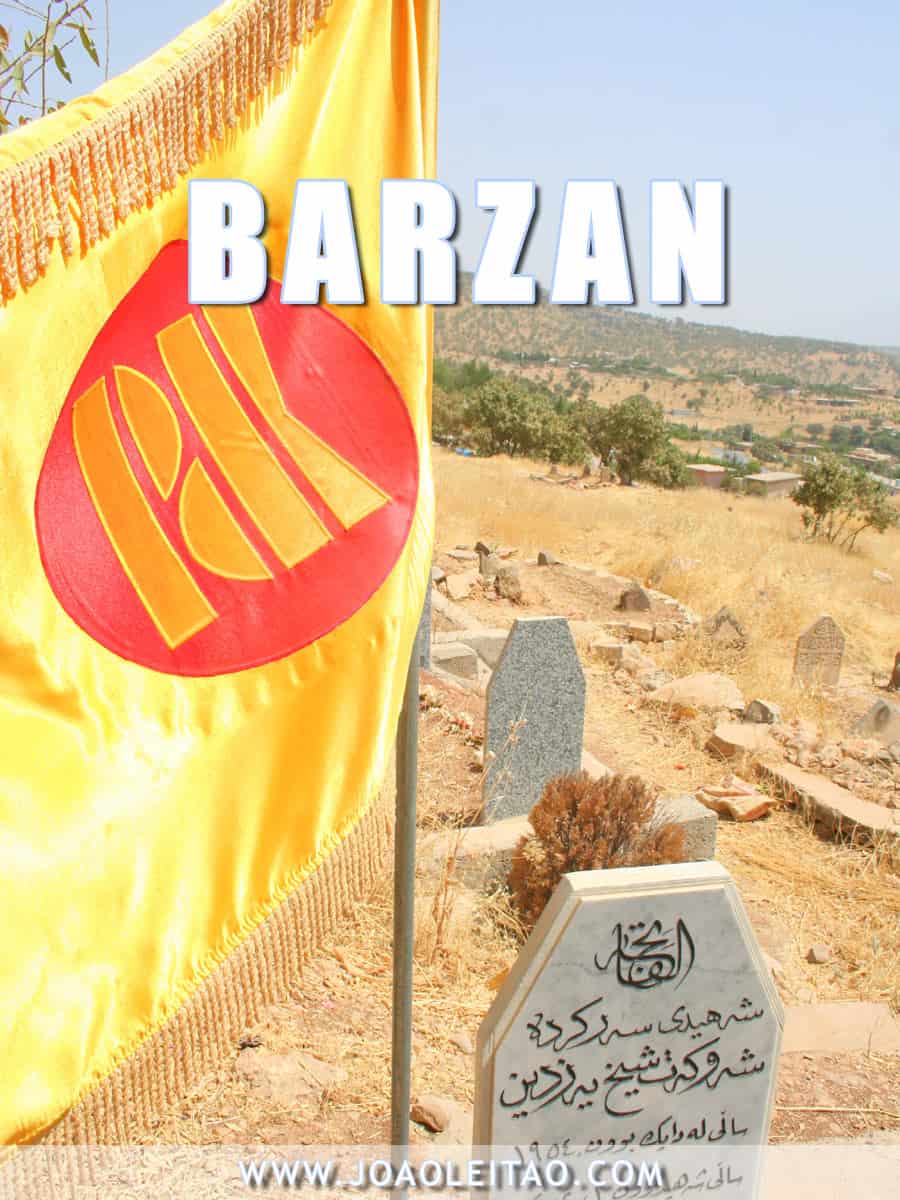
Barzan is a town located in Erbil province along the Great Zab river. Barzan is the birthplace of Sheikh Ahmed Barzani and Mustafa Barzani. They are the famous Kurdish leaders from the family in power in Iraqi Kurdistan.
In Barzan we can visit the Centre for Kurdish Studies, the Kurdish Independence Museum and the martyrs cemetery.
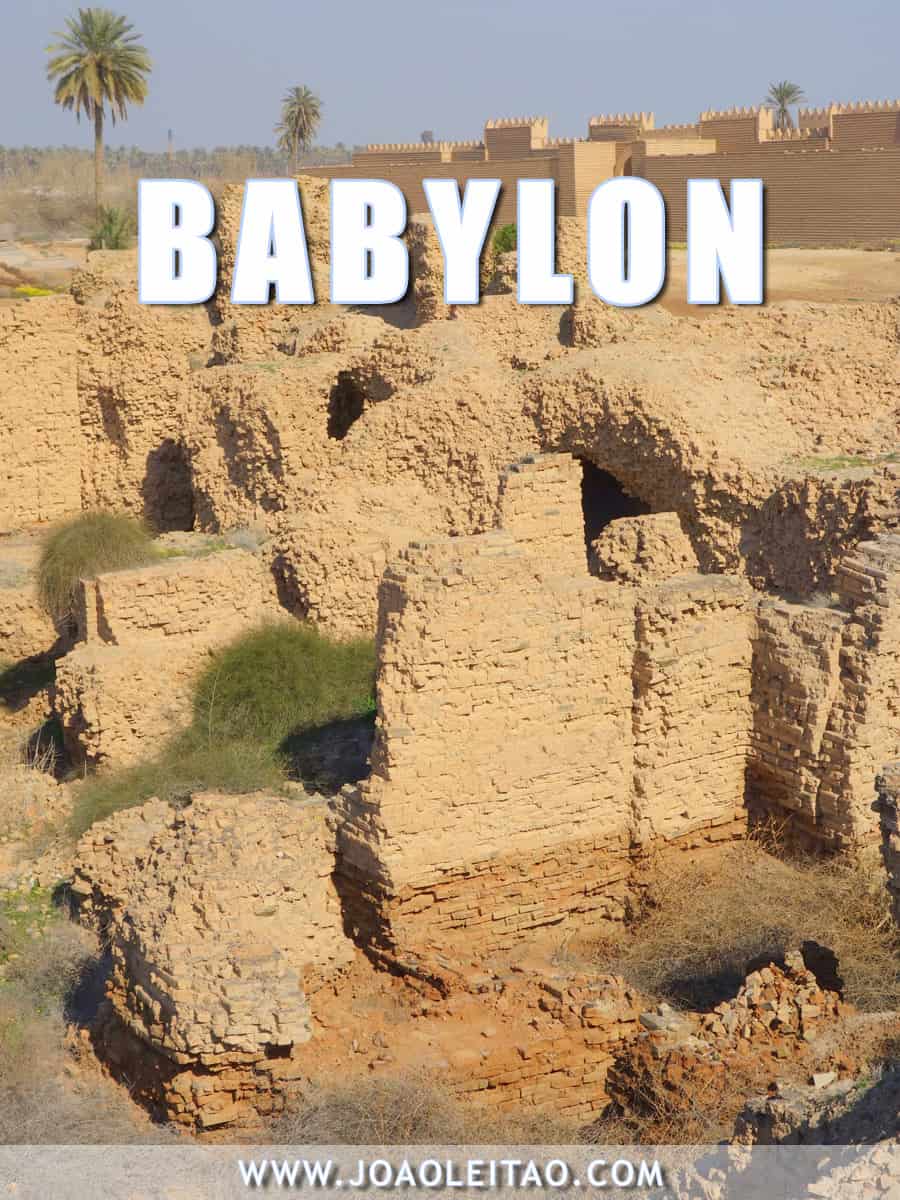
Babylon was an important city in ancient Mesopotamia.
Situated on the banks of the Euphrates River, this archaeological site is one of the highlights when you visit Iraq.
Babylon was one of the largest cities in the world during the sixth century BC. German archaeologist Robert Koldewey unveiled the buried monuments, contributing to one of the greatest archaeology discoveries of all time.
Instagramming from Babylon
This city was a massive urban center in former times composed of Ancient walls, temples and the Etemenanki ziggurat dedicated to Marduk, which inspired the Tower of Babel and the Hanging Gardens. Unforgivable not to visit Babylon once in a lifetime.
Near Babylon, we can also visit the inside of Saddam Hussein’s Summer Palace.
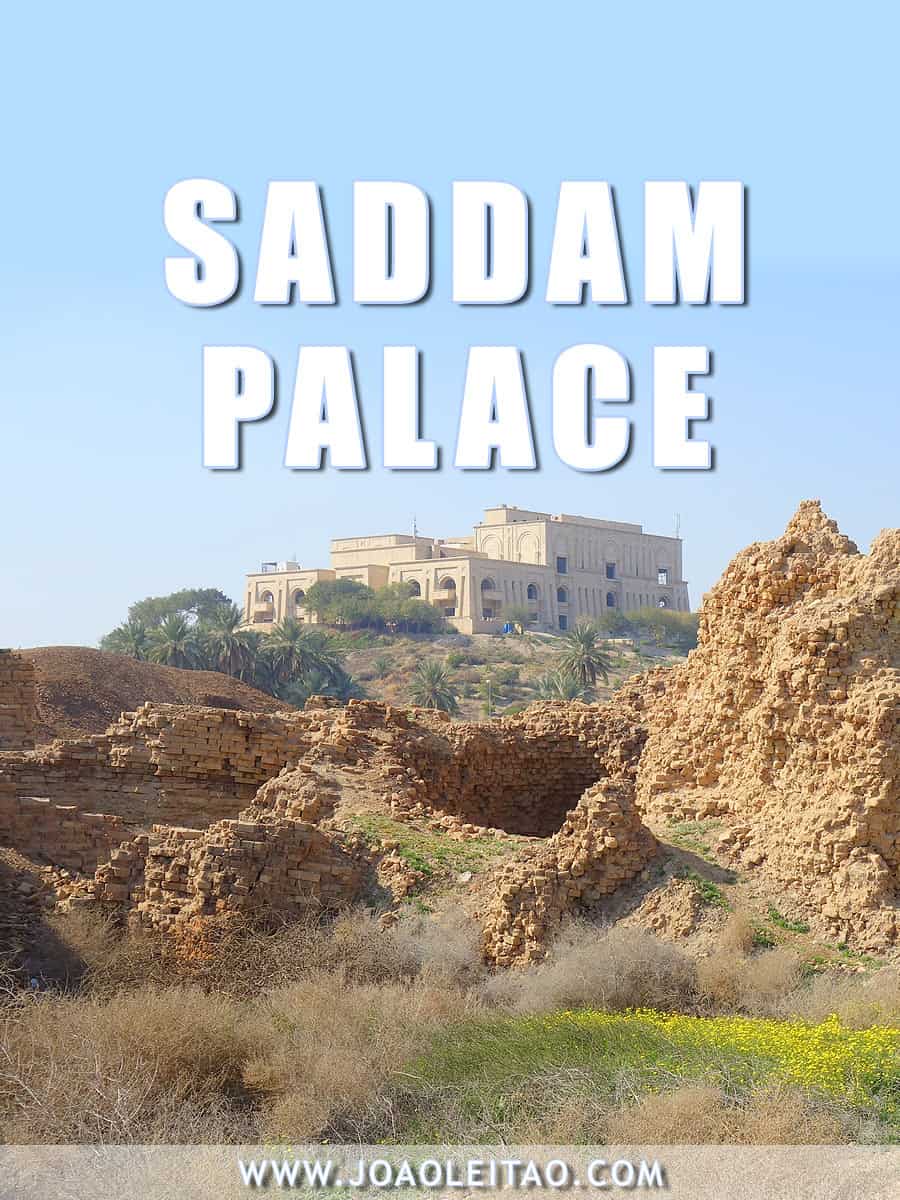
Instagraming from Babylon
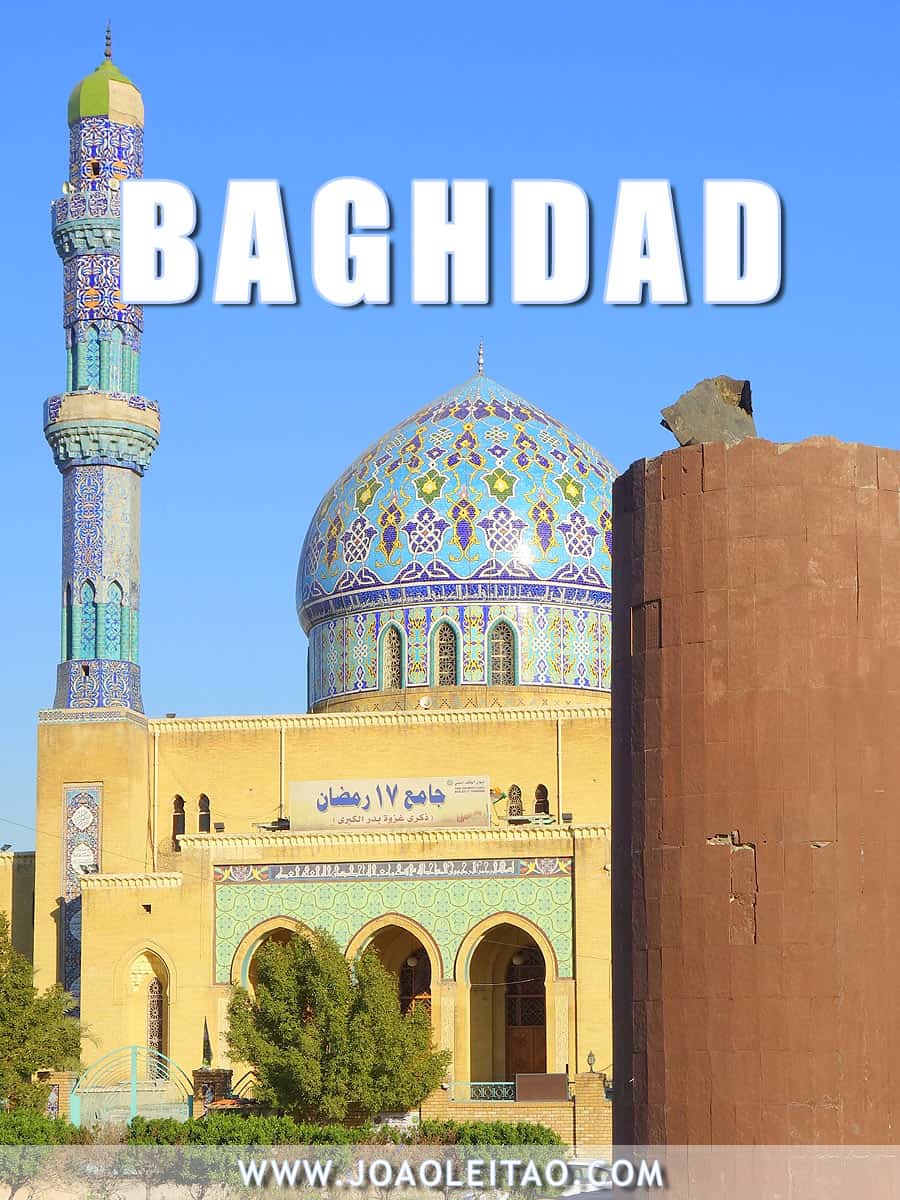
Baghdad is the capital of Iraq and its cultural-political center. With its 6 million people, Baghdad is considered to be one of the most dangerous cities in the world.
The current difficult political situation due to many years of war and sectarian problems caused by extremist Islamic militant groups makes this city witness suicide attacks almost daily.
At a touristic level, the city faces serious difficulties due to the extreme police control and military presence.
If you’re courageous enough to visit Baghdad, you can go to the Museum of Baghdad, the Al-Faw Palace (Water Palace), the famous Firdos Square and the Swords of Qadisiyah aka the Victory Arch.
Instagramming from Baghdad
Other nice places are the Al-Shaheed monument, the National Museum of Iraq, the famous book market in Mutanabbi Street, Umm al-Qura Mosque, the Ottoman Castle, the Cathedral, the Khan Murjan caravanserai, the al Rashid Street market, the Tahrir Square and the al-Kadhimiya shrine.
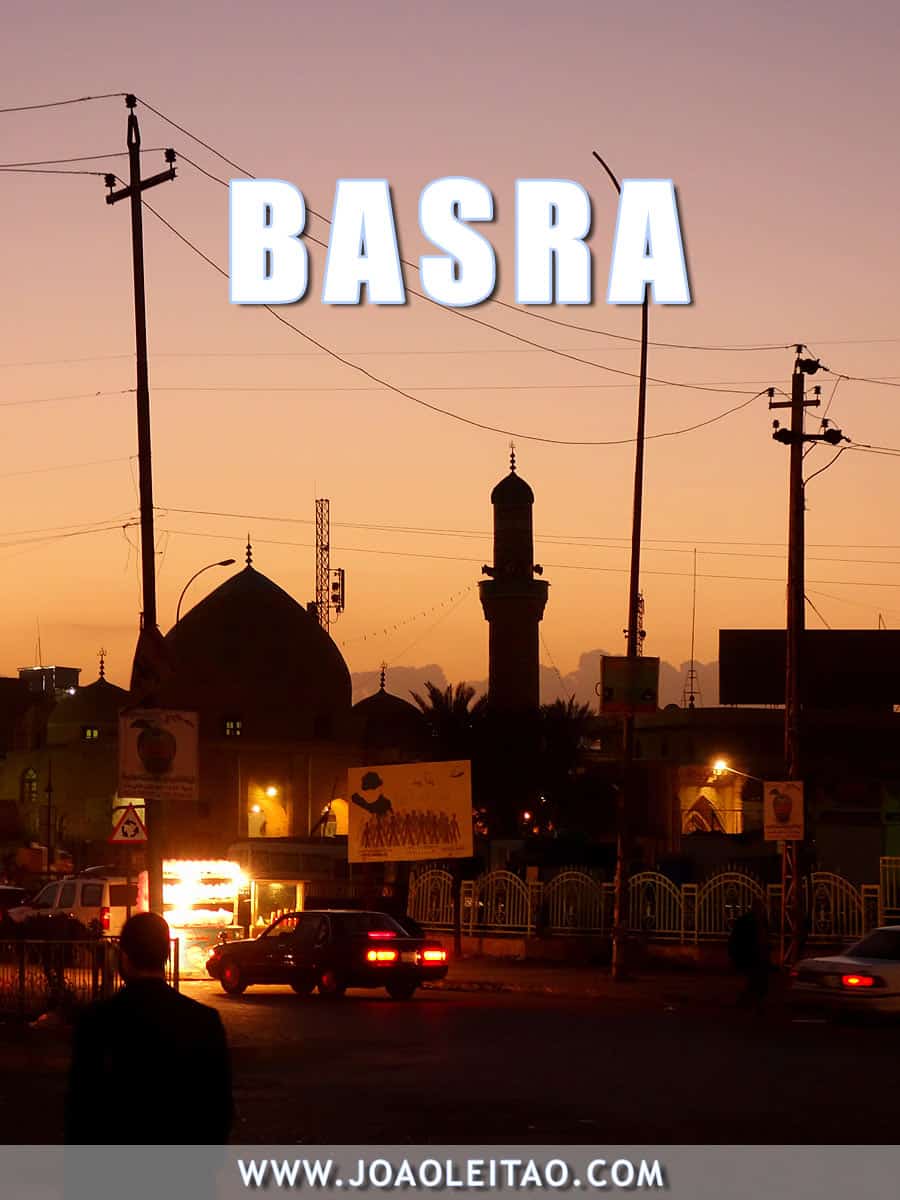
Basra is one of the largest cities in Iraq, and where its most important port is located.
Set on the banks of the River Chatt al-Arab in the south of Iraq, Basra is about five hours drive from the capital, Baghdad.
It is one of the most relevant cities in relation to oil production, contributing to much of the country’s economy.
11- Borsippa
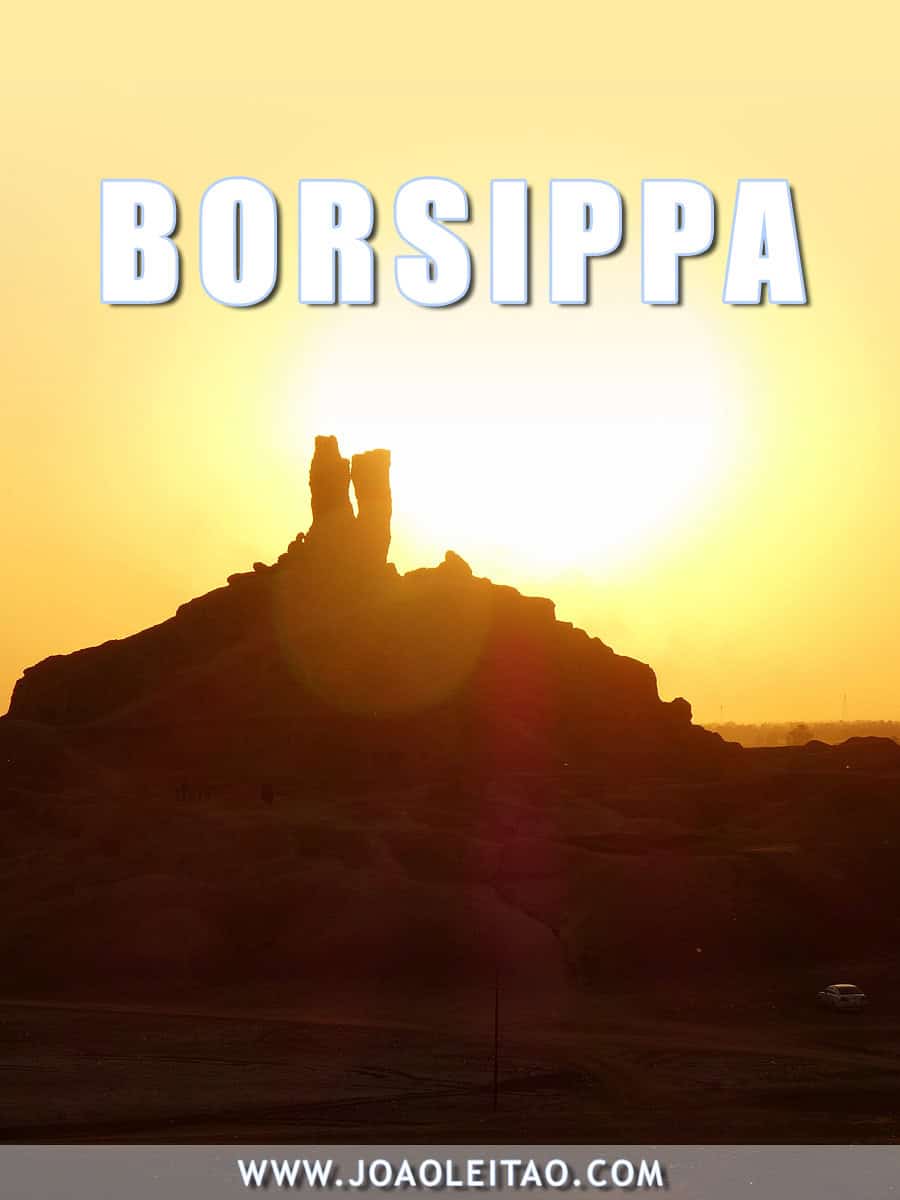
Borsippa was a prominent city in Sumer (the first civilization in the world) which was erected on the banks of the Euphrates River.
It is believed that the ziggurat was erected in honor to the local god called Nabu – the son of Marduk of Babylon. The city is of extreme cultural importance in the historical region of southern Mesopotamia.
12- Ctesiphon
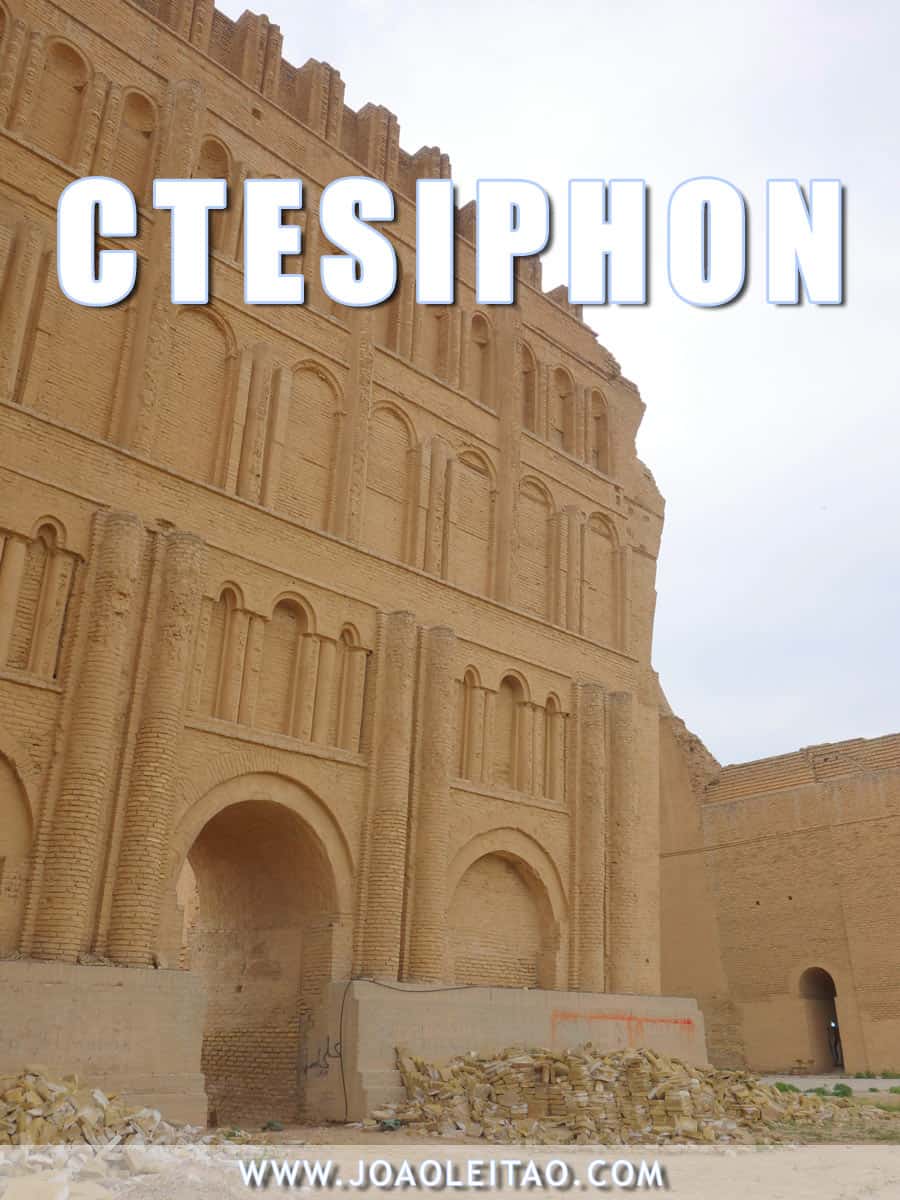
Ctesiphon began to gain local relevance around the second century BC. It was one of the great cities of Mesopotamia and the capital of the Arsacid and Sassanid Empire for almost 1,000 years.
Instagramming from Ctesiphon
This city is mentioned in the Old Testament (the first section of the Christian Bible) and in the Book of Ezra (a book of the Hebrew Bible that describes the restoration of Jerusalem after the Babylonian Jewish exile). Ctesiphon is located along the Tigris River near Al-Mada’in.
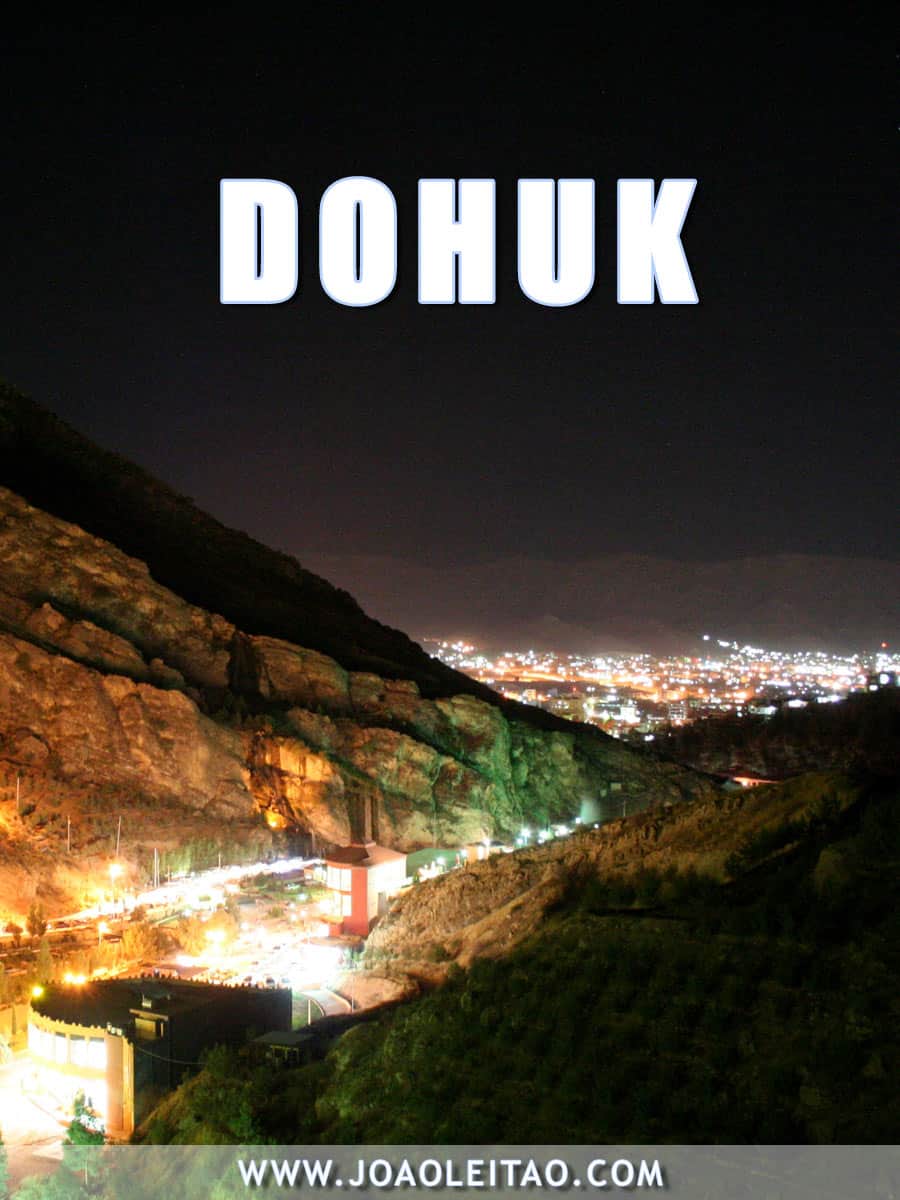
Dohuk is located in northern Iraq along the Tigris River. Most of its population are Kurds and Assyrian Christians. The landscape surrounding the city is quite mountainous and beautiful.
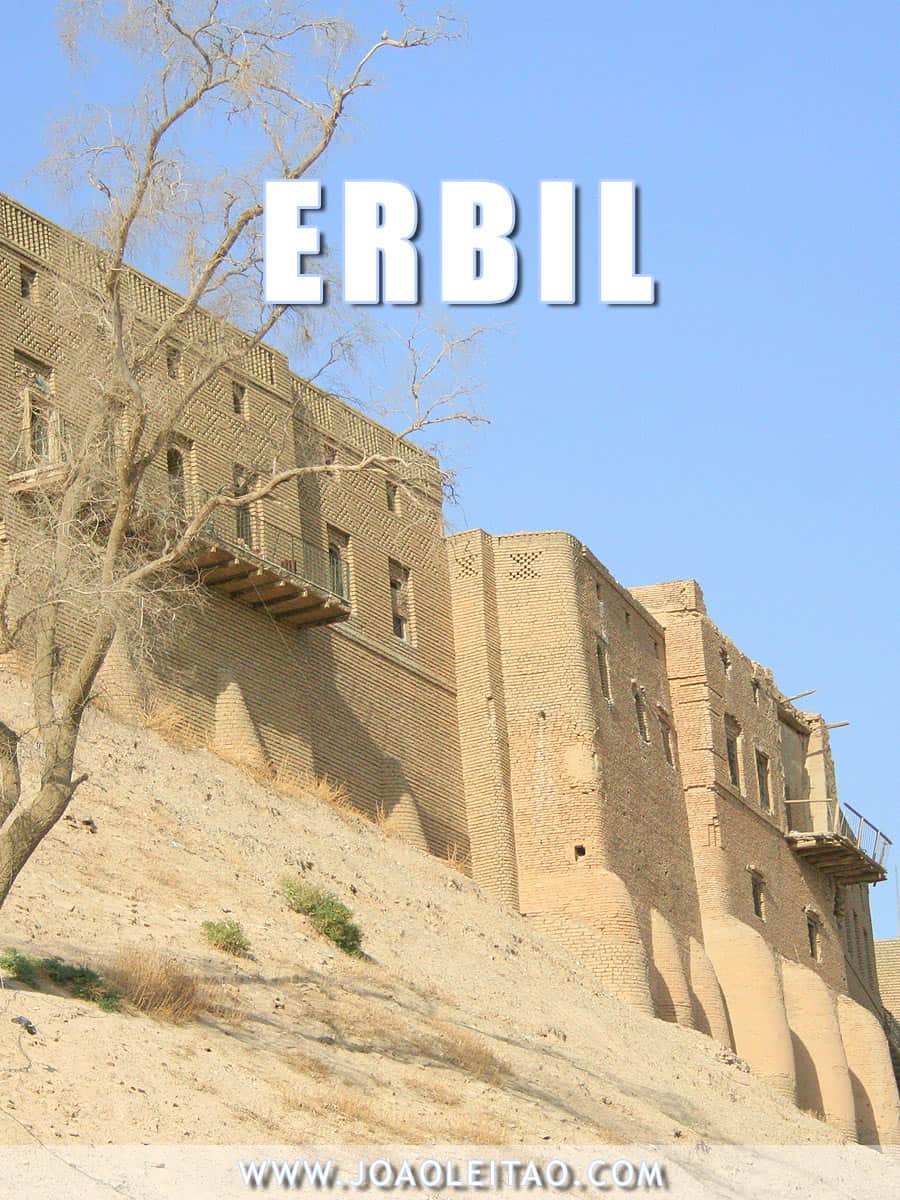
Erbil is the capital city of Iraqi Kurdistan Region, which is located 4 hours drive north of Baghdad. Erbil it is one of the oldest cities in the world. Its first settlement dates back 7,000 years.
Erbil Citadel is on the list of UNESCO as a World Heritage site, because it is among the oldest continuously inhabited cities in the history of mankind.
There are some adventure tours available with Erbil and Mosul on a 4-Day Northern Iraq Tour .
15- Euphrates river
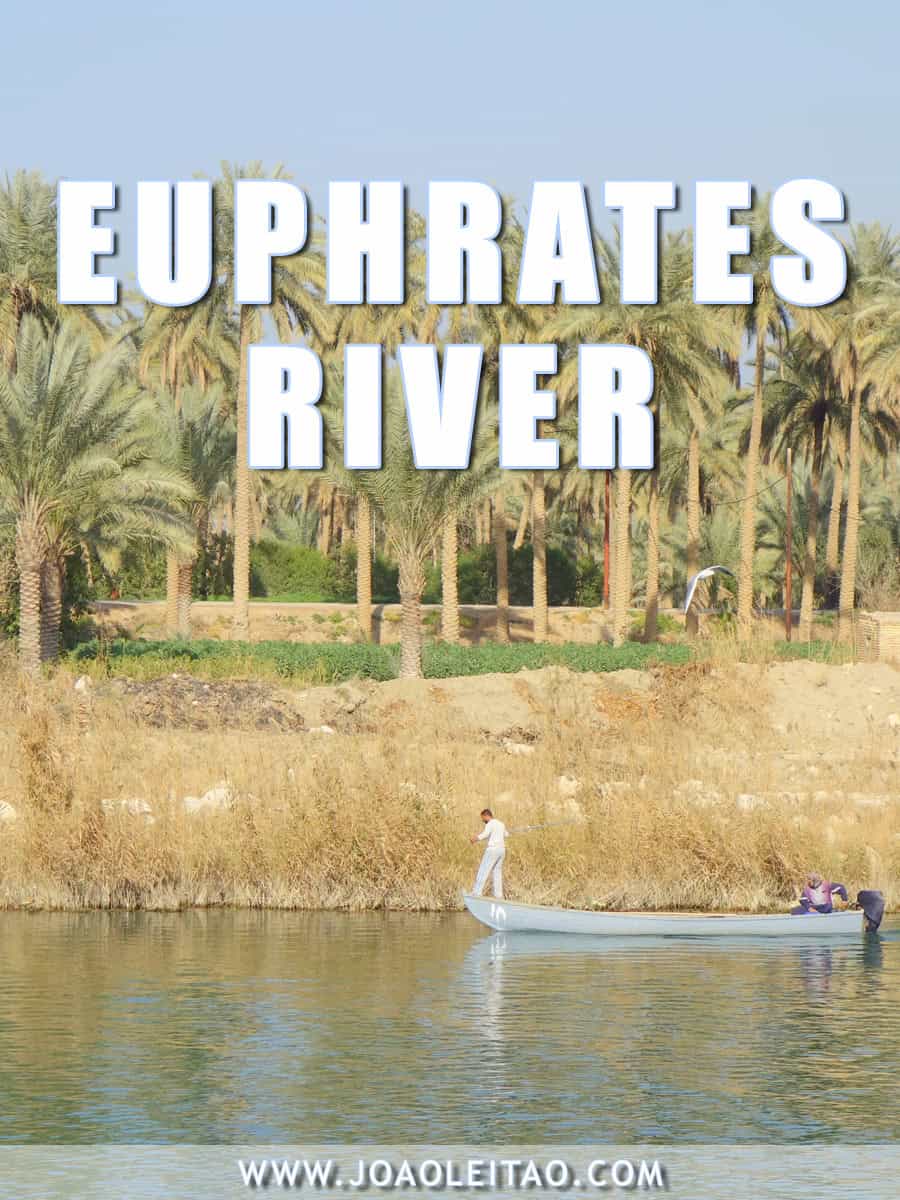
The Euphrates River is the longest and the most famous river in the Middle East historically speaking. The Euphrates, along with the Tigris, form the largest river basin in southwest Asia.
The Euphrates crosses cities such as Ar-Raqqah, Ramadi, Fallujah, Kufa and Nasiriyah. The old city of Babylon was built upon the left and right banks of the Euphrates.
16- Karbala
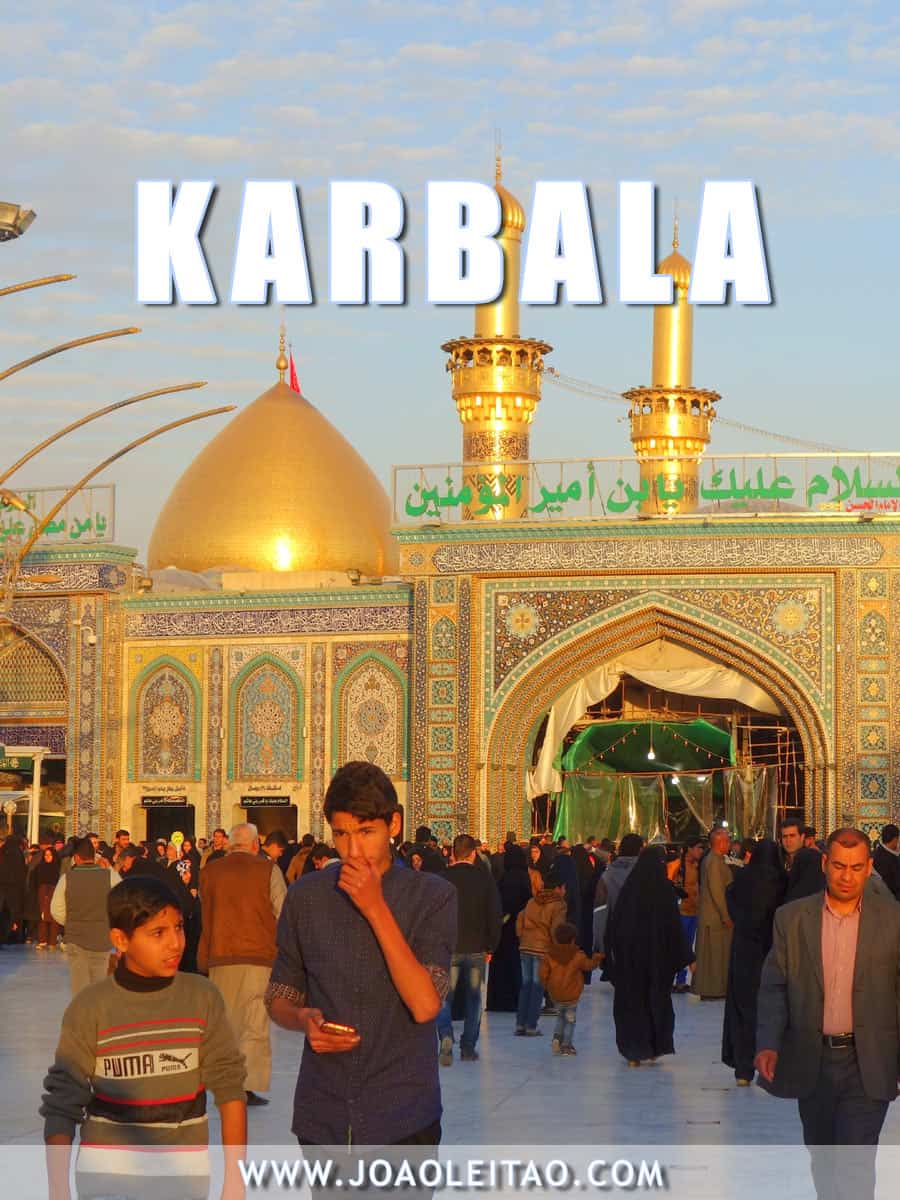
Karbala is a well known city where the famous Battle of Karbala took place in 680 AD. It is one of the holiest cities for Shiite people after Mecca, Medina and Najaf. The reason of this importance is the fact that Imam Husayn Shrine and his half-brother al-Abbas ibn Ali are located in the city center.
17- Khanzad
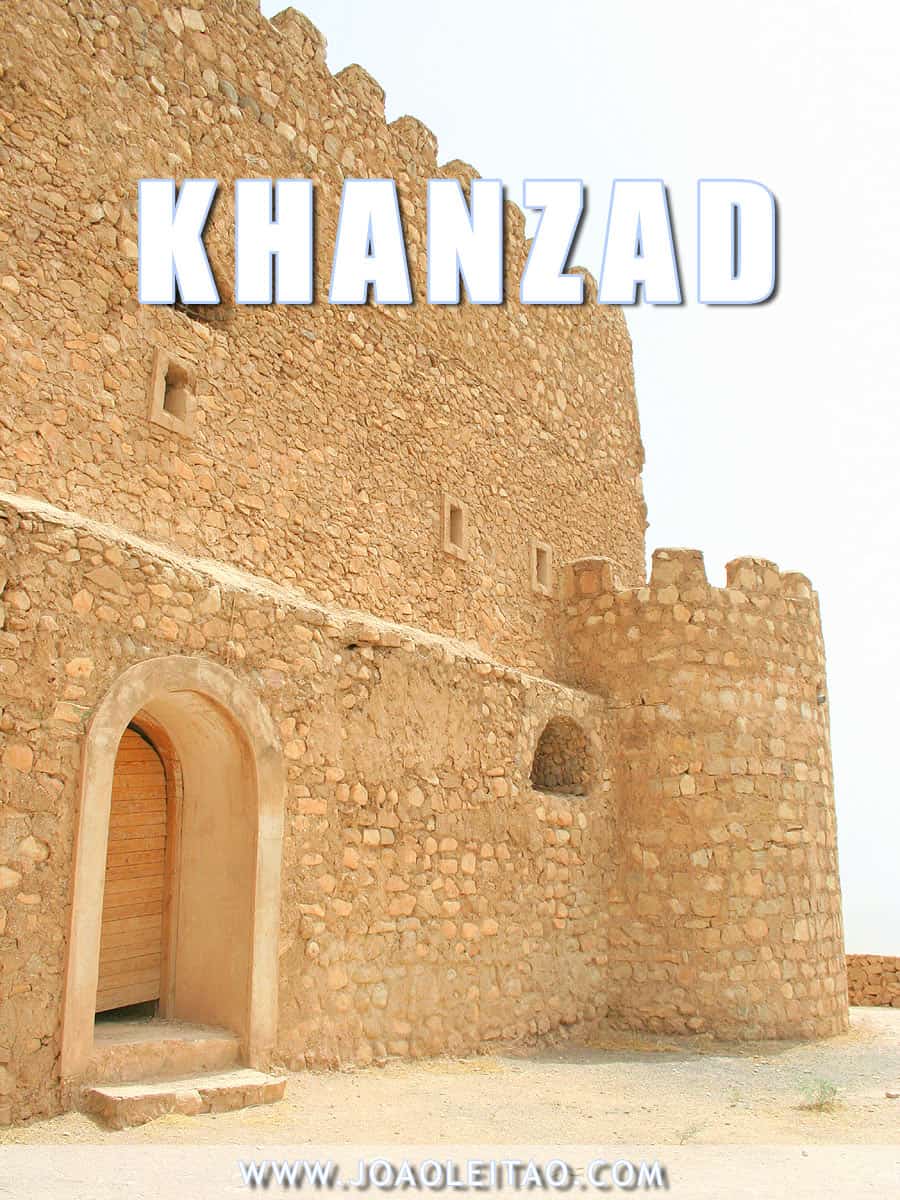
Khanzad Castle is located on the way to Shaqlawa, north of Erbil Province. The recently restored ancient castle dates back a few centuries ago to the Kurdish emirate in the Soran period.
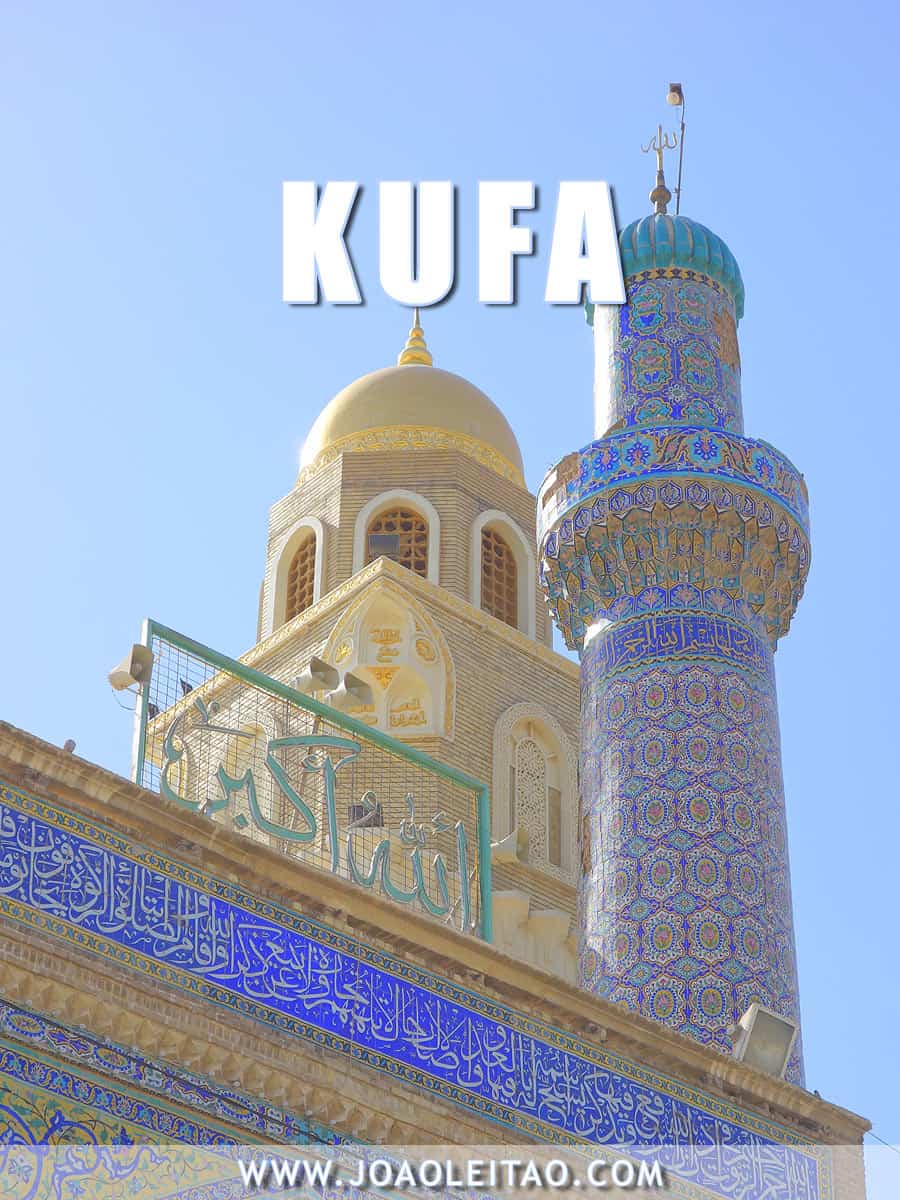
This city reveals great importance to Shiite Muslims, since along with Samarra, Karbala, Kadhimiya and Najaf, they all had the presence of the great masters of Shia Islam. It was in Kufa that the Arab vertical Kufic writing was created and developed. Dating back to the seventh century, the Great Mosque of Kufa is considered one of the oldest in Iraq.
19- Mar Odiso Monastery
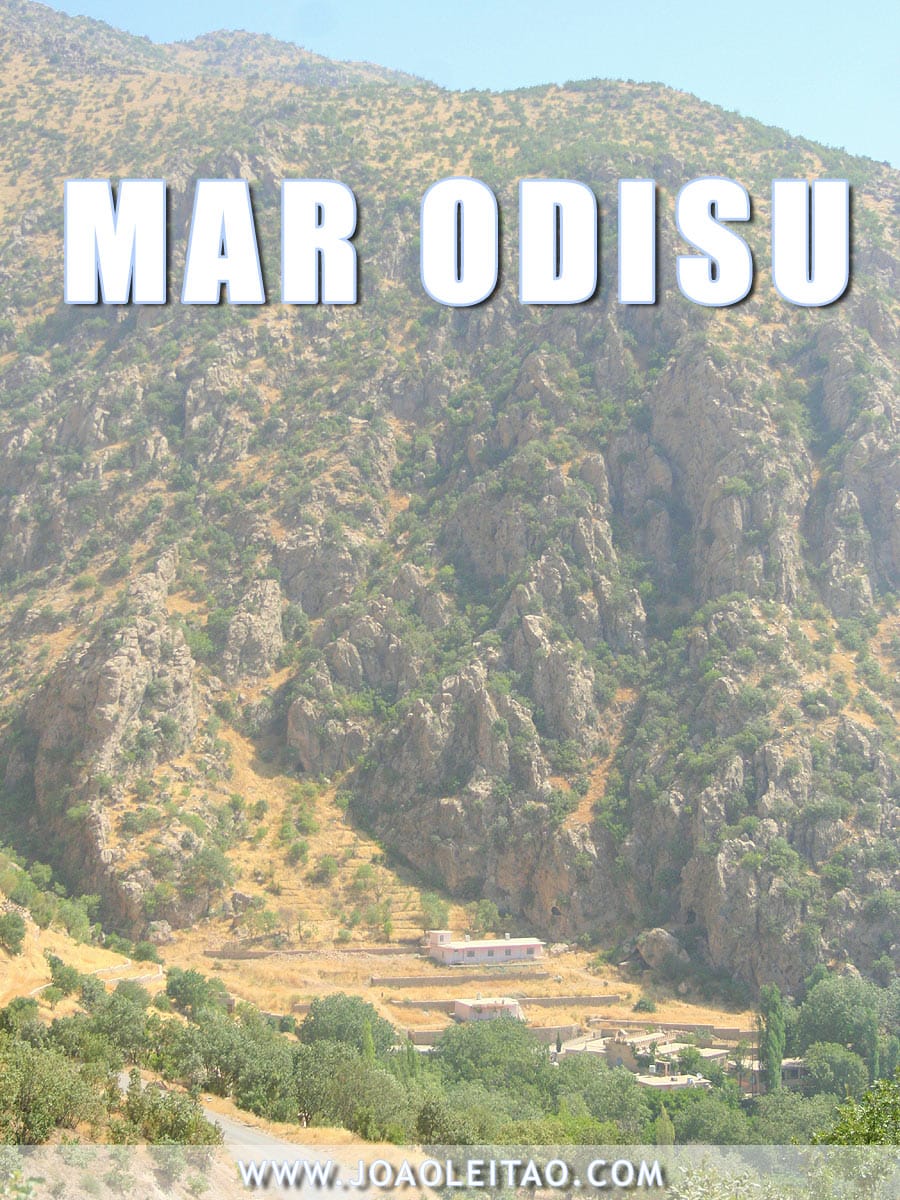
Mar Odisu is a holy place for Assyrian Christians (Chaldeans), where people do their religious rituals with special sacred spring water. Located in Iraqi Kurdistan, this Christian religious complex is located between Amadiya and Barzan.
20- Mesopotamian Marshes
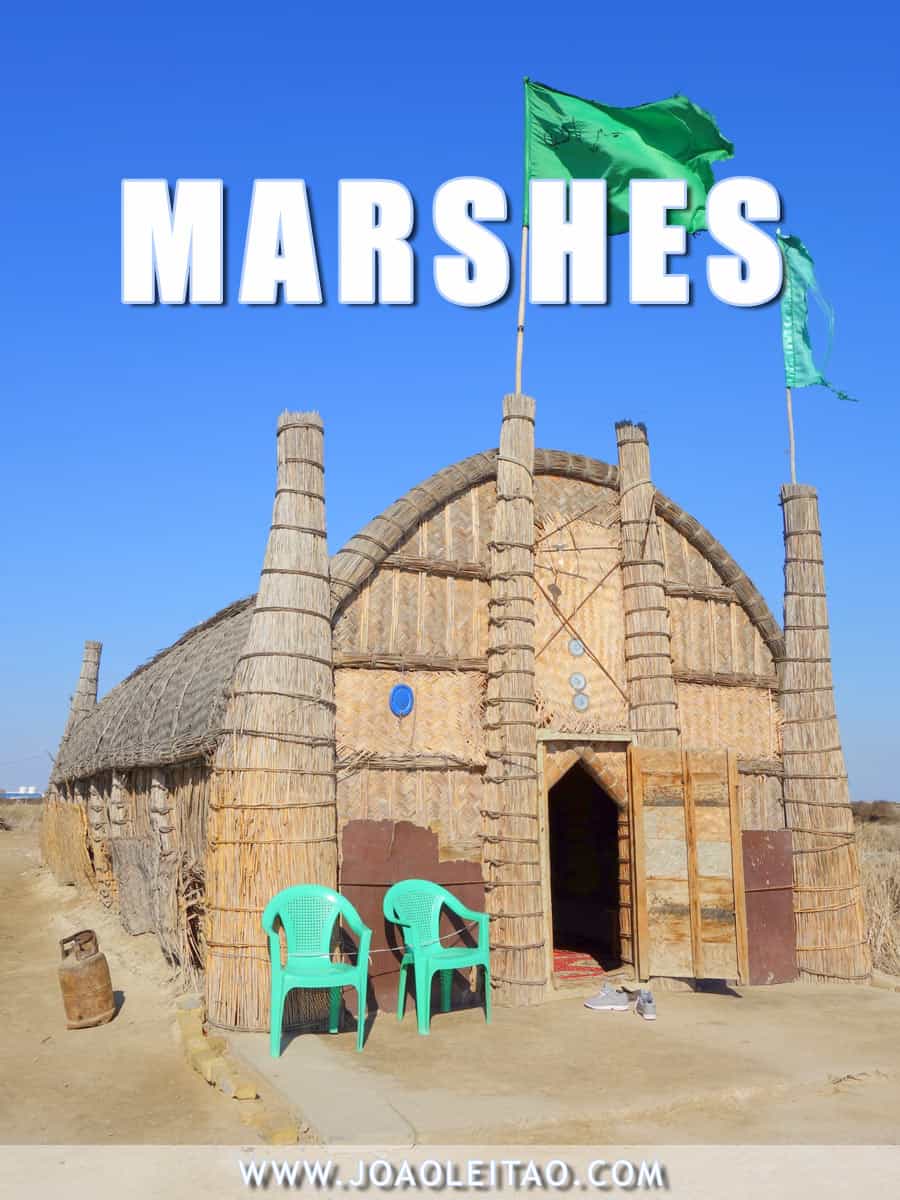
The Mesopotamian Marshes are considered to be Western Eurasia’s largest wetlands ecosystems. This unusual place in the desert had plenty of water, so it used to be very productive and prosperous.
Instagramming from the marshlands
The people who live in Iraq’s southern marshes are known as Ma’dān – or simple as – Arabs of the Marshlands. These people build incredible floating houses made of reeds harvested in their own marshes, transported in canoes and small boats.
Read my page :
Mesopotamian Marshes
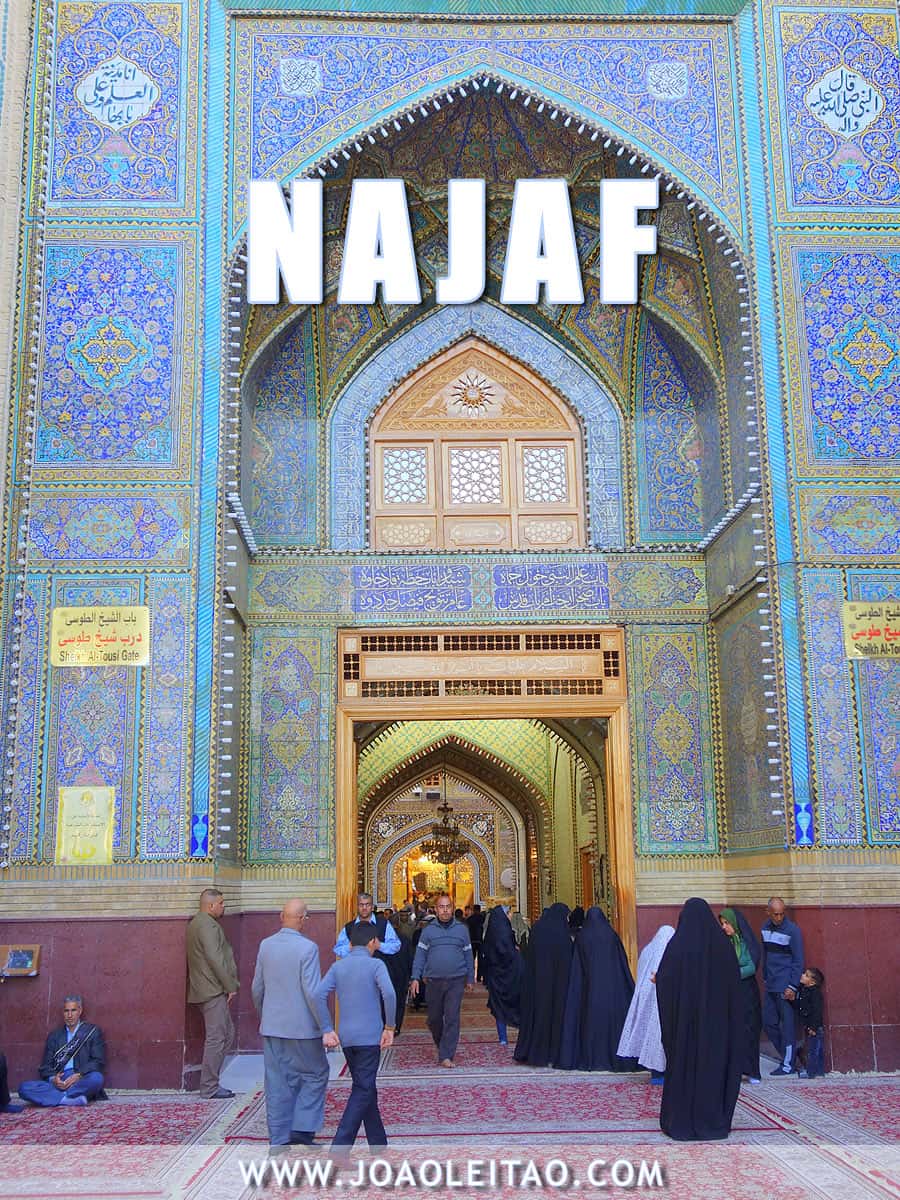
Najaf is considered to be one of the holiest Muslim cities in the world. It also holds the Shiite political center of the country.
Instagramming from Najaf
The tomb of Ali ibn Abi Talib’s – the first Imam of the Shiites (Shias) – is the most important site in Najaf. Being the holiest site of Shia Islam, after Mecca and Medina in Saudi Arabia, Najaf receives millions of pilgrims annually.
The largest and the oldest cemetery in the world, Wadi-us-Salaam is worth a visit for its incredible size, since it has more than 5 million tombs.
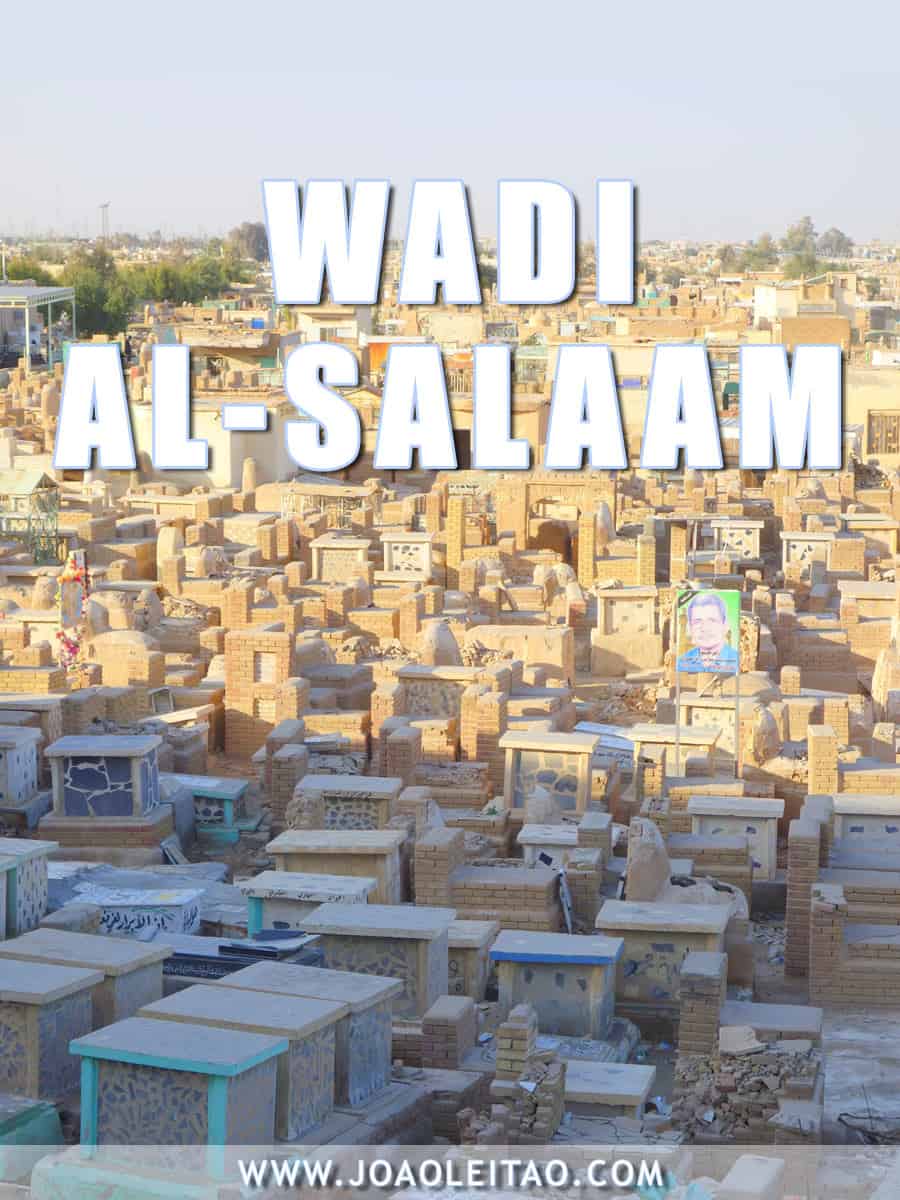
Sulav is a small village in Iraqi Kurdistan. Quite hilly, the surrounding mountain landscapes are breathtaking.
Locals gather here in the afternoon to enjoy the river cafés and to smoke hookah (argilah) with flavored tobacco. Sulav is located near Amadiya.
23- Ziggurat of Ur
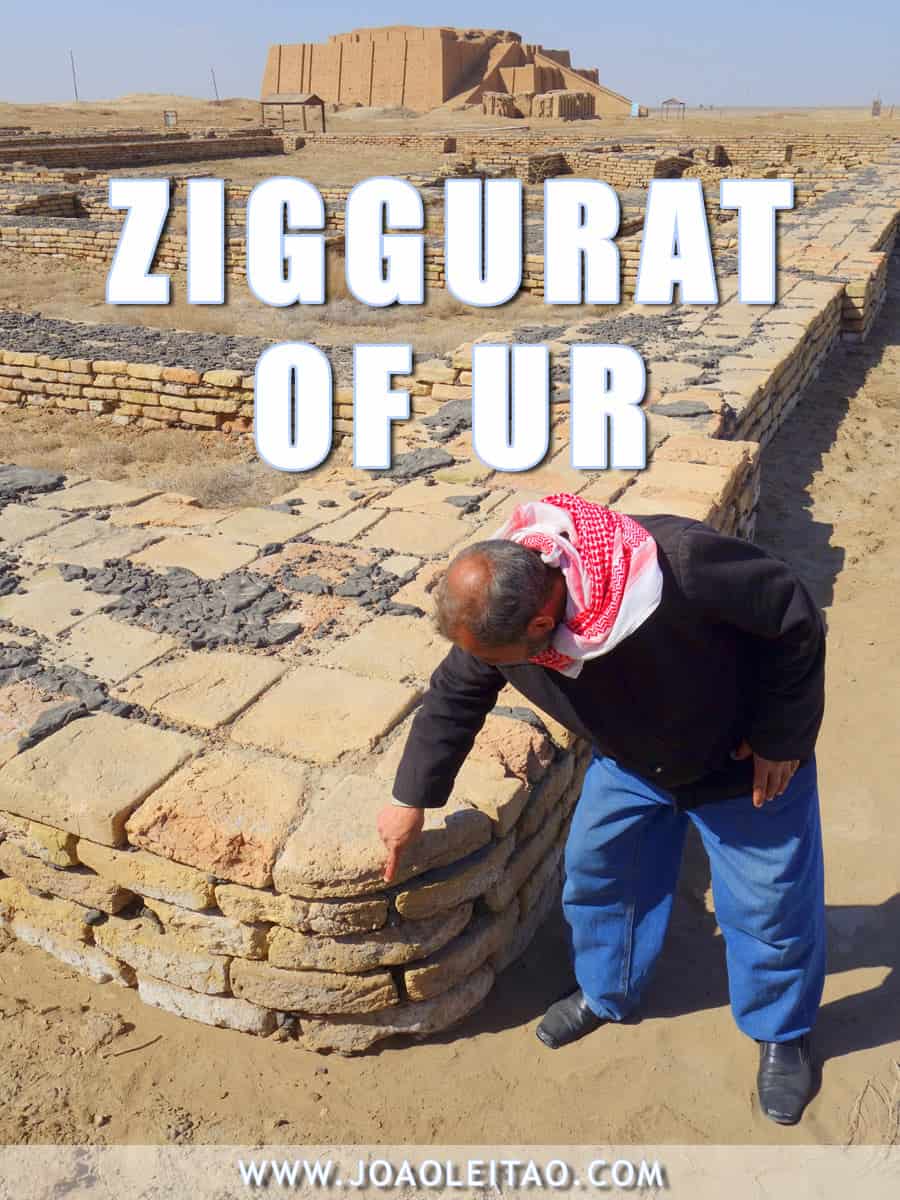
The Neo-Sumerian ziggurat in the old city of Ur near Nasiriyah is an amazing historical site.
This place was an important commercial hub back in 3800 BC. Located in a strategic region between the Tigris and the Euphrates River, Ur was the perfect connection to the Persian Gulf.
Abraham, the first of the three patriarchs of Judaism, was born in Ur. His house is located north of the ziggurat and can be visited.
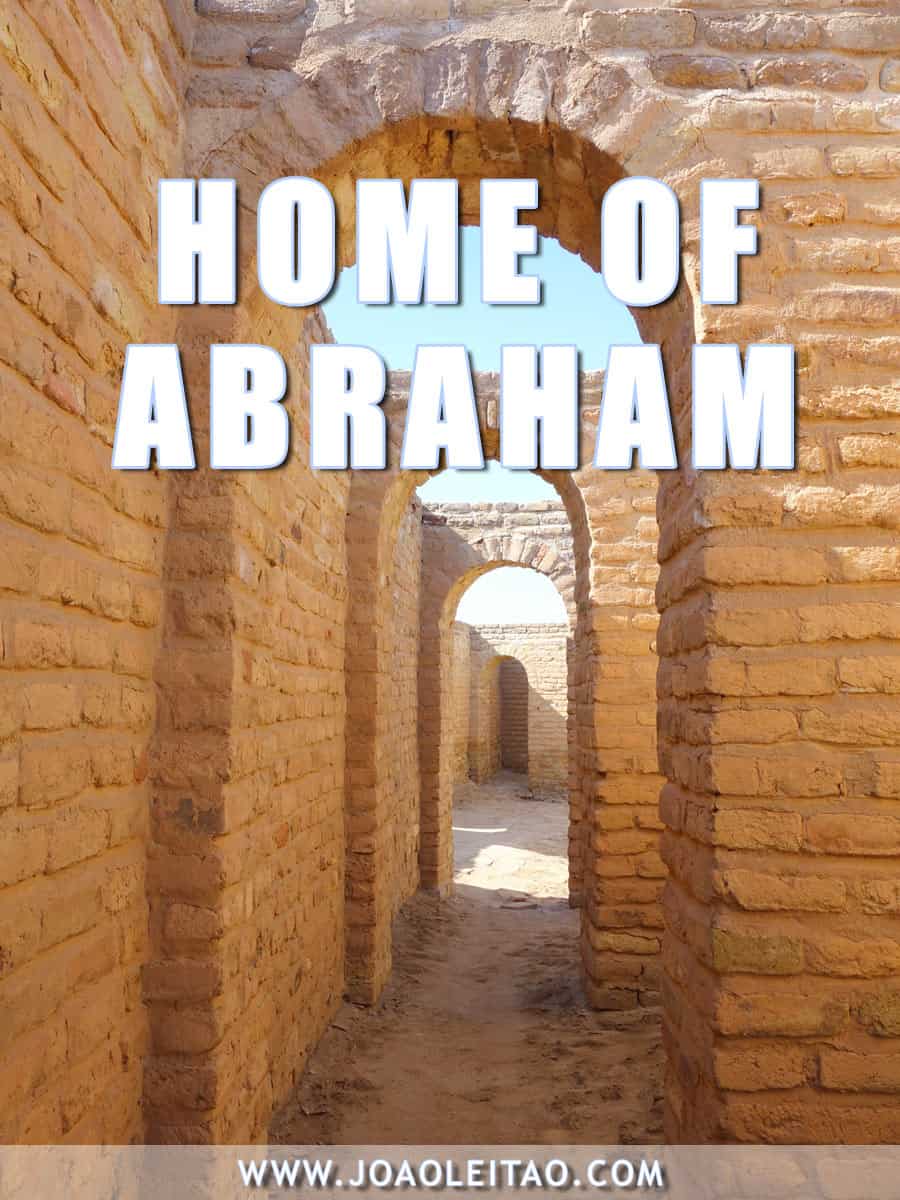
24- Zab river
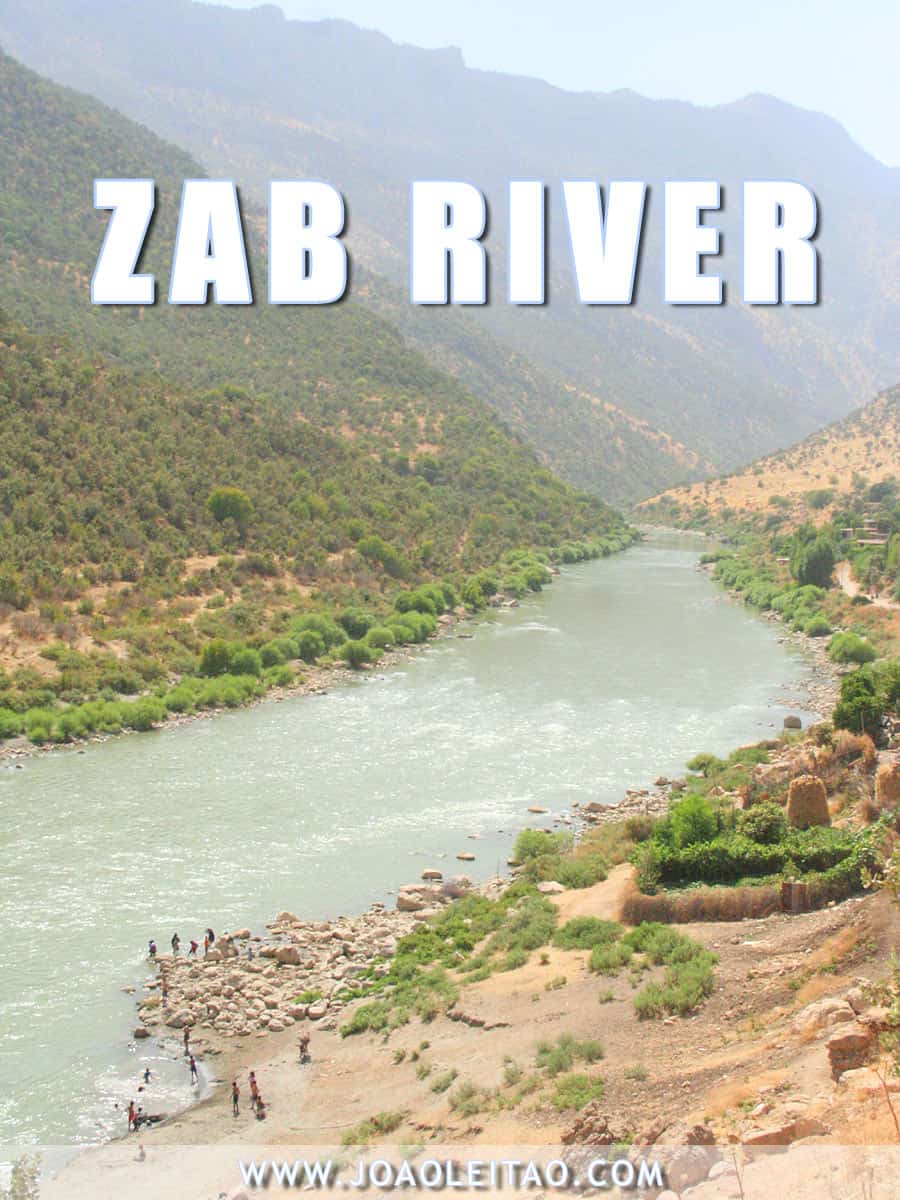
The Great Zab river runs in eastern Turkey and northwestern Iraq. It rises near Van lake and flows into the Tigris River south of Mosul.
NOTE : I’ve been to Iraq three times. The first time back in 2010, the second time at the beginning of 2016, and the third time just recently in 2018 traveling for one month driving my campervan. Throughout recent years, Iraq has become safer, and there are many areas that can be visited without any issues. If you think you’d like to make such a trip, check RJ Travel available Iraq Tour Packages .
Read my page:
Kurdistan Region of Iraq Unknown Destinations Part 1
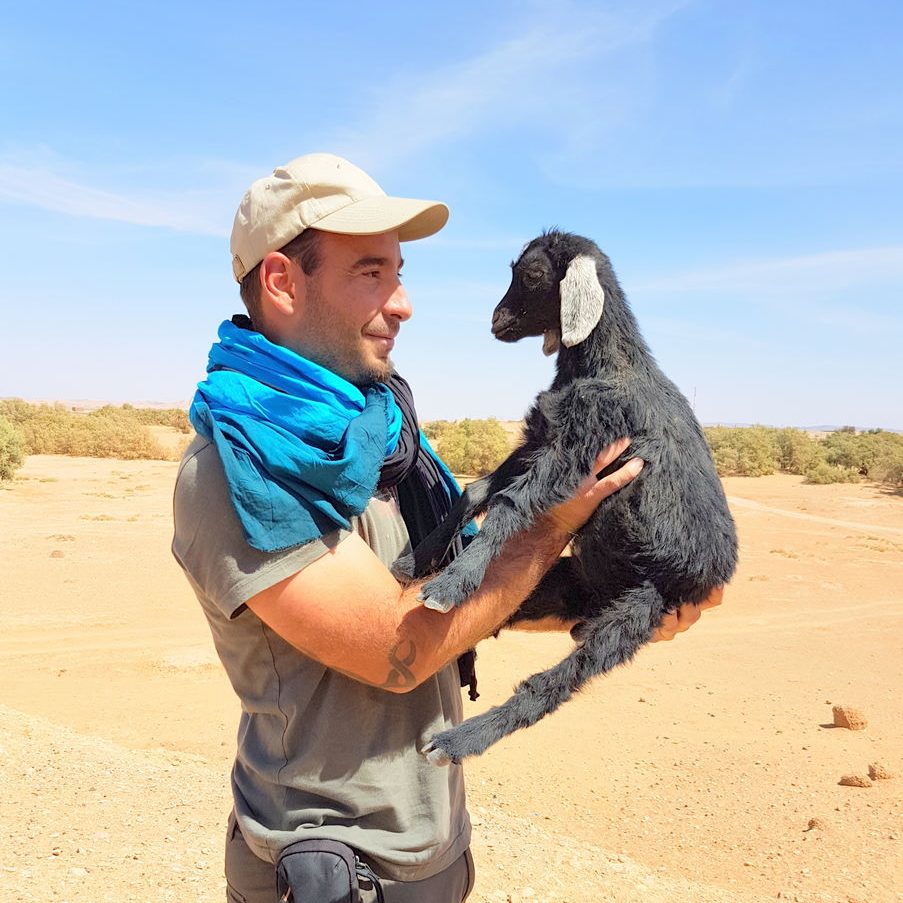
Top Things to Do in Iraq
Places to visit in iraq, explore popular experiences, popular cities in iraq.

Top Attractions in Iraq

What travellers are saying


VOICE OF GUIDES
The most interesting and beautiful places to visit in iraq (+iraq travel itineraries).
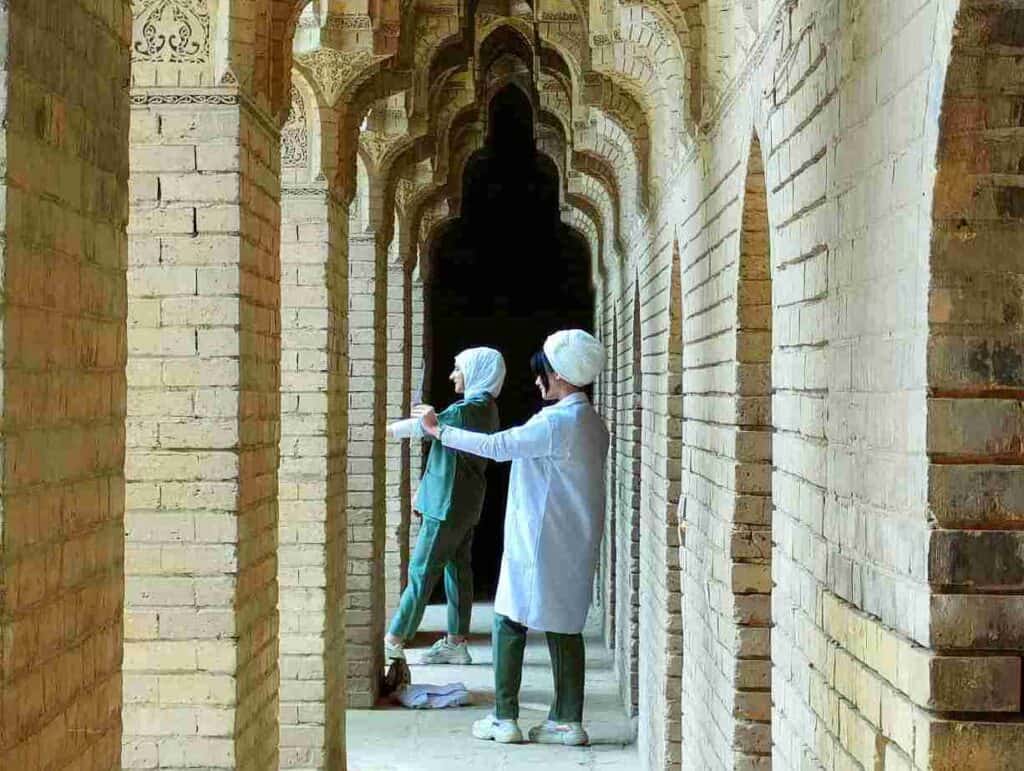
This article may contain affiliate / compensated links. For full information, please see our disclaimer here.
Iraq just opened for tourists and is still an undiscovered place. Iraqi Kurdistan has been deemed safe for longer, but federal Iraq’s tourism is still in its infancy. Iraq is probably not the first destination to think about as a place to travel to, even when the Middle East is already on your mind. However, the hospitality of the Iraqi people can make it one of your most rewarding trips, where you can still feel like a discoverer. Having traveled extensively in Iraq for over six weeks, I made this list of the best things to do in Iraq, the most interesting or beautiful places to visit, and recommended itineraries.
Independent travel is possible in Iraq, but there are some things you must know to avoid inconveniences. Therefore, before you continue reading, I recommend checking out my post about “All you need to know before traveling to Iraq (weather, safety, money, transport, insurance, how to get around, etc.) .
THE BEST TRAVEL ITINERARIES TO IRAQ AND IRAQI KURDISTAN
The following Itineraries include the best and most interesting places to visit in Iraq and Iraqi Kurdistan. It means you can only complete it if you have an Iraqi visa, i.e., you arrive in Baghdad and not Erbil! (In Erbil, you get a visa that is only valid in Iraqi Kurdistan).
If you come during Nowruz in March, include Akre in your Iraqi Kurdistan travel itinerary. And if you come during the Yezidi New year in April, check the specific day of celebrations in Lalish.
The ideal Baghdad sightseeing depends on the hotel’s location, but opening hours are limited; most monuments close from 1 pm – 2 pm.
Read my article about all you need to know before traveling to Iraq.
10 days Iraq travel itinerary
Day 1, 2 baghdad, tak qasra.
Day 1: Tahrir Square, al-Rasheed Street, Old Al- Mustansiriya School, Abbasid Palace, Baghdad souk, drive through the green zone, walk through al-Mutanabbi street in the evening
Day 2: Iraq national museum, Martyr’s monument, Taq Qasra
2 nights in Baghdad
Day 3: Ziggurat of Ur, Najaf
Head from Baghdad to the ziggurat of Ur and then to Najaf, where you visit the Imam Ali shrine at night.
1 night in Najaf
Day 4: Najaf and Karbala
Visit Kufa and the Wadi Al-Salam cemetery in Najaf and drive to the shrine of Imam Hussein in Karbala.
1 night in Karbala
Day 5: Babylon/Hillah, Baghdad
Head back to Baghdad and visit Babylon and Saddam’s palace on the way
1 night in Baghdad
Day 6: Samarra (Malwiya minaret and Al-Askari mosque), Hatra
2 nights in Mosul
Day 8: Mosul, Mar Mattai monastery
Half-day in Mosul and visit the Mar Mattai monastery.
Day 9: Lalish, Amedi, Dore canyon
1 night in Erbil
Day 10: Erbil
Visit Erbil and take your flight back home .
2 weeks Iraq travel itinerary
Day 1, 2, 3: baghdad .
You will probably arrive at night in Baghdad. So head to the hotel to have a couple of hours of rest.
Visit the following places in 3 days:
Day 1: Tahrir square, al-Rasheed Street, Old Al- Mustansiriya School, Abbasid Palace, Baghdad souk, drive through the green zone, walk through al-Mutanabbi street in the evening
Day 2: Al Kadminiya mosque, Taq Qasra
Visit the Al Kadminiya mosque, and the rest of the day drive to Taq Kasra outside Baghdad (one of the biggest brick arches in the world)
Day 3: Firdos square, Abu Nawas boulevard photo stop at the statue of Scheherazade, Mausoleum of Abdul-Qadir Gilani, Martyr’s monument, Iraqi museum, Save the Iraqi Culture monument, boat trip on the Tigris River
4 nights in Baghdad
Day 4: Babylon/Hillah, Karbala
Visit the Babylon site, Saddam’s former palace, and continue to Karbala. In Karbala, visit the shrine of Imam Hussein in lights in the evening.
1 night in Kerbala
Day 5: Karbala, Ukhaidir fortress, Najaf
Visit the shrine of Imam Hussein in the morning, then drive to the Ukhaidir fortress (50km) and, after that, to Najaf, the shrine of Imam Ali. Visit the shrine at night with lights.
Day 6: Najaf, Kufa, Nasiriyah
Visit the shrine of Imam Ali also in the morning, walk in the nearby bazaar, and enter the biggest cemetery in the world (Wadi Al-Salam). Only 15 minutes from Najaf is Kufa, another Shiite holy place with the shrines of Shiite Imams and the house of Ali. Drive to Nasiriyah.
1 night in Nasiriyah
Day 7: Ur, Mesopotamian Marshes
Visit the ziggurat of Ur, and have a boat trip at the Iraqi Marshes, then drive back to Baghdad (3 and a half hours)
Day 8: Samarra (Malwiya minaret and Al-Askari mosque)
Visit one of the landmarks of Iraq, the Malwiya minaret and Al-Askari mosque, one of the most important Shiite holy sites in the world. Then continue to Mosul, and on the way, visit the ruins of Hatra.
3 nights in Mosul
Day 9: Mosul
Day 10: mar mattai and rabban hormizd monasteries, lalish, day 11: amedi, deralok dam, dore canyon.
Leave Iraq and go to Iraqi Kurdistan.
3 nights in Erbil
Day 12: Sulaymaniyah, Halabja
Leave Mosul for Sulaymaniyah, one of the important cities of Iraqi Kurdistan, the Halabja memorial, and drive to Erbil.
Day 13: Rawanduz and Soran
Drive to the most spectacular scenery of Iraqi Kurdistan with Rawanduz canyon, Soran, and waterfalls (Geli Ali Beg and Bekhal) with photo stops.
Day 14: Erbil
visit Erbil and take flight at night
Insurance: Safetywing is a cheap travel and medical insurance that also covers COVID-related issues in most countries, including Iraq.
Flights: Use Google Flights or Skyscanner to book your flight to get the best flight offers.
3 weeks Iraq travel itinerary
Day 1, 2, 3, 4: baghdad .
You will probably arrive at night in Baghdad. So head to the hotel to have a couple of hours’ rest.
Visit the following places in 4 days:
Important: The ideal Baghdad sightseeing depends on the location of the hotel, but opening hours are limited, most monuments close at 1 pm – 2 pm, so you have to be flexible as your plans can change.
Day 4: Umm al Qura mosque, Amiriya shelter, Christian churches, hang out in Karrada.
5 nights in Baghdad
Day 5: Babylon/Hillah, Al-Kifl
Visit the site of Babylon and Saddam’s former palace and al-Kifl, the tomb of Prophet Ezekiel.
1 night in Hillah
Day 6: Karbala, Ukhaidir fortress
Drive from Hillah to Karbala and visit the shrine of Imam Hussein in the morning, then drive to the Ukhaidir fortress (50km). Visit the shrine at night with lights as well.
Day 7: Najaf, Kufa, Nasiriyah
Head to Najaf with the biggest cemetery in the world (Wadi Al-Salam) and the shrine of Imam Ali. Only 15 minutes from Najaf is Kufa, another Shiite holy place with the shrines of Shiite Imams and the house of Ali.
Day 8: Ur, Uruk, Mesopotamian Marshes
Visit the archeological site of Uruk and the ziggurat of Ur and drive to sleep in Chibayish (Nasiriyah), the center of the Marshes.
Go to the Iraqi Marshes and have a boat trip, and drive back to Baghdad (3 and a half hours)
1 night in Chibayish in a traditional mudhif or proper hotels are available in Nasiriyah
Day 9: Mesopotamian Marshes, Qurna, Basra
Have a boat trip in the Iraqi Marshes and continue to Qurnah, the place of the Biblical Eden and where the Euphrates and Tigris rivers join. Continue to the southernmost port city, Basra.
2 nights in Basra
Day 10: Basra
Day 11: drive back to baghdad and nippur.
Drive back to Baghdad and visit Nippur archeological site on the way.
Day 12: Agargouf ziggurat, Fallujah, Ramadi
Day 13: samarra (malwiya minaret and al-askari mosque), tikrit.
Visit one of the landmarks of Iraq, the Malwiya minaret and Al-Askari mosque, one of the most important Shiite holy sites in the world. Then continue to Mosul, and on the way, visit Tikrit with the memorial of the Speicher massacre and the former palaces of Saddam.
Day 14: Mosul
Day 15: hatra and mar mattai monastery, day 16: amedi, delaruk dam, dore canyon (barzan).
Leave Federal Iraq and continue to Iraqi Kurdistan.
2 nights in Erbil
Day 17: Rawanduz, Soran, Gali Ali Beg and Bekhal waterfalls
Day 18: sulaymaniyah, halabja.
1 night in Sulaymaniyah
Day 19: Erbil
Visit Erbil
Day 20: Lalish and Rabban Hormizd monastery
Day 21: erbil.
Fly back home
THE BEST THINGS TO DO IN FEDERAL IRAQ
Baghdad, the capital, is one of the highlights of your visit to Iraq. Few cities have an atmosphere that conserved the past in a way as Baghdad did. Worn-down colonial buildings, war memorials, the Tigris riverbank, and a range of trendy restaurants and traditional cafes make it probably the most interesting place in Iraq. You need at least three days (if planned carefully) to discover the capital’s main tourist attractions and taste some Iraqi specialties like kebab or Mazgouf (fish).
Read this ultimate guide about the best places to visit in Baghdad in 3-4 days
2. Agargouf – ziggurat
The most famous ziggurat in Iraq is the one in Ur. It is also in the best state after renovations. However, only half an hour’s drive from Baghdad, you can get to the remains of another one that was part of the former capital of the Kassite Empire, dating back to the 2nd millennium BC. A Kassite king of Babylon, Kurigalzu I, built the zikkurat of Agargouf dedicated to the principal Babylonian God, Enlil, who had power over wind, air, earth, and storm. Kassites controlled Babylonia after the fall of the Old Babylonian Empire for 400 years.
Zikkurats were sacred places in the center of ancient Mesopotamian cities built in terraced structures from mud bricks. On top of them stood the temple dedicated to the chief god that only priests could enter. The people of the land of two rivers (Tigris and Euphrates) were pious and prayed to the gods for good harvest, fortune and wealth. Chogha Zanbil is the best-preserved ziggurat and one of the few located outside Mesopotamia, in today’s Iran.
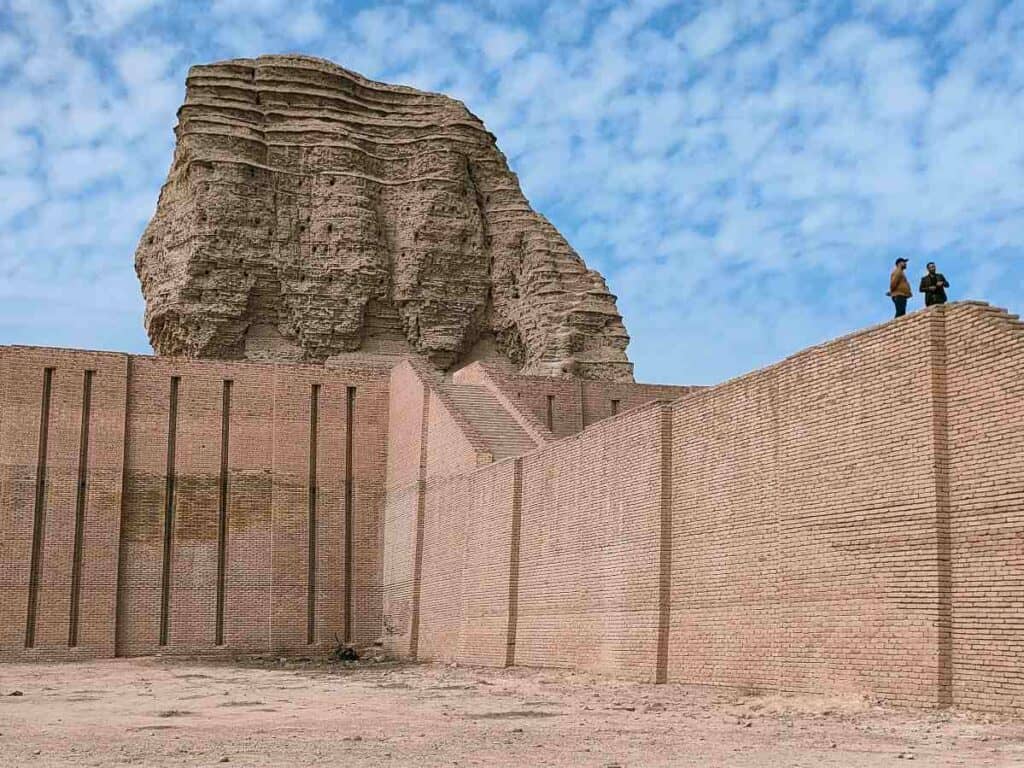
The story of Ur ended temporarily when the Elamites dethroned the last King of Ur at the end of the 3rd millennium BC. Ur was later rebuilt and incorporated into the Kingdom of Babylon. It served as a religious center and the capital for governors.
Excavations started in the 1930s, during which tens of thousands of cuneiforms were found in temples, palaces, and people’s houses, proving the complex legal system of the city-state.
Saddam Hussein ordered the renovation of the monumental staircase and lowest levels. Apart from the ziggurat, the royal palace and mausoleum of Ur-Nammu are also part of the archeological complex. The precious items found in the tombs were imported from other parts of Asia and indicated the significance of Ur.
The buildings of Ur were constructed from mudbrick, and mud was used as plaster.
King Nebuchadnezzar II of Babylon continued work on Ur, and the last Babylonian King, Nabonidus, increased the height of the ziggurat by 7 meters.
After the Persian conquest, Ur lost its former importance, and by the 4th century, it was almost completely forgotten.
How to go there? Ur is located 16 km from Nasiriya. The only way to get there is with private car
15. The Mesopotamian Marshes – one of the best things to do in Iraq
The Marshlands had been the cradle for human civilization 5,000 years before. In the Mesopotamian Marshes, the local Madan tribes also called the Marsh Arabs, constructed their houses out of reed. They descended from the Ur, Sumer, and Babylon civilizations and created a unique culture. The indigenous tribes raised water buffalo, planted rice, and fished when water was still abundant in fish.
Their attractive long house called mudhif has been used for communal gatherings and to welcome guests. It is the symbol of this geographically and culturally unique area. They stabilize the mudhif by bundling the reed into thick columns that span over like arches to make the building’s spine.
Inside the house, brocaded cushions are placed on two sides to sit on, and the tale-like Iraqi teapots are placed in the middle to offer tea or coffee to the guests.
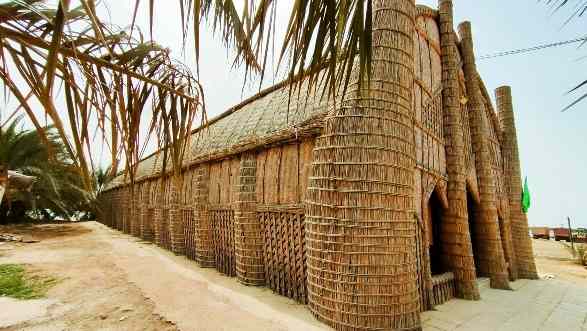
Iraqi Kurdistan, a haven for refugees
During the Syrian Civil War, tens of thousands of Syrian refugees, many of them Syrian Kurds, flocked to Kurdistan.
The warm hospitality is part of Kurdish tradition (not less that of Iraq) and their men are famous for being fierce warriors. They also claim that Saladin, who conquered Jerusalem when it was at the hand of the Crusaders, was also originally Kurdish. A Kurd never calls this part of Iraq northern Iraq, but Iraqi Kurdistan, which means “the place of the Kurds.”
When ISIS (Islamic State of Iraq and Syria) moved over to Iraq, the Kurdish Peshmergas (militant force of Iraqi Kurdistan) bravely fought against the jihadists and won the world’s attention and support. Christians, Yezidis and Shias were killed or driven out of their home and escaped in masses to the Kurdish mountains. Even other Iraqis from Fallujah, Ramadi, Baghdad and Mosul left temporarily their home and moved to Erbil. The “people without a friend,” as Kurds were often called, provided a haven to all refugees.
Iraqi Kurdistan is a mountain region in sharp contrast with the rest of Iraq, surrounded by the Zagros and Taurus mountains carved by winding rivers deep in canyons. Some say it takes these mountains to make a Kurd.
Kurds believed they were the descendants of ancient Medes, which gave them pride and identity.
Transport in Iraqi Kurdistan
Shared taxis are much less available than in Federal Iraq, so you must arrange your transportation with private cars.
Safety in Iraqi Kurdistan
Unlike Baghdad, Iraqi Kurdistan has enjoyed much safety since 2005. Thanks to its stability, renowned online and print magazines (New York Times, National Geographic Traveler and Conde Nast) named it a must-see travel destination.
23. Rabban Hormizd monastery and Alqosh
Alqosh is a small town 45 km north of Mosul that has always been a religious center for Sumerian, Assyrian gods, or Judaism. Later, its inhabitants were the first ones to convert to Christianism, and it still has an important Chaldean Catholic Assyrian community. Christian minority is now on the verge of extinction in the land where they had been present since the earliest times of Christianism. There were 1.3 – 1.5 million Christians in Iraq before the US invasion in 2003. It reduced to 500,000 before ISIS began its genocidal campaign. Today they amount to 150 000. During the last five years, Christians of Iraq left the country in masses.
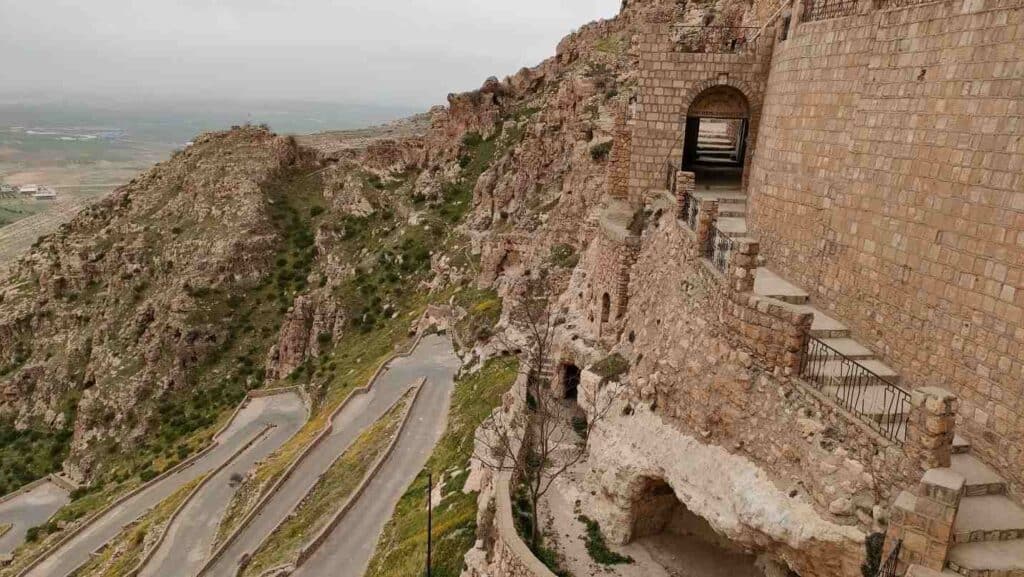
by Agnes Simigh
I’m a passionate tour guide and travel writer, who is curious to discover places that seldom catch the attention of the media or that are misrepresented. My goal is to inspire you to choose off-the-beaten-track destinations by sharing objective and detailed information. I believe that it is mainly the lack of “intel” that keeps us away from incredible places. And that just shouldn’t be the case.
Other articles about Iraq
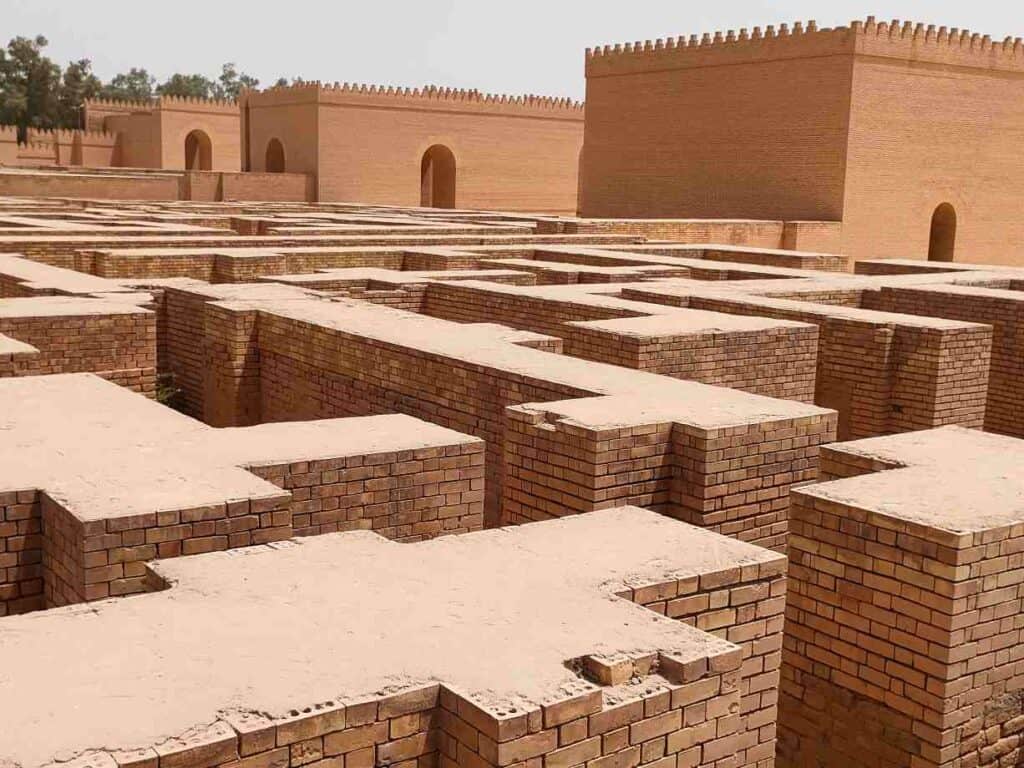
COMPLETE TRAVEL GUIDE TO VISIT BABYLON/HILLAH IN IRAQ
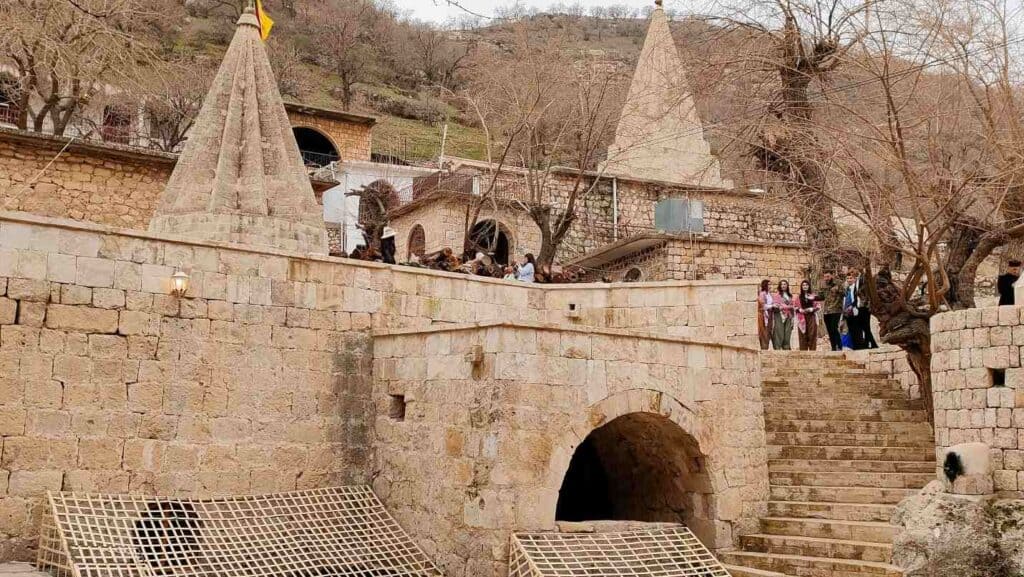
VISITING LALISH, THE YEZIDI HOLY SITE IN IRAQI KURDISTAN
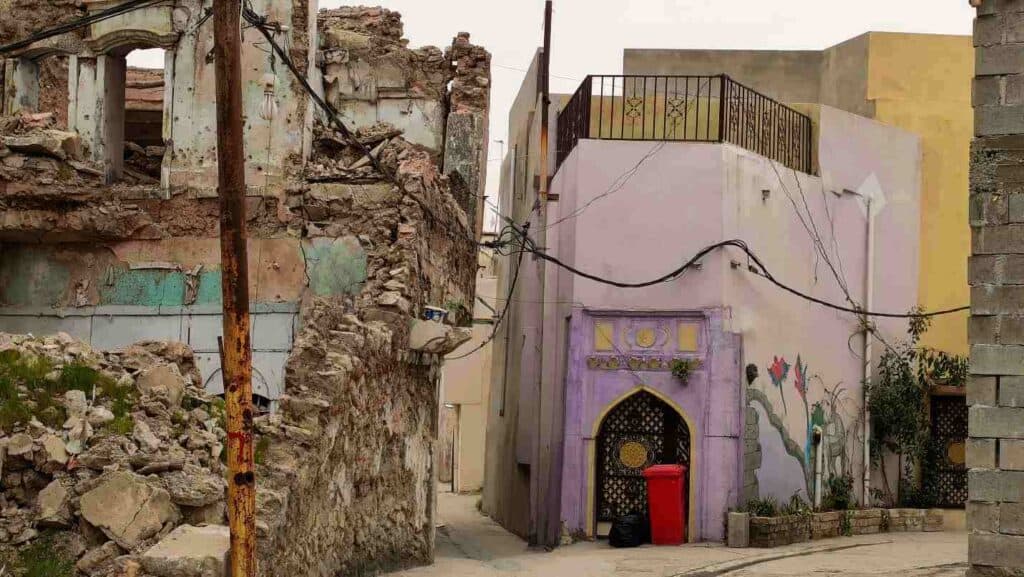
ULTIMATE TRAVEL GUIDE TO MOSUL, IRAQ
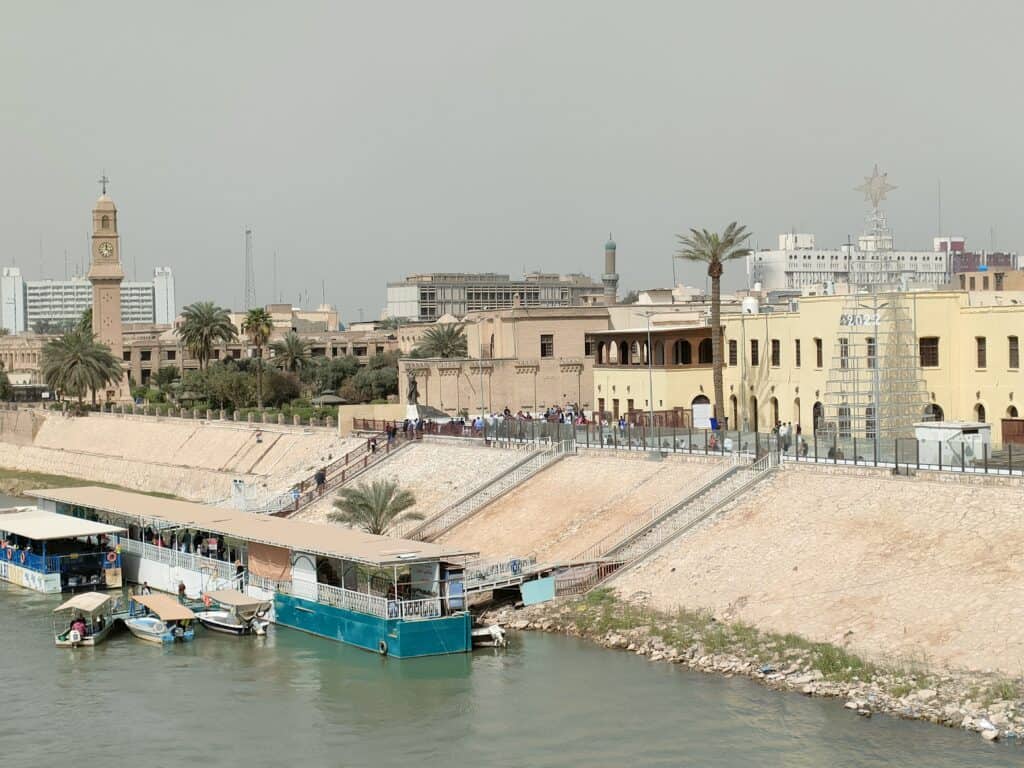
THE ULTIMATE TRAVEL GUIDE ABOUT THE BEST THINGS TO DO IN BAGHDAD IN 3-4 DAYS
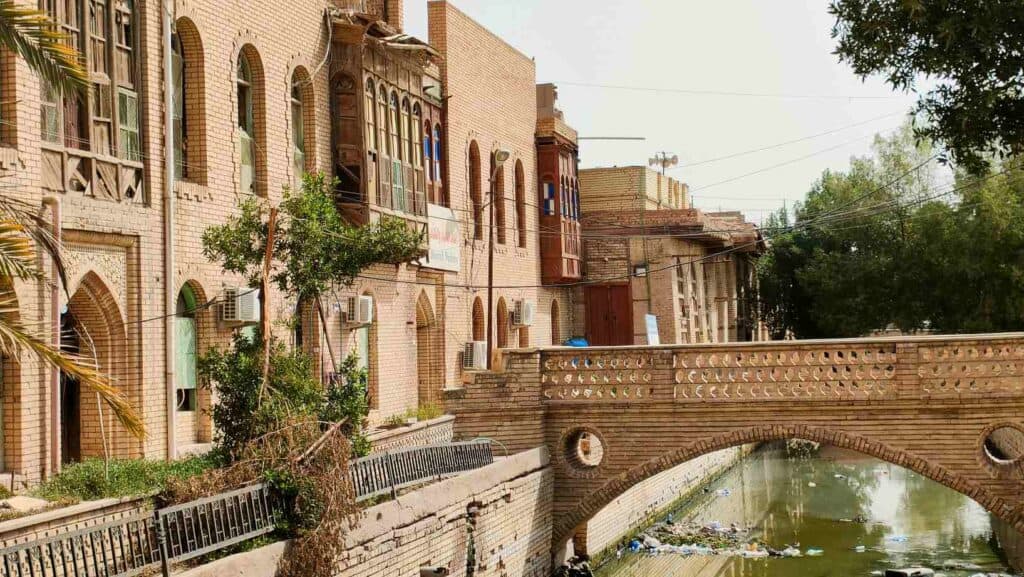
A TRAVEL GUIDE TO VISIT BASRA IN IRAQ
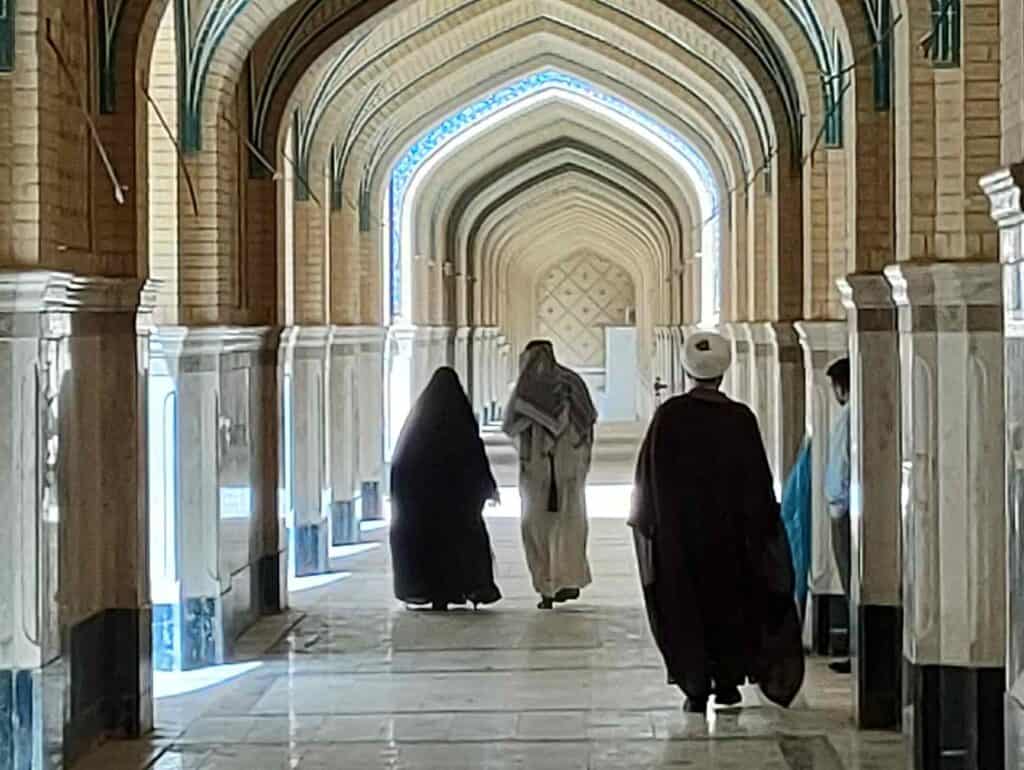
WHAT YOU NEED TO KNOW BEFORE VISITING IRAQ
Leave a comment cancel reply.
Your email address will not be published. Required fields are marked *
Save my name, email, and website in this browser for the next time I comment.
Privacy Overview
- TRAVEL ITINERARY PLANNING
- Ladakh Kashmir budget group tour
- TRAVEL RESOURCES
- BEST TRAVEL BLOGGING COURSES
- BEST VIRTUAL CITY AND COUNTRY TOURS
- TRAVEL GIFT IDEAS
- WAYAWAY CHEAP FLIGHTS
- Bosnia and Herzegovina
Top Things to Do in Iraq - Iraq Must-See Attractions
Things to do in iraq, explore popular experiences, popular cities in iraq.

Top Attractions in Iraq

What travellers are saying

- 3 Other destinations
- 4.1.1 Beginnings
- 4.1.2 Revolution
- 4.1.3 Ba'athist Iraq
- 4.1.4 Present day
- 4.2 Geography
- 4.3 Climate
- 4.5 Holidays
- 5.1 Entry requirements
- 5.2 By plane
- 5.3 By train
- 5.4.1 From Turkey
- 5.4.2 From Jordan
- 5.4.3 From Kuwait
- 5.4.4 From Saudi Arabia
- 6.2 By train
- 15.1 Emergency services
- 15.2 Corruption
- 15.3 Legal issues
- 15.4 Terrorism
- 16 Stay healthy
- 17.1 General etiquette
- 17.2 Things to avoid
Iraq ( Arabic : العراق Al-Irāq , Kurdish : عێراق Êraq ) is a republic in the Middle East . It has an extremely rich history and culture that is still visible today, although accessing it may pose some challenges to visitors. It was once host to the region of ancient Mesopotamia , often called the "cradle of civilisation". After the rise of Islam, Baghdad became a center of learning and the arts during the Islamic Golden Age . Its holy cities of Najaf and Karbala now accept millions of pilgrims per year from throughout the Middle East.
Iraq is a melting pot of different cultures, with the Arabs being the largest ethnic group. Other prominent ethnic groups include the Kurds, Armenians, Assyrians, and Turkmens. And while Islam is the state religion, there are also various minority religions still actively practiced in the country. Most Iraqis are Shia Muslims, just like their Iranian counterparts.
However, the country has been in a state of turmoil since the 1980s. The government is dysfunctional, and the country suffers from a plethora of social problems such as corruption, terrorism, and poverty. The legacies of Iraq's various wars in the 20th and 21st centuries are visible throughout the country, and still weigh heavily on the minds of its people. Ethnic and religious tensions, especially Sunni–Shia and Kurdish-Arab conflicts, still plague the country. Making matters worse, climate change, worsening heatwaves, water scarcity, and airborne carcinogens from oil burning in the south have created significant environmental problems.
In spite of the difficulties they face, the vast majority of Iraqis are friendly and hospitable hosts. It is common to be offered free food and gifts, and they are often eager to chat with you.
Regions [ edit ]

Cities [ edit ]
- 33.315278 44.366111 1 Baghdad (بغداد) — capital of Iraq, and one of the cultural capitals of the Arab world with a long and rich history.
- 33.033333 40.283333 2 Ar Rutba (الرطبة) — most isolated town in Iraq, deep in the desert.
- 30.515 47.81 3 Basra (البَصرة) — large port city with extremely hot climate.
- 36.85 42.983333 4 Dahuk (دهوك) — Kurdish city surrounded by mountains.
- 36.191111 44.009444 5 Erbil (Arbil) (أربيل) — capital of Iraqi Kurdistan.
- 33.35 43.783333 6 Fallujah (الفلّوجة) — a city with over 200 mosques now better known for the sieges and battles fought here.
- 32.616667 44.033333 7 Karbala (كربلاء) — one of the holiest cities in Shi'a Islam. The Arbaeen pilgrimage brings millions of Muslims to the Imam Husayn Shrine here every year.
- 35.466667 44.4 8 Kirkuk (كركوك) — an important cultural capital to the Kurds, Turkmen and Iraqis.
- 36.366667 43.116667 9 Mosul (موصل) — Once an important city in Iraq and containing the ancient ruins of Nineveh, now left mostly in ruins after battles with ISIL.
Other destinations [ edit ]
- 35.456667 43.2625 1 Ashur — former capital of the Assyrian Empire and UNESCO World Heritage site , this is one of the country's few great archaeological sites that has benefited from the latest invasion—the Hussein government planned to create a dam nearby that would have flooded and utterly destroyed the site.
- 32.5425 44.421111 2 Babylon (بابل) — damaged by inept reconstruction, looting, and military negligence, the ruins of ancient Babylon are still some of the most impressive in the Cradle of Civilization.
- 35.588056 42.718333 4 Hatra — once a UNESCO World Heritage site , this formerly well-preserved Parthian city off in the desert contained quite possibly Iraq's most magnificent ruins, which were severely damaged or destroyed by Da'esh extremists in 2015.
- 36.771397 43.303344 5 Lalish — Home to the holiest temple of the Yazidis
Understand [ edit ]

A country with a federal democracy, Iraq has a growing population of 40 million. As a member of the Arab League, it has significantly experienced modern economic and military growth and historic instability through wars. Iraq is the home of the world's first civilizations, with a development of writing, agriculture and urbanity.
History [ edit ]
Beginnings [ edit ].
Iraq is the birthplace of many of the Earth's oldest civilizations, including the Sumerians, Akkadians, Assyrians and Babylonians. A part of the Persian Empire from the 6th century BCE, the Caliphates between the 7th and 13th centuries and the Ottoman Empire from 1534, the Treaty of Sèvres brought the area under British control in 1918. Iraq gained independence in 1932.
Revolution [ edit ]
On 14 July 1958, the long-time Hashemite monarchy was overthrown in a coup led by Abdul Kassem that paved way to radical political reforms, including the legalisation of political parties such as the Ba'ath and the Communist Party, both key players in the coup (also called the 14 July Revolution). Following the Revolution, the Soviet Union gradually became its main arms and commercial supplier.
In February 1963, Kassem was overthrown and killed in a second coup that brought the Ba'ath Party into power. Internal divisions would follow for the next five years, until another coup on 17 July 1968 led by Ahmad Hassan al-Bakr (with Communist support) stabilised the party. Relations between the Communists and the Ba'athists ranged from mutual cooperation to violent mistrust, culminating in the purge of Communists from the army and the government by 1978, causing a temporary rift with the Soviet Union. On 16 July 1979, Bakr resigned and was succeeded by right-hand man Saddam Hussein, who carefully purged his enemies and became a dictator almost overnight.
Ba'athist Iraq [ edit ]
The next twenty-five years took a grinding toll on the country. Saddam Hussein's regime was notorious for its severe violation of human rights and many experts consider his regime to be among the worst of the worst in the world. Political dissent was not tolerated, freedom of speech was curtailed, and many Shia Muslims were routinely targeted and murdered by government forces, furthering the sectarian divide in the country. The harshness of Ba'athist Iraq forced many Iraqis to go into exile or flee abroad.
The Ba'athist regime was also notorious for its brutal, harsh treatment of the ethnic Kurdish minority. The Ba'athist regime forcibly deported Feyli Kurds to Iran , engaged in forced disappearances of ethnic Kurds, and ruthlessly cracked down on uprisings in Iraqi Kurdistan by responding with full-scale massacres. Perhaps the most brutal campaign ever to be organised against the ethnic Kurds is the Anfal Campaign , in which more than 200,000 Kurds were killed and tens of thousands of women and children were imprisoned and tortured. Because of these actions, many ethnic Kurds express feelings of distrust towards the Iraqi government.
When Iran became an Islamic theocracy in 1979, Saddam Hussein feared that Iran would threaten his leadership and control in a Shia-majority country, so he launched a full-scale invasion against the country in the 1980s, which would soon culminate into open warfare. To fund its military objectives, the Ba'athist regime borrowed extensively from other countries, pushing the country to near bankruptcy. Historians have documented that the Ba'athist regime extensively used chemical weapons during the Iran-Iraq war. The Iran-Iraq war lasted for eight years and it claimed more than 500,000 casualties. The war ended in a stalemate.
Shortly after the conclusion of the Iran-Iraq war, Saddam Hussein annexed and invaded Kuwait in the 1990s, claiming that Kuwait was an integral part of Iraq. Soon after, the Gulf War began and after a month, Saddam Hussein surrendered and retreated from Kuwait. International sanctions targeted Iraq, exacerbating the country's political, social and economic problems.

Present day [ edit ]
In the early 2000s, the United States accused the Iraqi government of having a weapons of mass destruction (WMD) program and organised a coalition of forces and invaded Iraq. Although they were successful in removing Saddam Hussein from power, much of Iraq's infrastructure was destroyed, sectarian tensions were worsened, and millions of Iraqis were forced to flee abroad. The WMDs were never found and the invasion and the handling of the aftermath of the war remain controversial.
Iraqi Kurdistan 's autonomy was confirmed. While it never declared independence, it is de facto run as a separate country with its own laws, military, immigration and diplomatic missions, and where Arabic is not widely spoken. Iraq held its first post-Baath elections in 2005. Political tensions and instability continued and reached its peak in the mid-to-late 2010s when ISIS controlled large parts of Iraq. ISIS was eventually defeated and driven out of the country. Although things appear to be getting better, Iraq's security situation remains volatile.
Life for the vast majority of Iraqis has become incredibly miserable, and many have since emigrated in search of better opportunities elsewhere. Many Iraqis feel there's no hope or future left for their country, although a small portion of people feel that things will change in due time. The prospects of change seem remote at best, but hopes are high.
Some of the problems that Iraq faces today are universal throughout the Middle East . Issues include widespread corruption, lack of effective governance, sectarian and ethnic tensions, and negative influences on democracy. In the 2020s, Iraq has been trying to position itself as a hub of diplomacy in the Middle East, and hosted numerous rounds of normalization talks between arch-rivals Saudi Arabia and Iran , though the final agreement was only reached after a round of talks was hosted by China in March 2023. This success has been followed-up by Iraq playing host to still-ongoing normalization talks between Egypt and Iran.
Since the toppling of Saddam Hussein, Iraq has had an informal power sharing agreement such that the prime minister is always a Shi'a Arab, the speaker of parliament is always a Sunni Arab, and the president is always a Kurd.
Geography [ edit ]
Iraq mainly consists of desert, but near the two major rivers (Euphrates and Tigris) are fertile alluvial plains, as the rivers carry about 60,000,000m³ (78,477,037 cu yd) of silt annually to the delta. For the early history see Ancient Mesopotamia .
The north of the country is mostly composed of mountains; the highest point being at 3,611m (11,847 ft) point, unnamed on the map opposite, but known locally as Cheekah Dar (black tent). Iraq has a small coastline measuring 58km (36 mi) along the Persian Gulf .
Climate [ edit ]

Most of Iraq has a hot arid climate. Summer temperatures average above 40°C (104°F) for most of the country and frequently exceed 48°C(118°F). Winter temperatures infrequently exceed 21°C (70°F) with maximums roughly 15 to 16°C (59 to 61°F) and night-time lows occasionally below freezing. Typically precipitation is low, most places receive less than 250mm (10 in) annually, with maximum rainfall during the months of November to April. Rainfall during the summer is extremely rare except in the very north of the country.
People [ edit ]
Before the large-scale murders by the "Islamic State" organization and flight from Iraq of members of non-Muslim minorities (especially Yazidis and Christians), Arabs who are 65% Shia and 35% Sunni Muslim comprised 75%-80% of the major population of Iraq. 15% of Iraq's population was comprised of Kurds (including Yazidis and Shabaks ), Turkmen and Assyrians . Over around 20,000 Marsh Arabs live in southern Iraq. Indigenous Neo Aramaic speaking Assyrians , most of whom are adherents of the Chaldean Catholic Church, Assyrian Church of the East, Assyrian Pentecostal Church and Syriac Orthodox Church accounted for 10% of the Christian population. It is hard to be sure what current figures would be. Iraq once had a large Jewish minority that was estimated to comprise up to a third of its population, but that community was expelled with the founding of the State of Israel in 1948. Most of the exiles ended up settling in Israel, particularly in the city of Ramat Gan .
Holidays [ edit ]
- New Year's Day (January 1)
- Armed Forces Day (January 6)
- Nowruz (March 21)
- Baghdad Liberation Day (April 9)
- Labor Day (May 1)
- Republic Day (July 14)
- Eid al-Fitr and Eid al-Adha (variable) Islamic religious observances
- Islamic New Year (variable) Islamic religious observance
- Ashura (variable) Islamic religious observance
- Independence Day (October 3)
- Victory Day (December 10)
- Christmas (December 25)
Get in [ edit ]
Entry requirements [ edit ].
Citizens of all European Union member states, Australia , Canada , China , Japan , New Zealand , Russia , South Korea , Switzerland , the United Kingdom and the United States may obtain a visa-on-arrival at any official point of entry. All other nationalities require a visa in advance.
For those entering the country without a visa, one can be purchased at most border crossings for USD80 in cash. Total crossing time is around 1 hour for individuals. If you intend to acquire a visa at your port of entry, be prepared for long waits, and bring plenty of documentation about who you are and what your business in Iraq is. Letters on company or government letterhead are preferred.
Obtaining a travel visa to Iraq is complicated and time consuming. You can obtain an application at the local Embassy of Iraq . However, all applications are vetted in Baghdad. Even if you do obtain a visa, you may still be refused entry into Iraq once you arrive. Visas can be acquired in advance at the Iraqi embassies in London , Paris , and Washington, D.C.
Iraqi Kurdistan has its own separate visa requirements from the rest of Iraq, meaning that a regular Iraqi visa is not valid for travel to Iraqi Kurdistan; you will need to obtain a separate Iraqi Kurdistan visa for that. Iraqi embassies and consulates cannot issue Iraqi Kurdistan visa; you will need to contact an Iraqi Kurdistan representation for that. Likewise, Iraqi Kurdistan visas are not valid for travel to the rest of Iraq.
By plane [ edit ]

Iraq has international airports at Baghdad (BIAP), Basra , Erbil , Sulaymaniyah and Najaf . For passengers transiting these airports, connecting flight tickets are usually not available, so separate tickets are needed. This means that a delayed flight can miss a connection making onward travel difficult. Be prepared to spend many hours waiting for a replacement flight. Iraqi Airways will exchange flights quite easily when there is space available.
The national airline, Iraqi Airways , operates a growing fleet of more than 30 modern jets. Their main activity are domestic flights but Iraqi Airways also offers flights to numerous international destinations. FlyBaghdad also has local and regional flights to/from BIAP. There are some other small airlines offering domestic flights.
The best way from Europe to Iraq is either with Austrian or Turkish Airlines. Austrian Airlines provides four flights per week from Vienna ( VIE IATA ) to BIAP. Turkish Airlines flies twice daily from Istanbul ( IST IATA ) to BIAP, and to Basra , Erbil and Sulaymaniyah.
Within the Middle East, Royal Jordanian Airlines operates two daily roundtrip flights from Amman ( AMM IATA ). Emirates and the low-cost carrier Flydubai from Dubai arrive on a daily basis in Baghdad and Basra.
The best connected and safest airport is the Erbil International Airport . Flights into Iraqi Kurdistan are offered by most European and Middle East carriers like Lufthansa, Turkish Airlines, Austrian Airlines, Royal Jordanian and Etihad. Iraqi Kurdistan is safer than the rest of Iraq, and has thus seen enormous growth and investment since 2003. However, you cannot enter Iraqi Kurdistan with a regular Iraqi visa, so this option is not available unless you have a separate Iraqi Kurdistan visa.
Services to the city of Van, Turkey are offered by Turkish airlines from most western cities via Istanbul, from here a taxi will take you to the border for the equivalent of USD35-200 depending on your bargaining skills (Turkish drivers will only usually accept lira, euros or pounds sterling).
By train [ edit ]
The classic way of reaching Iraq was by the Taurus Express train from Istanbul, featured in the novel Murder on the Orient Express . However, since 2003 there have been no regular international passenger trains to Iraq and it is unlikely there will be any in the near future. For travelers to the southern city of Basra , an alternative might be to travel to the nearby border city of Khorramshahr , which sees daily trains from several cities in Iran , and then continue by taxi the last few kilometers.
By car [ edit ]

Cars can be the most dangerous method of travel into the country. On reaching the border it is advisable to leave your taxi/rental car, for an armoured 4x4, with an armed guard if required.
From Turkey [ edit ]
Driving in from Turkey is the best method of entry into the Northern part of the country. This area of the country is relatively safe, at least compared to the rest of the country. Border police and locals will advise you which cities are safe to travel in ( Zakho , Dohuk , Erbil , As-Sulaymaniyah), and will warn you away from specific cities (such as Mosul or Baghdad).
From Diyarbakir , Turkey, you will drive south east to Zakho, Iraq. It is possible to take a previously arranged taxi, the average cost of this taxi ride is USD150 and most of the drivers only speak Kurdish or Arabic. You will often switch taxis in Silopi about five minutes from the Iraqi border, or you will change cars about 70 km from the border and continue on from there. The taxi driver will then take care of all your paperwork at the border. This involves your driver running from building to building getting paperwork stamped and approved. You must have a photocopy of your passport for the Turkish section of the border, which they require that you leave with them (the photocopy, not your passport).
A much less expensive option is to take a bus from Diyarbakir directly to Silopi. From the Silopi otogar (bus station), it's easy to get a taxi to Zakho. A good taxi driver can handle all of the photocopying and paperwork for the Turkish side.
At this point you will finish driving across the border crossing into Iraq. Your taxi driver will then take you to the Iraqi immigration and customs section. All persons and vehicles entering Iraq must be searched for contraband by the customs officers, and their vehicles are registered and pay some sort of stamp tax, however, occasionally, searches are not conducted. Without this stamp tax, it is illegal for a non-Iraqi vehicle to purchase gas at any of the state-run gas stations all over the country. After paying any import duties to customs and receiving the vehicle stamp, the immigration officers will check your passport and stamp it if you have a visa. Additionally, at some land border crossings, your fingerprint and/or photo will be taken.
At this point, you will be at the border taxi stand, a few kilometres outside of the city of Zakho , and may need to hire another taxi to get to Zakho's city centre. For the taxi ride from the Turkish city where you changed cars to Zakho, it's about USD40. This is a safe place to meet your friends or to charter a taxi into another part of the country. Enjoy some tea while waiting.
From Jordan [ edit ]
For land crossings from Jordan, be prepared for a long ride. The trip through the eastern Jordanian desert is much like a moonscape . The journey from Amman to Baghdad can take anywhere from 10-15 hours. You will depart Amman between 05:00 and 10:00, and arrive at the border crossing about four hours later. The border crossing can take anywhere from an hour and a half (on a very good day) to more than five or six hours. Entering Iraq usually takes about half as much time as leaving Iraq. The Jordanian immigration and customs officers are very finicky about whom they will let in, and they will often shut their side of the border and not allow anyone to enter for unspecified reasons.
The trip from the border to Baghdad is very dangerous . The route is full of highway bandits and gangs of thieves that prey upon unprotected travellers. Travelling this route without adequate communications gear or weapons of any kind is strongly discouraged . Do not make any stops along this route, if traffic becomes stalled for any reason on the highway (other than a possible IED), then it is best to make circles until traffic flows again. Vehicles, especially those that may be occupied by westerners, are subject to attack at any time. Carry extra fuel and plenty of food.
From Kuwait [ edit ]
Travelling from the Kuwaiti border is just as difficult as crossing from Jordan. The Kuwaiti crossing is complicated even more by the fact that Kuwaiti immigration and customs officers are even more strict than the Jordanians and anything at all can cause them to arbitrarily block your entry or exit. Sneaking into a military convoy is not advised as your vehicle might be mistaken for a suicide attacker by the turret gunners in the convoy.
Reliable but inconspicuous transportation is a must in Iraq. It is probably best to buy a vehicle that blends in with the other cars on the road. Toyota, Hyundai and Kia, along with less familiar Eastern European and Asian brands are common. BMWs and Mercedes are also seen in Iraq but are less common, especially nice ones, which usually have the steering wheel on the right side.
From Saudi Arabia [ edit ]
The border crossings in Arar and al-Jumayma are both open. However, these routes pass through some of the most inhospitable parts of Iraq and strict preparations are necessary.
By bus [ edit ]
Bus travel is a popular choice for locals to travel between Iraq and neighboring countries, especially from Iran . However, travelling this way can be quite chaotic and involves finding timetables and arranging tickets on the ground or by phone. One exception to this is buses from Turkey into cities in Iraqi Kurdistan where sites such as Obilet offers online tickets.
There's limited regular routes from other neighboring countries, with shared minibuses being the main option instead. JETT has intermittently offered a bus service from Amman , capital of Jordan to Baghdad . Third party nationals can also gain entry into Iraq for work purposes; these buses usually depart from Kuwait.
Get around [ edit ]
Due to the autonomous nature of Iraqi Kurdistan , travelling between Iraqi Kurdistan and the rest of Iraq will involve border inspections as if you were travelling internationally.
- In Kurdistan, public transport is rare although regular buses do link Zakho and Dohuk and cost about USD2. There are plans of a public bus network in Erbil, which is estimated to be launched after 2020. From Dohuk, shared taxis leave all day for Erbil and other cities. The road from Dohuk to Erbil goes south near Mosul, but does not leave Kurdish territory and is thus safe, although perhaps too close for comfort.
- Shared taxis might be the safest way to travel in Iraqi Kurdistan, as the drivers are not interested in leaving the province either.
- Shared taxis also may be your only method of traveling around outside Iraqi Kurdistan. If you are a foreigner, expect to be stopped at most checkpoints. Be ready to tip or pay more than the agreed upon amount for the inconvenience. The checkpoints really start to ramp up north of Tikrit.
- The road from Mosul to Kirkuk passes by Iraqi Kurdistan. Have your Iraqi visa ready.

Driving at night may be a safer alternative to daytime driving, but a few rules to follow:
- Avoid city centres. Although most Iraqis are asleep by midnight, the few that are awake are almost certainly up to no good.
- Watch for the military. If you are out late at night and effectively trying to blend in with the locals, you could be mistaken for a hostile/troublemaker. At checkpoints, you will also be treated as a suspect, and until they decide you are not a target, you must conduct yourself carefully.
- If you do encounter the military, ensure your lights are on, turn on your hazards/flashers, slow or pull over to the side of the road and follow any and all instructions given. If a stop sign, green laser, or any other signal is directed at you or in your general direction it is advisable to follow it, better to err on the side of caution than get shot at.
- For those travelling to Iraq and make friends along the way, be extremely cautious if they offer you a ride.
Overnight trains links Baghdad with the southern city of Basra , there are both a slow train taking up to 12 hours for the full journey and an express one making the journey in 6-7 hours. There are also daily trains between Baghdad and Fallujah as well as irregular services to the holy city of Karbala , especially during religious festivals. Train travel is considered relatively safe, mainly due to the extensive security checks all passengers have to go through before boarding the train.
All trains are run by Iraqi Republic Railways . Tickets can only be bought at stations.
Talk [ edit ]
The two official languages of Iraq are Arabic and Kurdish .
The local vernacular is Mesopotamian Arabic , otherwise known as Iraqi Arabic . It has extensive borrowings from languages such as Aramaic, Akkadian, Persian , Turkish , Kurdish , and Hindi . Know that Modern Standard Arabic is rarely spoken in everyday conversations. However, approximately 68% of Iraqis are knowledgeable in MSA, so if you wish to improve your Arabic skills, you shouldn't have any problems. You're not expected to know the local dialect, but if you make an attempt to learn a few words of the local vernacular, you will impress the locals!
Iraqi Kurdistan is one region where little to no Arabic is spoken.
Kurdish is the mother tongue of the Kurds and it is spoken mainly in Iraqi Kurdistan . Two varieties of Kurdish are spoken in Iraq: Kurmanji and Sorani. Generally speaking, the use of Kurmanji is limited to Duhok , whereas Sorani is more commonly spoken. It's worth mentioning that Kurmanji and Sorani are mutually unintelligible. Any attempt to speak Kurdish will be warmly received.
English is commonly spoken. You should not have problems getting around using only English, but the downside of speaking English is that you'll immediately be identified as an outsider and may attract unwanted attention from some undesirable people (e.g. criminals, corrupt officials).
See [ edit ]

The past 40 years of disastrous government and devastating wars has taken its toll on Iraq's travel industry. After the fall of the Saddam Hussein government, which was virulently hostile to the Shia religion, religious pilgrims, mostly from the Middle East , Iran , and Central Asia , have returned in large numbers to the holy sites of southern Iraq, especially to the spiritual home of Shia Islam in Karbala . Religious pilgrimage remains quite unsafe, but there is a greater degree of safety in numbers, and in being familiar with the Arab region. And of course, pilgrimage is a more urgent reason for travel than sightseeing!
One can only hope that this great and ancient region soon sees increased security and stability, for it makes a fascinating travel destination for anyone interested in history, be it in ancient history 4,000 years old, medieval Islamic and later Ottoman history, or the modern history of the early 21st century. The aforementioned conflicts and misgovernment have not been kind to Iraq's ruins, especially in terms of the massive rebuilding done on ancient Babylon by the Hussein government and later negligence by foreign military presence. But the pull of such ancient cities as the Babylonian capital Babylon ; the ancient city of Ur, of mankind's first great civilizations, Sumeria; major Parthian cities at magnificent Hatra and the capital Ctesiphon ; and the Assyrian capital of Ashur , remains great enough to overlook the damage done.
The holiest sites of Shia Islam outside of Saudi Arabia are in Iraq's southern fertile heartland. The Shia-Sunni split in Islam occurred over a dispute in the mid-seventh century C.E. as to the true successor of the Prophet Muhammad, with the Shiites supporting Ali ibn Abi Talib , who would become the first Imam, and whose Caliphate capital was located in the medieval city of Kufa . Ali's tomb is found in present day Najaf at the Imam Ali Mosque, one of Shia Islam's most holy sites. The third Imam, grandson of the Prophet, Husayn ibn Ali , is widely revered as one of Shia Islam's greatest martyrs, and the two grand mosques of Karbala , Al Abbas Mosque and Imam Husayn Shrine (which stands on his grave) are the sites of the Shiites' most important pilgrimage, to observe the Ashura , the day of mourning for Imam Husayn. Samarra is home to another one of the most important Shia mosques, Al-Askari Mosque, which serves as the tomb of Imams 'Ali al-Hadi and Hassan al-'Askari. Tragically, this mosque is badly damaged, suffering explosions in sectarian violence in 2006, destroying the dome, minarets, and clock tower. Lastly, Al-Kadhimiya Mosque in Kadhimiya is revered, as it is the burial place of the seventh and ninth Imams, Musa al-Kadhim and Muhammad at-Taqi. Also buried within this mosque are the famous historical scholars, Shaykh Mufid and Shaykh Nasir ad-Din Tusi. Iraq is also home to significant holy sites of Sunni Islam , especially Baghdad 's Abu Hanifa Mosque, built around the tomb of Abu Hanifah an-Nu'man, the founder of the Ḥanafī school of Islamic religious jurisprudence.
In terms of modern attractions , most are the big modernist sculptures and palaces of the Saddam Hussein government, located primarily in Baghdad (or on top of some of the world's most important heritage sites....) Given the warfare, external and internal, and government atrocities committed against its own people over the past 40 years, one can only expect that the future will see widespread construction of memorials to those who suffered. But such developments may have to wait until the nation's turbulent present settles down. In the meantime, it is possible (albeit often dangerous) to visit the cities and sites of battles that became household names throughout the world in the 2003-2011 conflict.
Do [ edit ]
Buy [ edit ], money [ edit ].
Iraqi currency is the Iraqi dinar , denoted by the symbol " د.ع " (ISO code: IQD ). Banknotes are issued in denominations of 1,000, 5,000, 10,000, 25,000 and 50,000 dinars. Coins, and banknotes in denominations of 250- and 500-dinars are rarely used.
While the dinar is the official currency, you will also be able to spend euros (€) and US dollars (USD) in many places. Most people do not like to make change for large denomination banknotes. Any defects in the bills (creases, ink stamps from banks, tears, etc.) will raise suspicion that you are a counterfeiter. Don't bring old bills with you, either. Carry mostly small bills in the form of Iraqi dinars for daily spending cash.
Some shopkeepers do not accept U.S. dollars, but most people will still pay large hotel bills using US dollars or euro due to the volume of notes required to pay with dinars. The conversion rate fluctuates from day to day and from town to town.
Learn the security features of the dinar and US dollar notes; do not accept pre-2004 "Saddam dinar" notes. The former Iraqi government was known to be making passable USD20, USD10, and USD5 bills, and these counterfeiters are apparently still in business.
Eat [ edit ]

- Masgouf Considered as the national dish of Iraq. It is an open cut carp (a freshwater fish) roasted for hours after being marinated with olive oil, salt, curcuma and tamarind while keeping the skin on. Traditional garnishes for the masgouf include lime, chopped onions and tomatoes, and flatbread.
- Tepsi Baytinijan Also very popular dish in Iraq. A baked casserole typically consisting of meatballs, aubergine, tomatoes, garlic, onions, and potatoes.
Drink [ edit ]
Alcohol is legal in Iraq and street vendors can usually get alcohol if you really need it, but again this is just asking to be identified as an outsider. Furthermore, while alcohol is legal many Islamic fundamentalist insurgent groups in Iraq have targeted alcohol vendors and users.
Sleep [ edit ]
Sleep in the hot summer months can be difficult. Sleeping outside and near flowing water is the most comfortable setting one can find outside of air conditioning.
In Iraqi Kurdistan, there are plenty of hotels and although they are hard to find in any travel guide, anyone on the street will direct you to a nearby place. There's no shortage in Zakho, Dohuk or Erbil. Rates run about USD15-25 per night for a single room with bathroom.
Work [ edit ]
Work in Iraq pays very well. Typical foreign contractors can make up to USD100k per year for security and administrative work.
You may also find some jobs in the construction sector, as the country's infrastructure is in need of desperate repair.
If you're an investor seeking to diversify your portfolio, you can set up a brokerage account in Iraq and invest in the local stock market. Bear in mind that you typically need USD20k to set up an account and all required documentation needs to be verified by the local Iraqi embassy/consulate in your country.
Stay safe [ edit ]
Although things are gradually getting better, the political and security situation remain very unstable.
Emergency services [ edit ]
Due to years of warfare and destruction, emergency services are unreliable and inadequate.
Corruption [ edit ]

Iraq is one of the most corrupt countries in the world. Corruption is so deeply embedded in Iraqi society that even the Iraqi government struggles to fight it with success.
Brutality and corruption are rampant in Iraq's police force; such is the extent of corruption in the police force that it's not uncommon for police officers to bribe political figures so that they can climb up the work ladder.
In other words, do not expect any kind of help or reliable assistance from Iraqi law enforcement authorities. They only exist to harass, intimidate, and threaten people.
Foreigners may attract the attention of corrupt police officers. In the event you come face to face with a corrupt official, just be firm and polite. As upsetting as it may sound, try not to lose control of your emotions when dealing with an ill-behaved, corrupt official; rude behaviour will be responded to with rude behaviour.
Legal issues [ edit ]
The legal system in Iraq is slow, highly corrupt, and inefficient. Due process is hard to come by. Property and land disputes are common and they're very difficult to resolve through proper channels. Your embassy will most likely stay away from such circumstances.
Terrorism [ edit ]

Iraq is beset with numerous problems that make travelling risky and difficult. The security situation is perilous in just about any area of the country, and continues to deteriorate under continuing terrorist attacks. Resistance to continuing military occupation, U.S. and UK forces, and Iraqi military, police or anyone associated with the Iraqi government, as well as increasing factional and sectarian conflict make street warfare, bombings, and other acts of armed violence daily occurrences.
The central third of the country is the most volatile; the southern ports are less dangerous, but only relatively so. However, northern Iraq, or Kurdistan is safe and has suffered from very little violence since 2003. Major cities, including Baghdad, are fertile grounds for political upheavals, kidnappings, and other underground activity, so tread lightly. The Kurdish peshmerga (military) is over 100,000 strong and every road, town, city and even village has checkpoints going in and out. All non-Kurds are searched thoroughly and occasionally followed by the internal secret police. However fear not, this is why there is almost no chance of terrorism in the North. The police are friendly and everyone is happy to meet foreigners, especially Americans.
Travelling alone makes you an easy kidnapping target, and is best avoided – if possible travel with a translator/guard. There are comprehensive private and state security services available for your personal protection - you are strongly advised to use the available options for your own safety. If employed in Iraq, consult your employer on how to handle your personal safety. Independent contractors will usually have security provided by their clients, if no security is provided you should seriously consider not travelling to Iraq, if you must go you should hire armed security and get proper training in appropriate protective gear, survival, and weapons.
Stay healthy [ edit ]
It is not safe for short term visitors to drink the water anywhere in Iraq. It is best to always drink bottled water. It will usually be sold at vendors and large stores, and will be easy to find. Most Iraqi water companies pump their water directly from the Tigris or Euphrates rivers, treat it with ozone, and then filter it into bottles. Those with sensitive systems should not drink it. Many street vendors will offer drinks such as water with a lemon twist, which should be presumed unsafe for foreign visitors.
Those with experience in Iraq should use their discretion and past experience when purchasing drinks.
Drinking the local tea (chai) can be safe for some people since it is brought to a boil before serving, but when in doubt, insist that bottled water be used. Many kinds of water-borne disease, pollution, and infectious agents are not affected by boiling of water, and are still present in the water after boiling.
As a walk past an Iraqi butcher shop will demonstrate, food preparation standards are not the same as in Western countries, and consumption of local food can make a visitor ill. Try to bring your own. As tap water is generally not potable, you should especially avoid uncooked foods.
Should you find your body in the uncomfortable position of rejecting food and water due to something you shouldn't have drunk, immediately find someone who speaks Arabic and send them to a local pharmacist and request a product known locally as "InterStop" (similar to co-phenotrope/Lomotil). This works better than any well-known western brands.
Respect [ edit ]
The Iraqis in general are humble, hospitable and down-to earth.
General etiquette [ edit ]
- The Iraqis are indirect communicators . They are tempered by the need to save face and they will avoid saying anything that could be construed as critical, judgmental, or offensive. This said, the Iraqis value transparency and openness and they take words at face value.
- Sincerity and genuineness are highly valued in Iraq . Don't say something if you don't mean it. Don't say "next time" if there isn't going to be a "next time".
- Iraqis are personable and often talk about themselves. Iraqi society values transparency.
- Never beckon an Iraqi person directly , even if they have done something wrong in your opinion. The Iraqis are quite sensitive to being beckoned directly, and it is considered very rude manners.
- Never show the soles of your feet to others . This may be considered very disrespectful by most Iraqis, unless you are in the company of friends. When in the company of friends, it's still best to excuse yourself before putting your feet up in the air with the soles of your feet in the direction of any person.
- Don't spit in public or in the direction of others , even when obviously done without malice. It is extremely rude.
- Don't talk someone down for having poor English skills . Many Iraqis can speak English, usually as a second language. The Iraqi accent can be a little hard to understand at first. Making condescending statements such as "You speak very good English" is extremely rude.
Things to avoid [ edit ]
- Politics is a highly sensitive issue in Iraq. Most Iraqis express frustration towards the government and Iraqi politics are quite complex. You could immediately be seen as uninformed if you don't follow Iraqi news closely.
- Be careful when discussing Saddam Hussein's regime. It may bring up bad memories for some people. This is especially true in Iraqi Kurdistan . In some circles (particularly among Ba'athist Iraqis), people may be offended by the suggestion that he was a brutal dictator.
- Show extreme respect when discussing the Anfal campaign. In Iraqi Kurdistan , it is a highly emotional issue and the event prompted many Kurds to escape Iraq and Saddam Hussein's repressive and brutal regime.
- Be careful when discussing the Iran-Iraq war. It may bring up bad memories for some people.
- Be careful when discussing Kurdish independence. It is quite a sensitive issue in Iraqi Kurdistan .
- Avoid critcising or speaking badly about religion . Even highly-educated Iraqis won't appreciate it.
Connect [ edit ]
- Has custom banner
- Has warning box
- Has mapframe
- Has map markers
- Has VisaRestriction box
- Has VisaRestriction box with no date
- Has Geo parameter
- Middle East
- All destination articles
- Outline countries
- Outline articles
- Country articles
- Pages with maps
Navigation menu

8 Things To Do in Iraq [Best Places to Visit in Iraq]
If you’ve ever taken up Asian or even World History in school, you will remember how they said the earliest civilization emerged from the confines of Mesopotamia, part of what is now known as modern Iraq. Thousands of years ago, the Sumerians, Akkadians, Assyrians, and Babylonians occupied this large mass of land within the Tigris-Euphrates river system and started what has since been the framework of our current civilizations.
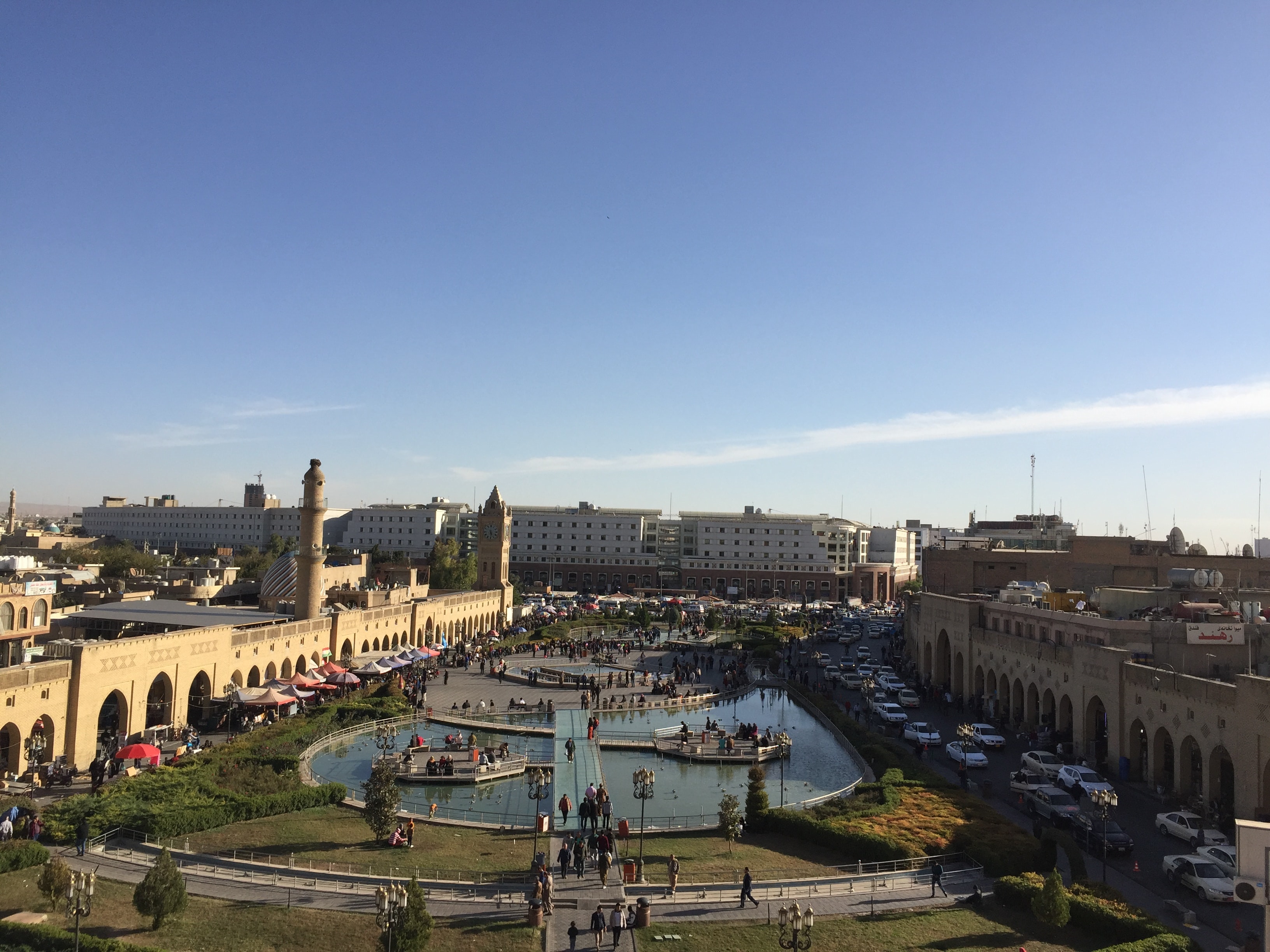
In recent years, Iraq has been a constant on the news due to all the obstacles the country faced– from the rule of Saddam Hussein to the recent ISIS attacks that terrorized the country. This has made some serious impact on the country and even more, to the citizens themselves.
- Qatar Layover: The best things to do in Doha While on a Transit
- 7 Awesome Things to Do in Kuwait for Cultural Travelers
- Travel to the Middle East – One Week Trip Itinerary for Oman
- Best Sailing Destinations in the Middle East
- Middle East Expat’s Guide To Money Management
Now, with the country slowly getting back on its feet again, people are also starting to gain interest in coming over. Its doors have been opened to tourists who are wanting to know more about what’s more to Iraq than what the media portrays.
In this article, you’ll find out about some of the most exciting things one must experience when in Iraq.
Table of Contents
Key Cities in Iraq
Baghdad – This city is the country’s capital and its largest city as well. Baghdad goes way back in history, being mentioned in documents as old as the Assyrian cuneiforms from 9th century BC. It was founded in the 8th century and has since been the country’s commercial and cultural center due to its excellent location.
Nowadays, Baghdad is a modern metropolis and is home to many museums, schools, and other major offices and establishments in the country.
Basra – This city lies near the border Iraq is sharing with Kuwait along the Shatt Al-Arab River and is serving as the country’s main port. Like most of the country, it also goes way back to 636 as a former encampment for Arab tribesmen.
These days, the city’s largely depends on its oil industry as its main source of income. It also is a major agricultural region in the country which produces maize, rice, millet wheat, dates, and livestock.
Hillah – Another agricultural land which produces a wide range of fruits, crops and textile, this city in the central region of Iraq was chosen as the country’s cultural capital in 2008. It’s also an important archeological site due to its proximity to the ancient ruins of Babylon, Kish ruins and Alberes.
Erbil – The center of Iraq’s autonomous Kurdistan region, Erbil is the 4th largest city in all of Iraq. It is also known as one of the oldest continually inhabited sites of human civilization and is one of the safest places to visit in all of Iraq these days.
What You Should Do When in Iraq
1. explore all the places you’ve read about in the bible.
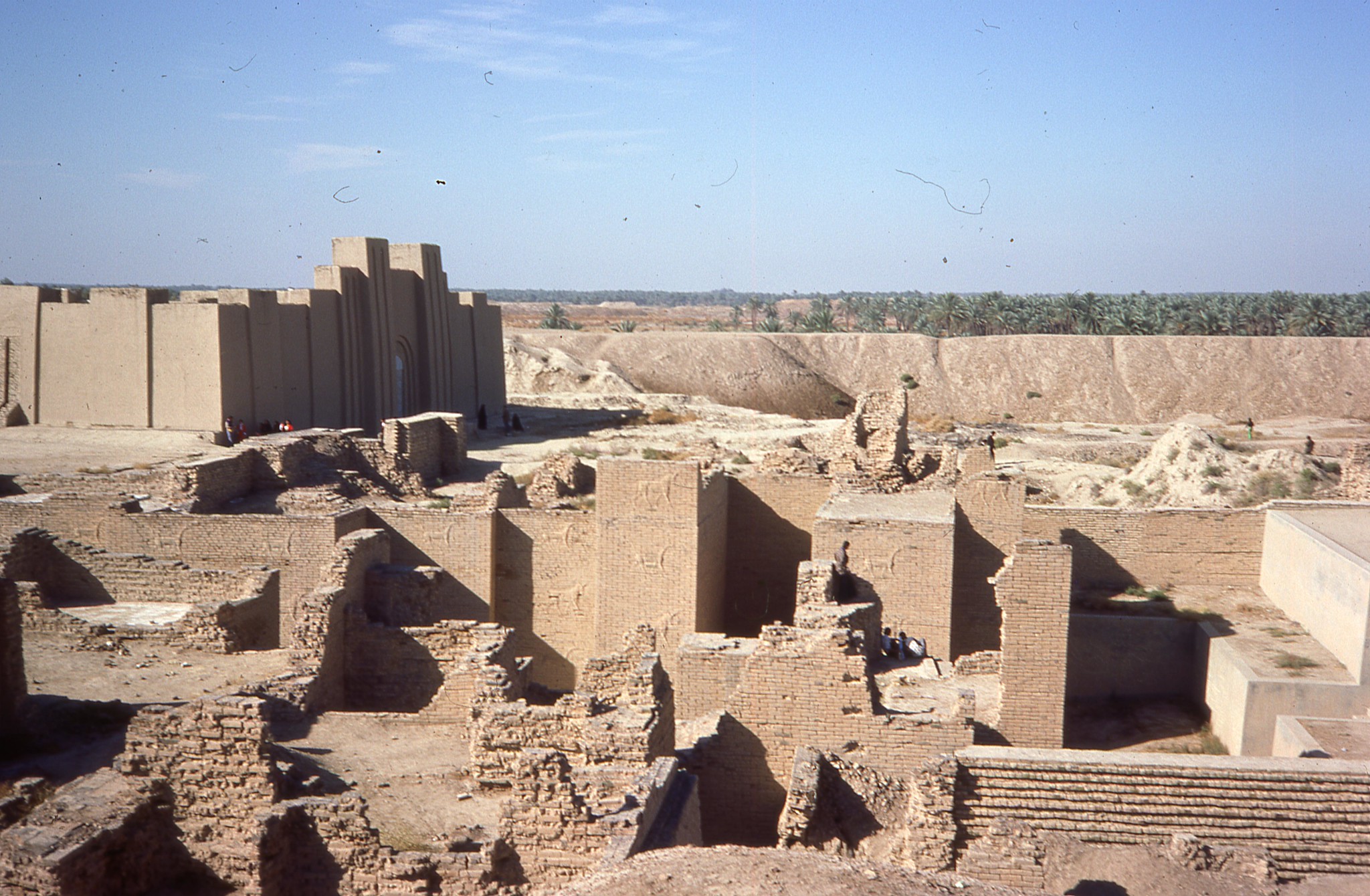
You’ll be surprised to know that some places mentioned in the Bible are all conveniently placed in one country, Iraq. First off, it is believed to be the location of the Garden of Eden as well as the city of Ur which is where Abraham and eventually, his lineage originated. There’s also the ruins of Babylon still standing in the southwest of Baghdad.
Despite all the looting, bombing, and other tragic events the place has gone through, parts of the ancient kingdom can still be found up to this day. The Tower of Babel is also believed to be located in Iraq and was said to be based on the Etemenanki which is a ziggurat dedicated to Marduk, a Mesopotamian god.
2. Visit historic mosques
View this post on Instagram A post shared by Seyed Amirhashem.dehghani (@amirhashem.dehghanii) on Mar 27, 2020 at 1:25pm PDT
As a country with a history dating back to thousands of years, it also has its fair share of mosques that are important to our Islam brothers and sisters. The Imam Ali Mosque of Narjaf, for example, is known to be house the tomb of Ali ibn Abi Talib, the cousin of the prophet Muhammad. It is also believed that buried next to Imam Ali are the remains of Adam and Noah or Nuh.
Another one of the holiest shrines for Shi’ite Muslims is the Imam Husayn Shrine in Karbala, Iraq. This is believed to be the final resting place of the remains of Imam Husayn, the grandson of Muhammad and the third Imam of Islam. Both sites welcome tons of visitors each year due to their significance in the Shi’ite Muslim belief.
3. Learn more about the origins of our civilizations
View this post on Instagram A post shared by Osama Sarm | أسامة صارم (@osamaex) on Jan 24, 2020 at 8:50am PST
Of course, as the birthplace of modern human civilization, Iraq has its fair share of artifacts dating back to the Mesopotamian era which you’ll find in the Iraqi Museum in Baghdad. The war may have affected it negatively when it was looted during the Invasion of Iraq in 2003, but with the constant effort of the Baghdad Museum Project, it was later reconstructed and opened to the public in 2015. In there, you’ll still find thousands of artifacts from back in the day like statues, ancient masks, and other important pieces of our past that will surely teach you more about the origins of the modern people.
4. Pay a visit to the Martyr Monument
View this post on Instagram A post shared by Shahd Al Jumaily شهد الجُميلي (@shahdaljumaily) on Dec 1, 2019 at 2:19am PST
The Martyr Monument or Al-Shaheed Monument was designed by Iraqi sculptor Ismail Fatah Al Turk in memory of those who fought and lost their lives during the Iran-Iraq War. Established in 1983, this huge architectural structure stands in the middle of an artificial lake. Below is a library, a museum and other facilities that you can visit to know more about the Iraqi soldiers who fought and lost their lives during the 8-year war.
5. See a blood-penned Quran for yourself
Do you have a penchant for something out of the ordinary? You probably do, and this might be interesting for you. As a way of displaying his utmost devotion to Islam after a failed attempt on his son’s life, former dictator Saddam Hussein had a copy of the holy book of Quran written in perfect calligraphy using a very unusual ink– his blood. He had about 27 liters of his blood extracted from him to be used by the artist to write about 600 pages of the holy document.
It was formerly displayed in Saddam’s “Mother of All Battles” Mosque, but in recent times, the government decided to lock it in a basement and behind vaulted doors. It’s not easy to see it for yourself now, but who knows? You might get your chance one day.
6. Have a relaxing day in the mountains
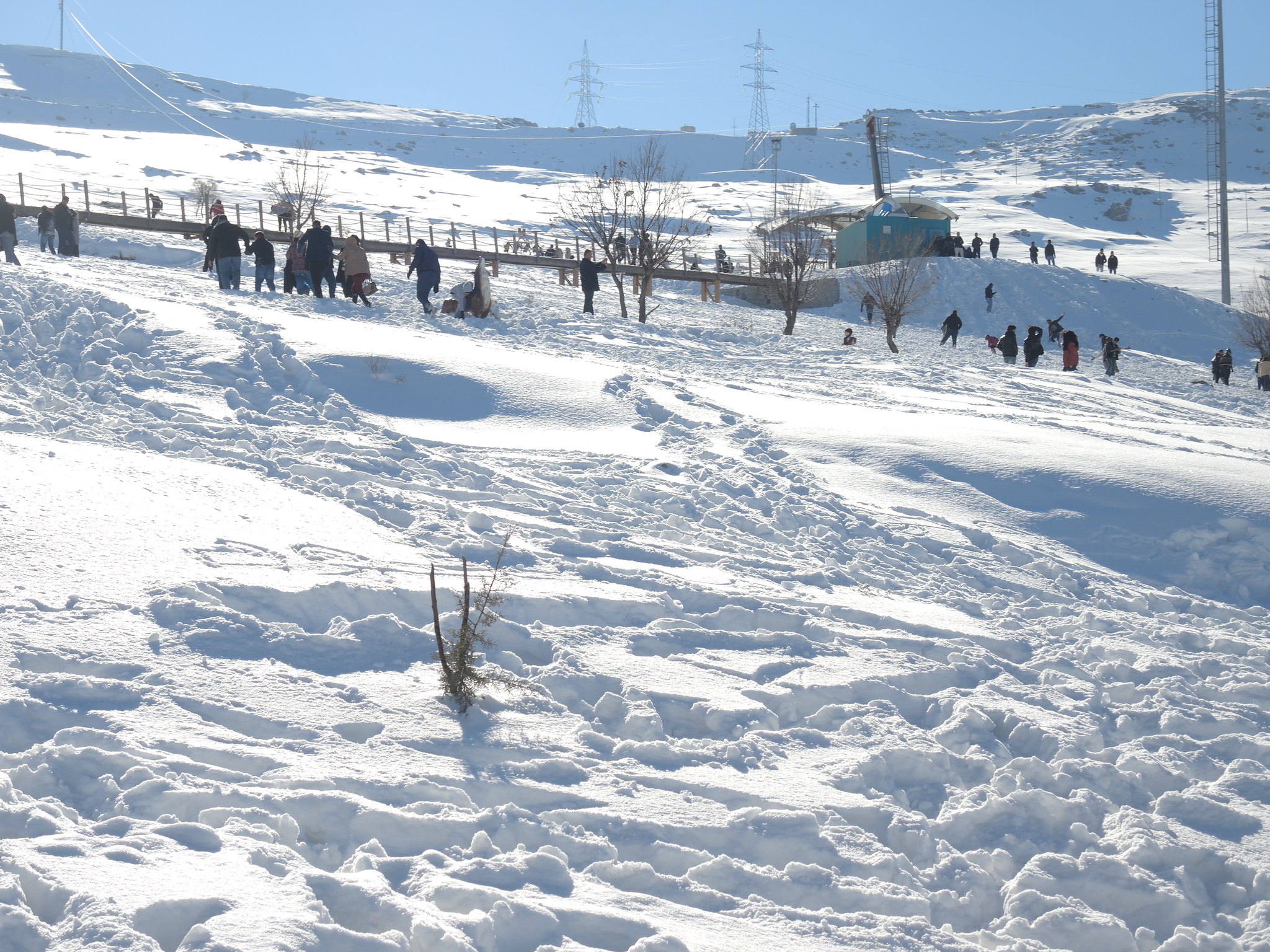
If you ever decide to pay a visit to Kurdistan, you might want to drop by Mount Korek to have a relaxing time. A resort named Korek Mountain Resort & Spa sits atop the mountain and can be accessed through a cable car. Isn’t that cool? Enjoy activities like skiing, sky gliding, riding a nautic jet and shooting paintballs in this exciting resort. There are also over a hundred villas where you can spend the night.
7. Get in touch with nature
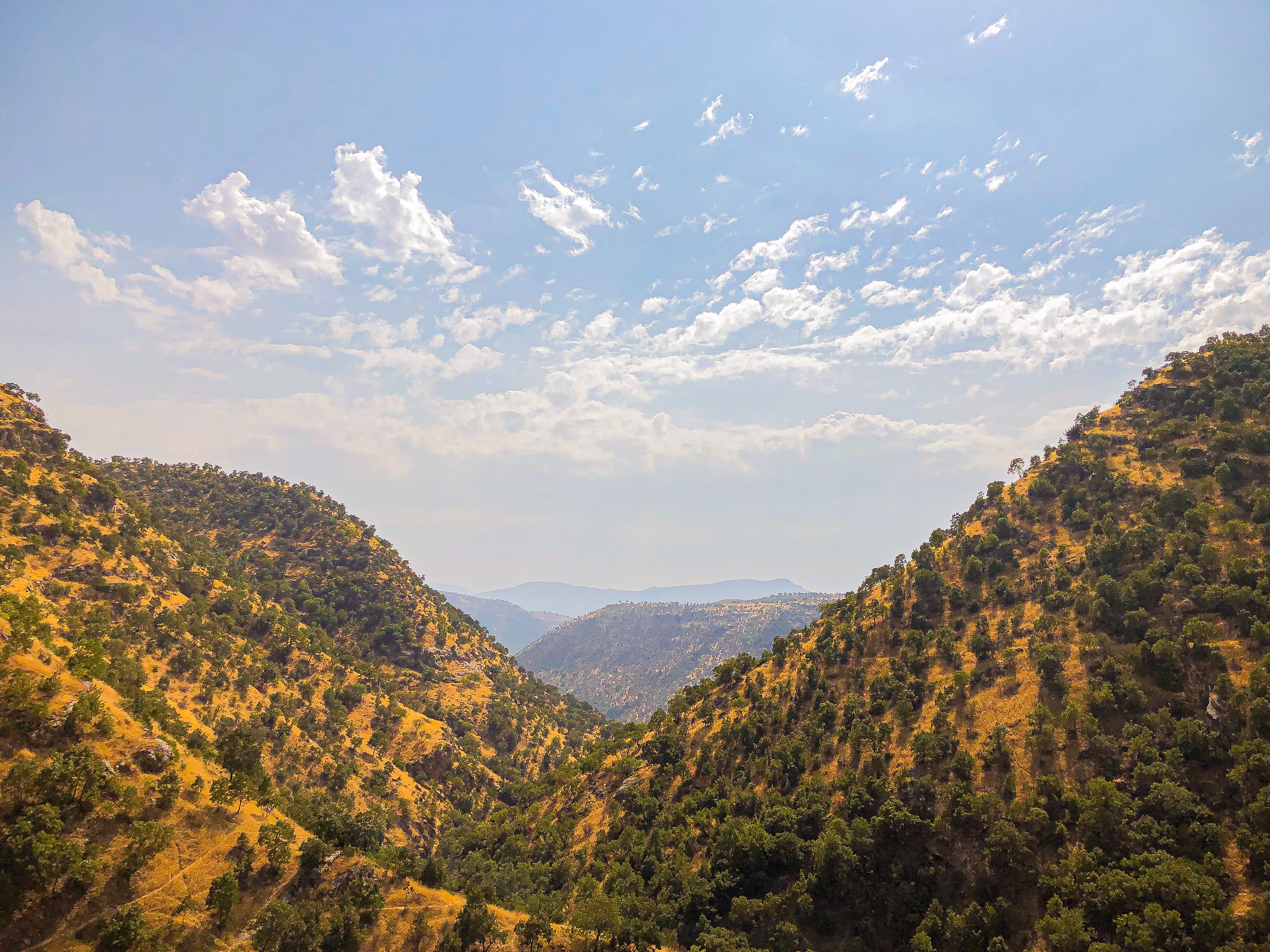
This isn’t a well-known fact about the country, but in recent years, Iraq has been trying to diversify its tourism industry by trying to boost its ecotourism department. The marshlands located between the Euphrates and Tigris rivers have been the cradle of some beautiful wildlife and scenery found in the country. However, during the time of Hussein, he drained these marshes as a way of punishing its inhabitants by going against him.
Nowadays, you can now enjoy these waters by boat and visit the man-made islands once again where beautiful houses made from reeds can be found.
8. Find Venice in Iraq
Basra, the port of Iraq, is also the home to what is known as the “Venice of the East”– canals lined up by houses built in the 19th century. Visit the Old City of Basra and you’ll find some of the most awesome architecture there probably is in the country. You can also take a stroll on the island near the Shatt Al-Arab hotel and enjoy some relaxing time.
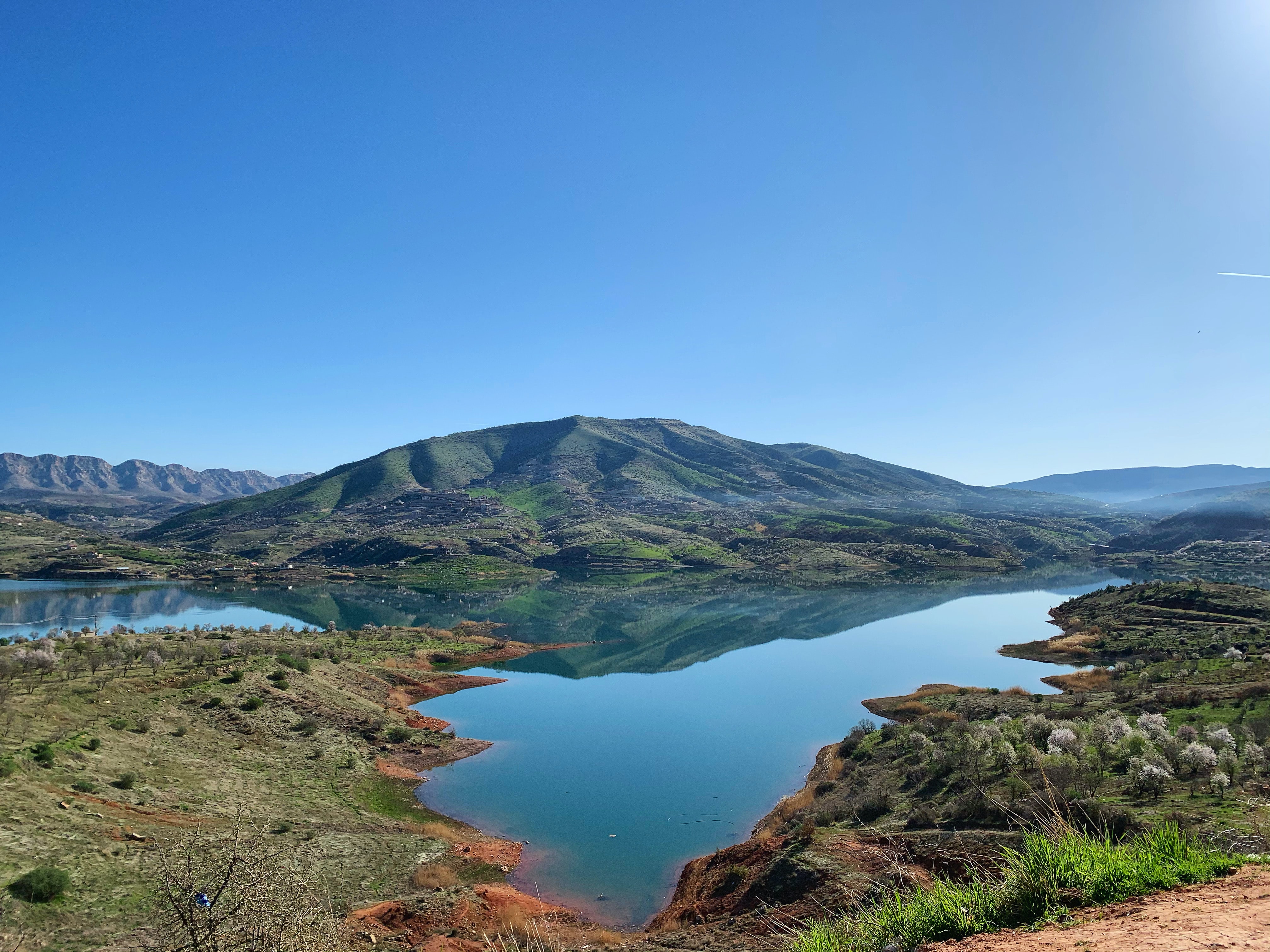
Frequently Asked Questions About Visiting Iraq
1. Do I need a tourist visa to visit Iraq?
Yes, citizens from all countries are required to apply for a visa to go to Iraq.
2. How long is a tourist visa in Iraq valid for?
A single-entry tourist visa is valid for 3 months from the date it was issued while a multiple-visa is valid for 6 months.
3. How do I apply for a tourist visa to Iraq?
It’s advisable to apply for a tourist visa through a tour operator as technically, you can only apply for a visa on your own if you will be in a group of 5 or more tourists wanting to go to Iraq together.
4. Can I travel to Iraq on my own?
No. You are required by the government to have a guide and a driver with you at all times while you are in their territory. This is also one of the reasons why joining a tour in Iraq is your safest bet.
The tour operator will not only help you get a tourist visa but would also make getting permission to go to different places outside Baghdad (required by the government) easier.
5. Is it safe to travel to Iraq?
According to the stories of people who had been in Iraq recently, the country’s relatively safe and they didn’t feel threatened through the whole duration of their stay. This is despite warnings of various government agencies all around the world about traveling to the country.
Of course, before you go, it’s best to check your country’s travel advisory and the recent news first so you know what’s in store for you when you visit Iraq.
6. Can I go to Iraq from Kurdistan and vice versa?
Yes, you definitely can. However, keep in mind that your Iraqi visa will not be a valid document to enter Kurdistan and vice versa. This is because separate bodies are governing these two so naturally, even their laws are different.
You can go on a Kurdistan-Iraq trip but only if you’ll be crossing the border through the air. Crossing the Kurdistan-Iraq border are not allowed at this time.
7. Will I be able to connect to the internet when in Iraq? Can I use my phone?
Of course! There are places with free Wi-Fi connections scattered all over the country with a pretty decent connection so you’ll have no problem surfing the web during your downtime.
Local telecoms also offer SIM cards that visitors can use while in the country. It’s also loaded with a certain amount of data if you ever need to use the internet and is outside a Wi-Fi zone.
8. Can I use my credit card in Iraq?
Unfortunately, only a few establishments accept credit cards at the time so you’re the best option will be to carry some cash with you.
Exchanging your local currency can be done within the airport or at exchange counters in the city.
9. Do they speak English in Iraq?
Because some Iraqis have the experience of living outside of their home country during the war, you’ll find a number of them speaking a foreign language like French, German and even a little bit of English.
If you do need to have something explained to them, though, you’ll need the assistance of a guide.
10. What laws and customs should I observe when in Iraq?
As Iraq is a predominantly Muslim country, you must respect their local traditions, laws, and customs at all times.
When dressing up, make sure to be modest at all times. It’s unacceptable for women to wear sleeveless and see-through clothing while men are only expected to wear shorts for exercising.
When sitting cross-legged, avoid placing your foot or shoe in the direction of someone’s face as it’s considered rude. The same goes for when you’re pointing at something and you do it with a single finger. Always use your whole hand or even both hands for emphasis if you want to point at something.
If you decide on taking pictures while going around, make sure that you never take photos of their soldiers, government establishments and inside some of the holy shrines in a few places around the country. If you want to take a photo of someone or something, always double-check so you don’t get into trouble.
This is something that you should keep in mind before going to Iraq, but having an Israeli stamp on your passport is a no-no and will not grant you access to the country. Make sure that you don’t have one by avoiding crossing borders Jordan and Egypt share with Israel to make sure.
11. When is the best time to visit Iraq?
Iraq is best experienced during the spring and autumn seasons when climates aren’t too hot and too cold.

Are you on Pinterest? Pin these!
![iraq tourism sites 8 Things To Do in Iraq [Best Places to Visit in Iraq]](https://twomonkeystravelgroup.com/wp-content/uploads/2021/06/8-Things-To-Do-in-Iraq-Best-Places-to-Visit-in-Iraq1.png)
Leave a Reply Cancel reply
Your email address will not be published. Required fields are marked *
This site uses Akismet to reduce spam. Learn how your comment data is processed .
COPYRIGHT DISCLAIMER: Many of the articles on Two Monkeys Travel Group are guest posts by a number of Approved Contributors and are hosted by Two Monkeys Travel Group. Approved Contributors control their own work and post freely to our site. This includes all text and images that they use within their own work. All contributors are instructed to follow internationally recognised copyright and intellectual property guidelines. Two Monkeys Travel Group takes its own responsibilities very seriously, so if you feel that any part of this work is abusive in any way, please send us an email so that we can investigate - [email protected]
DISCLOSURE: Please note that some of the links above are affiliate links. So when you make a purchase we sometimes make a small commission, at no extra cost to you. The cost to you remains the same, sometimes even cheaper if we have negotiated a special deal for our readers.We use all of the companies we have listed here and that’s why they are in this list, but of course we need to keep Two Monkeys Travel Group running as well as it can, which is exactly what you’re helping with if you do decide to buy or book something through an affiliate link! If you have any more questions about the companies we use or any other companies you’re looking at, just email us and we’ll be happy to help. Please see our full disclaimer page for more information.
Written by Two Monkeys Travel - Contributor
Two Monkeys Travel Group – Community Travel Blog is a travel blog and website. We quickly grew into a valuable source of inspiring travel stories, advice, itineraries and travel guides, with the aim of demonstrating how to live a sustainable life of travel, whilst living your own definition of success. If you'd like to contribute and write a guest post, contact us at [email protected]
48 Hours in Tokyo – Exploring Japan’s Vibrant Capital
How to find the best hotels in new york, top california destinations for families to enjoy, scuba diving and snorkeling in the philippines, what are the benefits of booking flight tickets in advance, related posts, 8 cutest animal theme cafes in seoul, south korea [the best animal cafes], our 3- day travel itinerary to istanbul, turkey – tips & guide, 7 things to do in yemen [places to visit in yemen], awesome things to do in baler and nearby towns, aurora @tourismphl, previous post, 3 day montenegro itinerary: how to maximize your 3 days in montenegro, travel guide in honduras – how, where & frequently asked questions, subscribe to our newsletter.
Receive tips on how you can live a sustainable long-term travel lifestyle!
- First Name *
- Phone This field is for validation purposes and should be left unchanged.
The 10 Best Things to do in Baghdad, the Capital of Iraq
Updated March 2024 , The 10 Best Things to do in Baghdad, the Capital of Iraq was originally published in June 2022
Planning to travel to Baghdad as part of your greater Iraq itinerary ? Well, look no further, I’ll give you all the details to help you plan your trip and get the most out of your visit to Baghdad.
Baghdad has a long history stretching back several millennia, founded by the Abbasids in 762, a little north of the Sassanian capital of Ctesiphon. But the history of the general area surrounding Baghdad goes back to 3000 BC, hosting civilizations such as the Sumerians, Akkadians, Babylonians, and Assyrians. Back then, Baghdad was named Madinat al Salam at its foundation, meaning city of peace.
In more recent history, Baghdad was heralded as one of the most dangerous cities in the world owing to the brutal dictatorship of Saddam Hussein, the 1980s Iran-Iraq War, the 1991 Gulf War, and the 2003 US Invasion of Iraq and subsequent Fall of Baghdad, and later the rise of ISIS. These days Baghdad (as well as a decent amount of the nation of Iraq) seems to have turned a new leaf, becoming a bit more secure in the past few years.
With that said, things can and do still happen in Baghdad, so a visit is not without any risks- it’s just improved and become a lot less dangerous than it has been in the past 30+ years.
Starting March 2021, Iraq introduced a visa on arrival scheme for several nationalities entering Iraq at Baghdad, Basra, and Najaf International Airports, making visiting Iraq easier than it’s ever been in decades.
So, continue reading my Baghdad travel guide to find out the best things to do in Baghdad as well as where to stay, what to eat, and more.
Need Travel Insurance and Evacuation Services for Iraq?
Start shopping for travel insurance plans over at IATI Insurance . Readers of the Adventures of Nicole get a 5% discount off your plan.
The Adventures of Nicole partners with Global Rescue to offer the world’s leading medical evacuation and security advisory services. To travel with peace of mind, shop evacuation coverage at Global Rescue .
Things to do in Baghdad
Iraq museum.
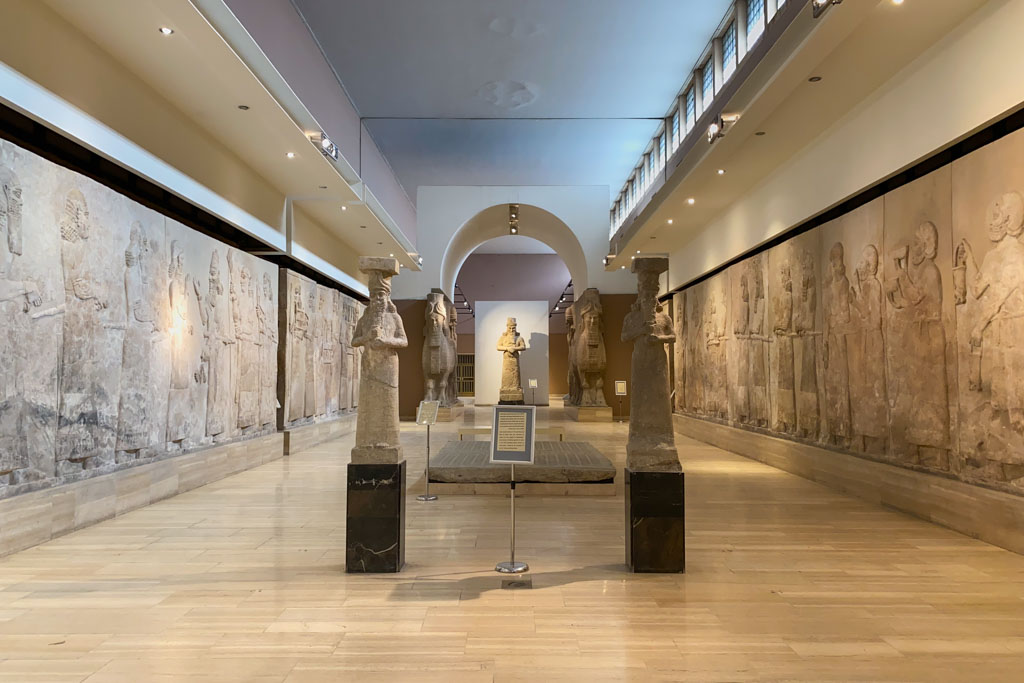
The Iraq Museum is well worth putting in the effort to visit as it houses some of Iraq’s most impressive and important artifacts. Sadly, the museum was looted following the 2003 invasion, but the Iraq Museum opened its doors again in 2015 and is slowly gaining some pieces back.
The museum features countless displays belonging to different Mesopotamian (Sumerian, Akkadian, Babylonian, Assyrian), Persian, and Islamic civilizations. The most impressive section of the museum (in my opinion) is the Assyrian Gallery.
Entry, hours, and getting to the Iraq Museum: Getting access to the Iraq Museum isn’t exactly easy as it’s not really open to the general public. The easiest way of securing entry is by making advance plans with a guide who can get you in. You will need them to schedule a time with the curator.
The Iraq Museum is one of the few things to do in Baghdad that isn’t within walking distance of Central Baghdad, so grab a Careem or taxi here.
Al Mutanabi Street
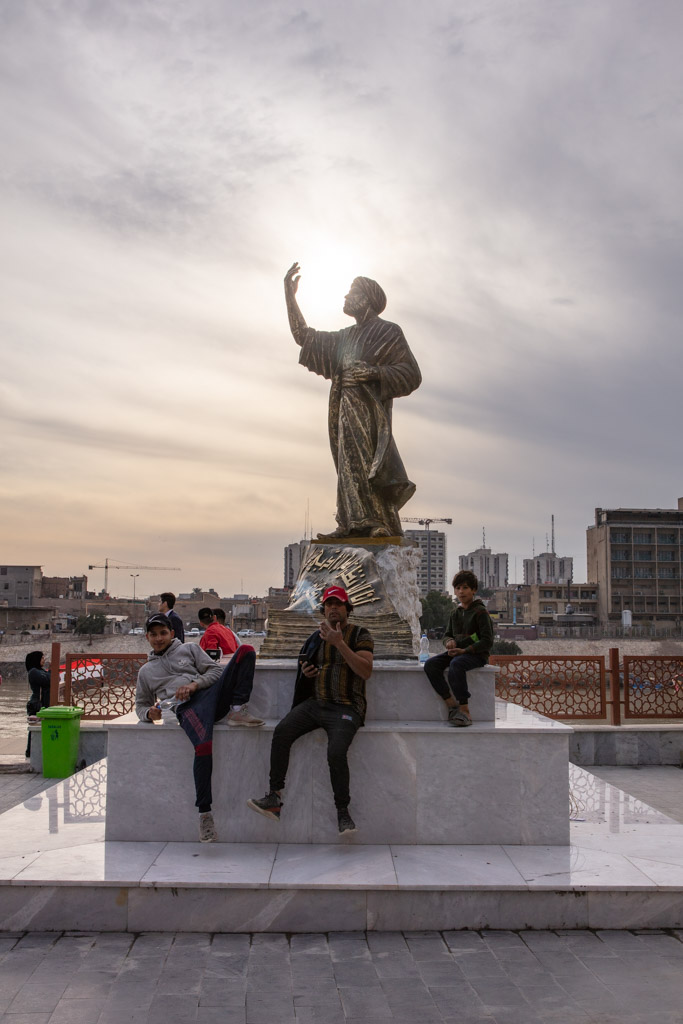
Al Mutanabi Street forms part of Baghdad’s historic center, a pedestrianized street and among the oldest in Baghdad. The street is named after Al Mutanabi, a famous 10th century poet who originally hailed from Kufa.
Al Mutanabi Street is lined with bookstores, stationery shops, and cafes, nodding to its legacy as the center of Baghdad’s intellectual and literary scene, dating back to Mutanabi’s heyday and the times of the Abbasid Caliphate. You can even find the Statue of Mutanabi at the end of the street overlooking the Tigris River .
One cafe not to miss in Baghdad as you meander along Al Mutanabi Street is the over century-old Shabandar Cafe . Another Al Mutanabi Street monument you can’t miss is the Ottoman-era Qishla Clock .
Al Mutanabi Street Hours: Officially the street is open any time but almost all of the shops, stalls, and cafe close by 3 pm and is essentially a ghost town after that. The best hours to visit are between 9 am and 1 pm when things are hopping.
Shabandar Cafe
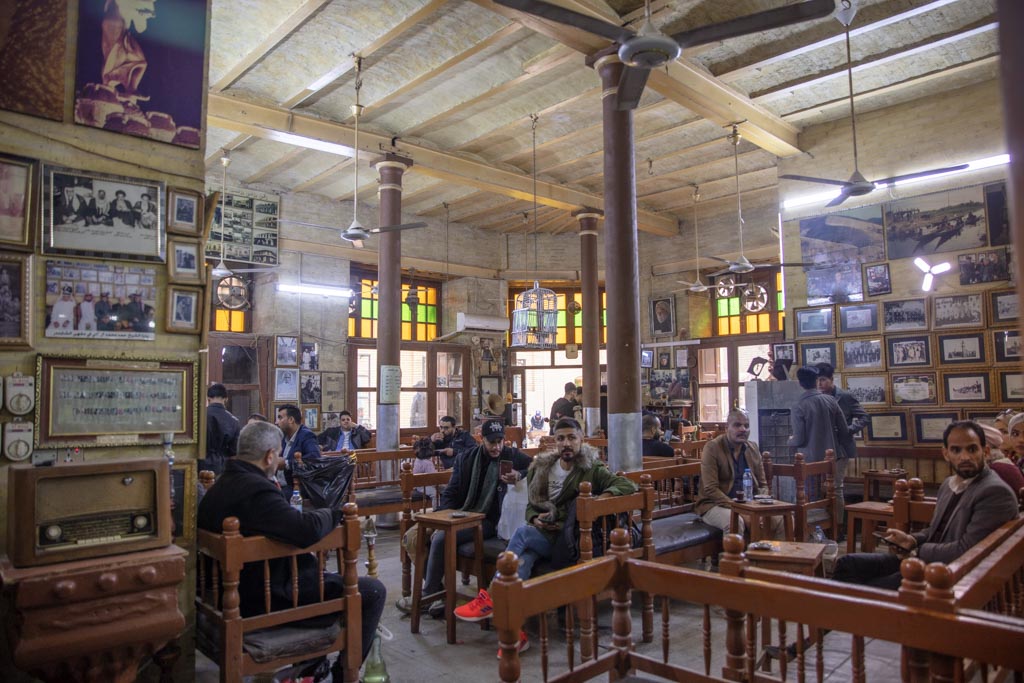
Plop down on a bench and put in an order for a glass of chai or qawa (coffee) and maybe even some nargilé (hookah/shisha) and watch the afternoon roll by among Baghdad’s intellectuals.
Shabandar Cafe opened its doors on Al Mutanabi Street in 1917, over 100 years ago, and has served as a meeting point for the scholars and thinkers of Baghdad. Before the building served as the Shabandar Cafe, it was the printing press of merchant Abdel Majid Al-Shabandar.
The current owner, Mohammed Al Khashali took over Shabandar Cafe in 1963 but unfortunately lost his sons and grandsons in a car bombing that took place on Al Mutanabi Street in 2007.
Shabandar Cafe hours: 8 am to 6 pm.
Mustansiriyah Madrasa
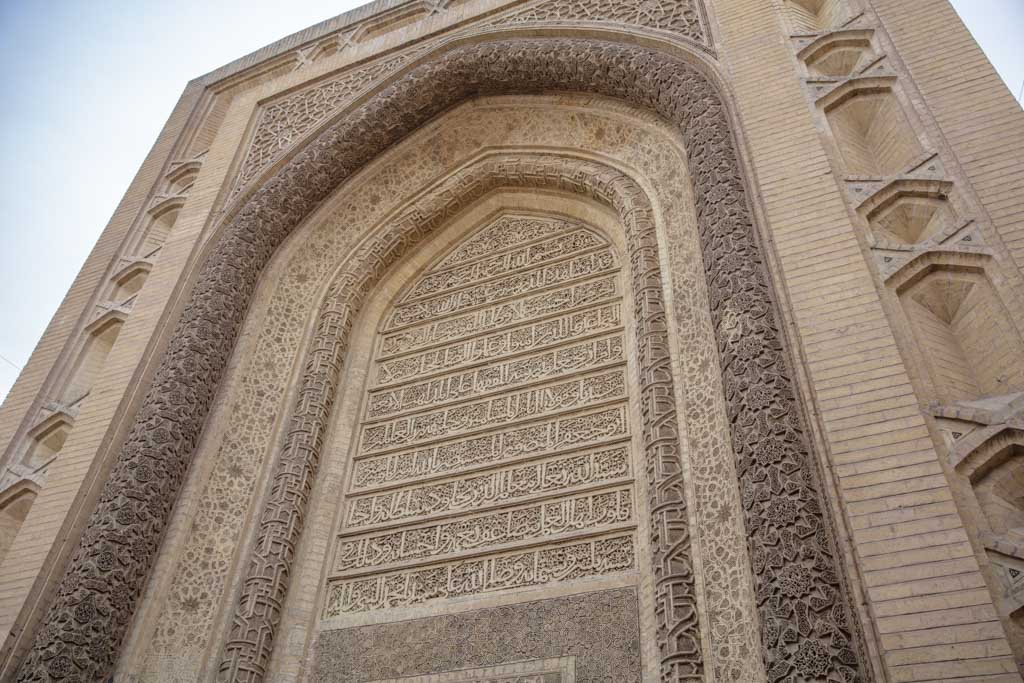
Located near the Safafreer Copper Market and not far from Al Mutanabi Street is the 13th century Mustansiriyah Madrasa. The madrasa (an Islamic university) is among the oldest in the Islamic world, founded by the Abbasids. It is laid out in the typical four iwan pattern.
Entrance to Mustansiriyah Madrasa: Mustansiriyah isn’t really open, but it’s not really closed either. If the doors are shuttered and you can’t find anyone to open them, you can admire it from the outside at least.
Souk Al Safafreer
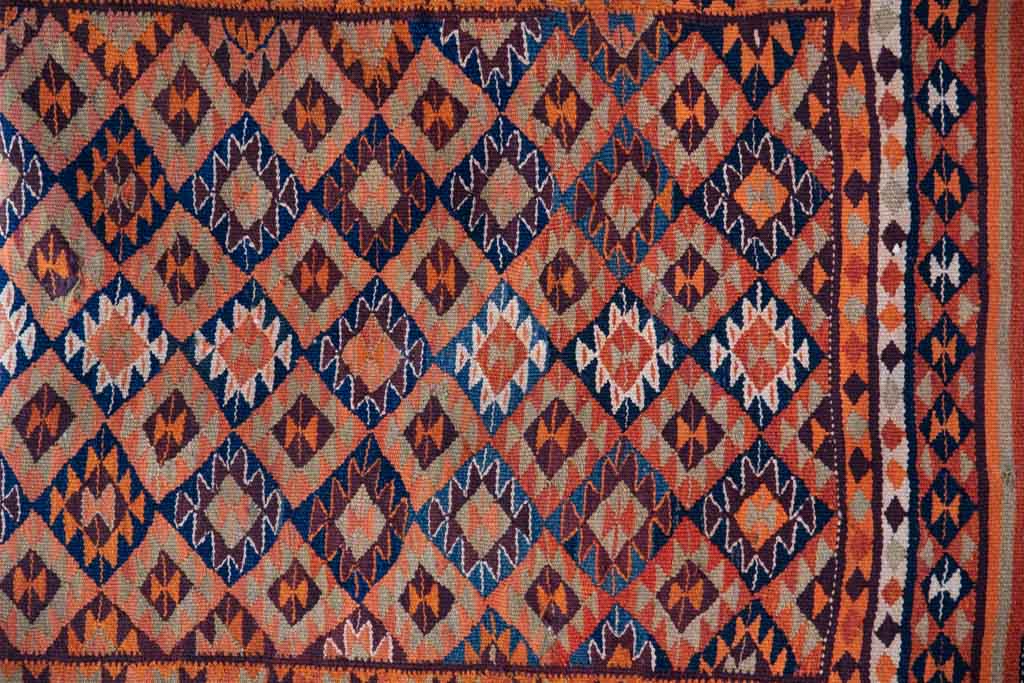
Just off Al Mutanabi Street is the over 300 year old Souk Al Safafreer. Here you can find beautiful copper lamps, trays, plates, and more. If you are planning to make some purchases, it would be wise to go with someone that knows their copper as mass-produced replicas imported from other countries in the region are common.
Souk Al Safafreer hours: Much like the stalls on Al Mutanabi Street and Al Rashid Street, you’ll find almost all the stalls in Souk Al Safafreer hours will be shut by 3 pm, so it’s best to visit between 9 am and 1 pm when most everyone is still open.
Baghdadi Museum
The Baghdadi Museum is dedicated to the local history of the city. It features wax figures that depict different periods of Baghdad’s history as well as local traditions. Full disclosure though: I didn’t visit the Baghdadi Museum myself (was too museum’d out).
Baghdadi Museum opening hours and entrance: The museum is open from 9 am to 2 pm and is closed on Tuesdays. Entry is 1,000 IQD.
Al Rashid Street
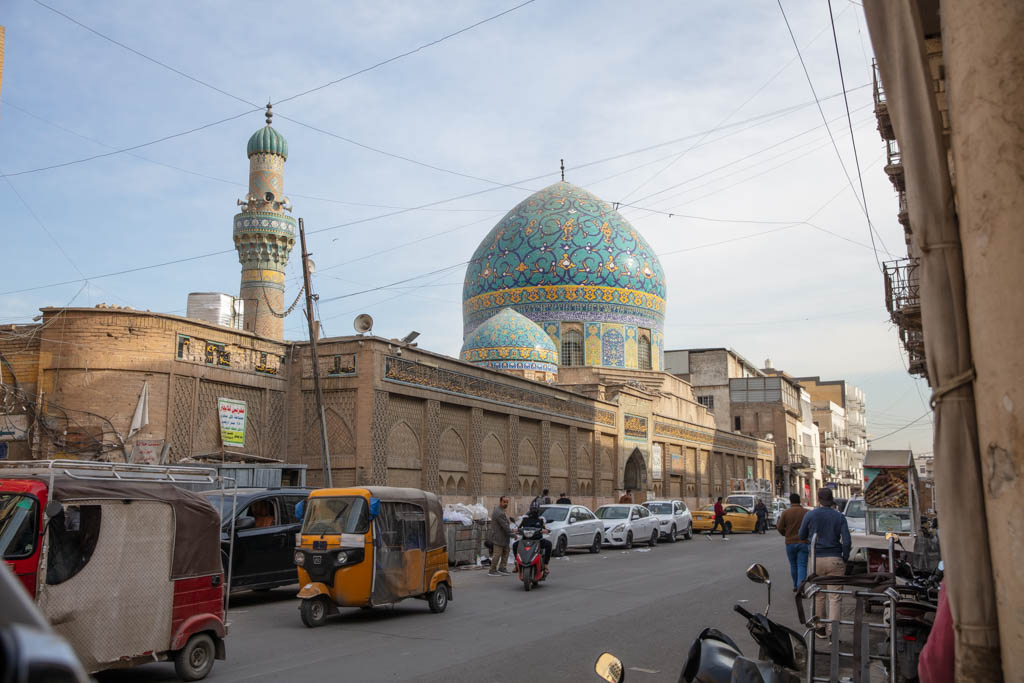
Al Rashid is another historic street in Baghdad that meets up with Al Mutanabi Street. Here you can find just about anything being sold out of the shops and stalls that line the street. There are also many cafes along Al Rashid, making it great for a lunchtime stroll.
A famous shop on Al Rashid Street that you must visit is Haj Zebala Juice . Haj Zebala was been a prominent Baghdad fixture for over 100 years, serving up, you guessed it- juice.
Most locals will say to get the (raisin) grape but I preferred the pomegranate (though, both were quite good so you can’t go wrong).
The owner, Haji Mohammad Abdel Ghafour is the third generation of hands the establishment has been in. A glass will cost you 1,000 IQD.
Impossible to miss as you meander your way down the street is beautifully tiled Haydar Khana Mosque worth a pause to snap a photo or two as you pass by.
Opening hours for Al Rashid Street shops: Most shops on Al Rashid close by 3 pm, so best to visit earlier in the day.
Tahrir Square
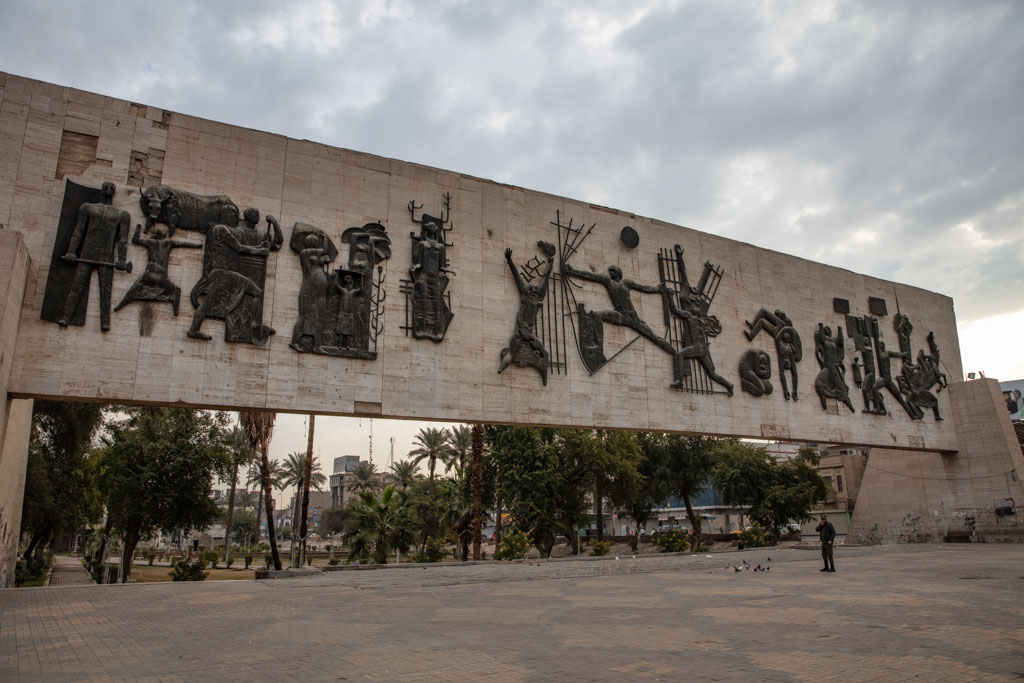
Tahrir Square is the largest public square in Baghdad, located in the Al Rusafa Neighborhood. Tahrir means liberation in Arabic and was named so to commemorate the formation of the Republic of Iraq in 1958.
A prominent feature of Tahrir Square is the Nasb al Hurriyah Monument (Freedom Monument), depicting historic events in Iraq using bas-reliefs mounted to a slab of travertine.
Another cool monument not to miss near Tahrir Square is the Tahrir Square Murals painted by artists during and following the 2019 Iraqi Protests. They are located in the tunnel that leads from the square to the southeast toward Firdous Square.
Firdous Square
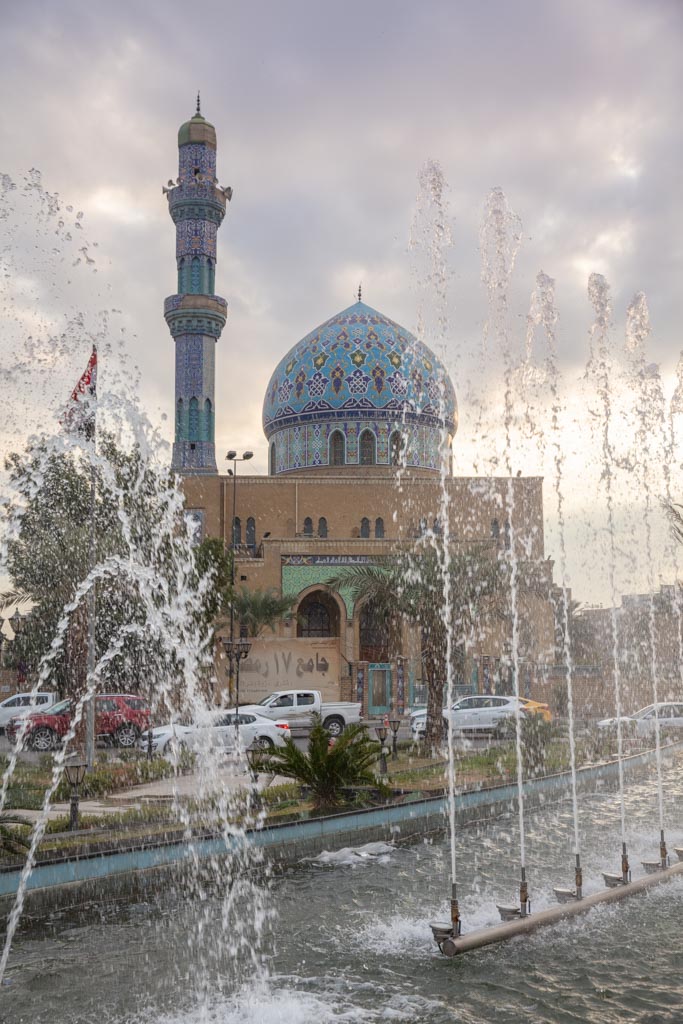
Firdous Square is another famous Baghdad landmark, surrounded by several well-known buildings like the 17 Ramadan Mosque and the city’s most famous hotels- the Palestine Hotel and the Ishtar Sheraton Hotel , both of which garnered their fame serving as the bases for the foreign correspondents that flooded into Baghdad, following the 2003 invasion.
Firdous Square did house a much more prominent Baghdad landmark until it was toppled over in 2003- the 12 meter tall Saddam Hussein Statue . Fittingly, he was replaced with a garbage can.
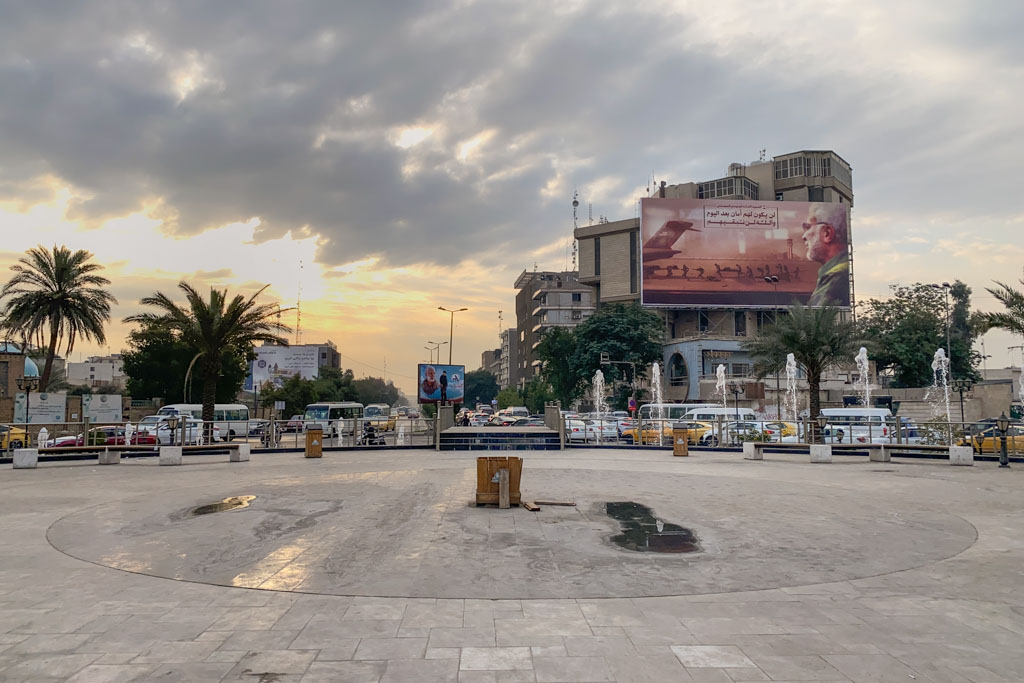
Al Shaheed Monument
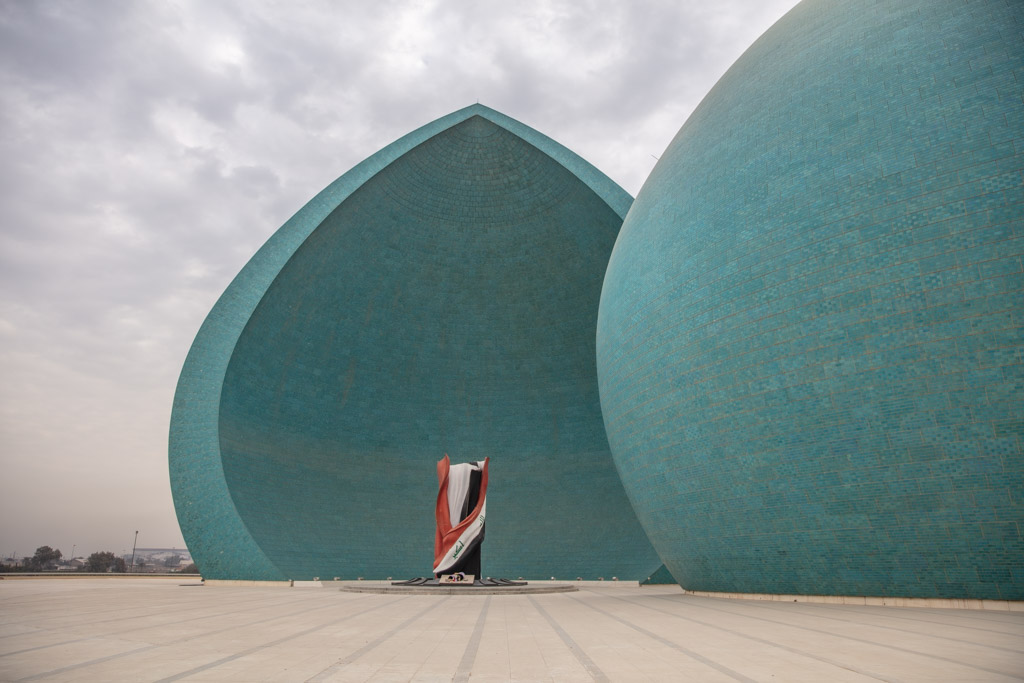
Al Shaheed, also known as the Martyr’s Monument is the famous blue-tiled somewhat egg-shaped structure that was built to commemorate those who lost their lives in the bloody Iran-Iraq War of the 1980s.
The monument itself is pretty impressive when you’re up close and actually get a sense of how large it is.
Downstairs underneath is a not-to-be-missed museum and library.
Entry, hours, and getting to Al Shaheed Monument: Entry is 3,000 IQD per person and opening hours are 8 am to 3 pm daily. Al Shaheed Monument is located about 4.5 kilometers northeast of Tahrir Square, so order a Careem or hail a taxi to get here.
Al Kadhimiyah Mosque
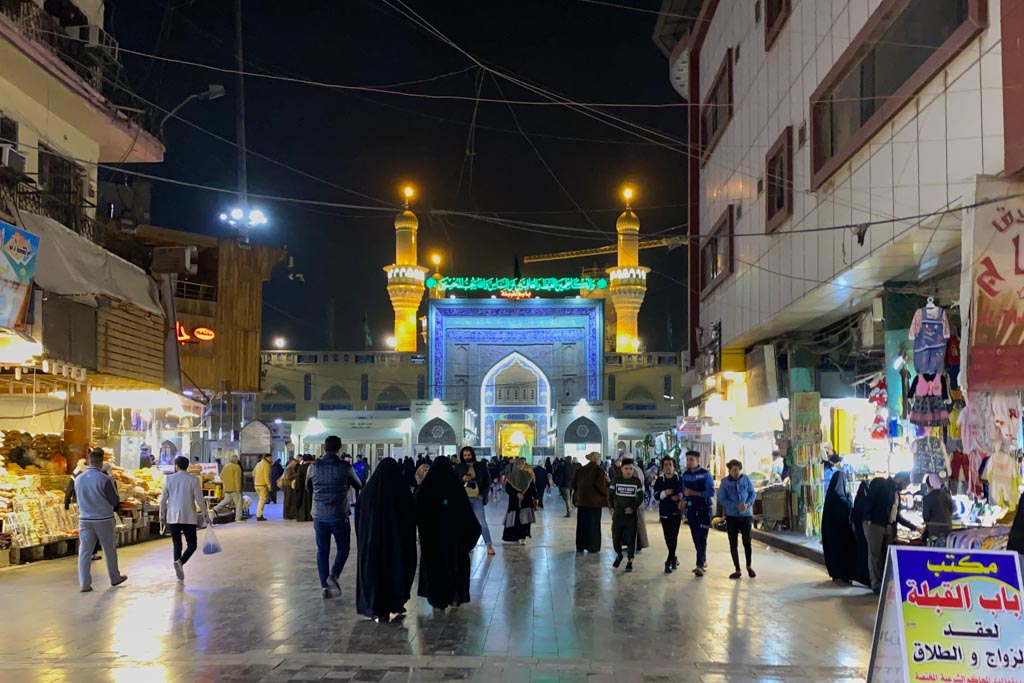
Al Kadhimyah Mosque, also known as Yassin Mosque is located northwest of central Baghdad, so grab a Careem and head this way.
On arrival, female travelers wishing to go inside can pick up an abaya if they don’t have one already (the all-enveloping curtain that women must wear inside the shrines and mosques around Iraq).
The mosque is surrounded by a giant souk that sprawls out from the shrine (you’ll have to walk through the souk anyway, also grab yourself a sweet treat here afterward too).
Al Kadhimyah Mosque is an important religious complex for Twelver Shia as it houses the tombs of Imam Musa Al Kadhim and Imam Mohammad Al Jawwad, the 7th and 9th imams.
The interior architecture is quite exquisite, though if you’ve been to neighboring Iran and visited many shrines there you will see some definite similarities between the shrines of both nations.
I visited in the evening (around 8 pm) and can say it was quite beautiful to see Al Kadhimiyah lit up and dazzling in the dark, though it’s worth mentioning that shrines are also nice to visit in the early morning too.
Entry and getting to Al Kadhimiyah: As this is a functioning religious site there is no fee for entry and is open 24 hours. To enter the mosque women must don the abaya/chador (can be purchased in the souk for 5,000 IQD) with hair covered and shoes removed and men must be wearing full-length pants and no shoes.
Women should avoid wearing makeup as they will make you wash it off before you enter (I have heard this from numerous female travelers here), though if yours is light you’ll likely be fine (I think all of us were wearing mascara at most and we weren’t asked to clean it off).
You cannot bring in electronics including phones and cameras but there is a desk where you can check them and pick them back up after you’re done.
Al Kadhimiyah Mosque is located far from Central Baghdad in the Kadhimiyah District on the northwest of the city, so you’ll want to get a Careem or taxi.
Where to Stay in Baghdad
There are a scattering of hotels to choose from in Baghdad to fit most budgets. The hotel I’ve stayed at every time I’ve been in Baghdad had been the Shanasheel Palace , a popular option for midrange travelers.
Another decent midrange hotel just a couple of blocks away is the Oscar Hotel . A friend of mine stayed there and said it was pleasant enough and comparable to the Shanasheel.
If luxury is what you’re after, then check out the Babylon Rotana or Coral Baghdad Hotel .
For budget travelers, the Palm Beach Hotel and Restaurant is recommended. You can call them at +9647400106827 or send an email to [email protected] .
Best Restaurants in Baghdad
If you’re like me, then you usually have no problem finding food while you’re traveling 😂. Baghdad shouldn’t be any different, as the city offers plenty of cafes, restaurants, fast food, and food stalls.
Of course, given where Baghdad is, you can expect a lot of dishes popular around the general Middle East region, which if you’re like me and Middle Eastern is one of your absolute favorites, then you’ll find Baghdad to be a delicious city (ate my way across it, no lie).
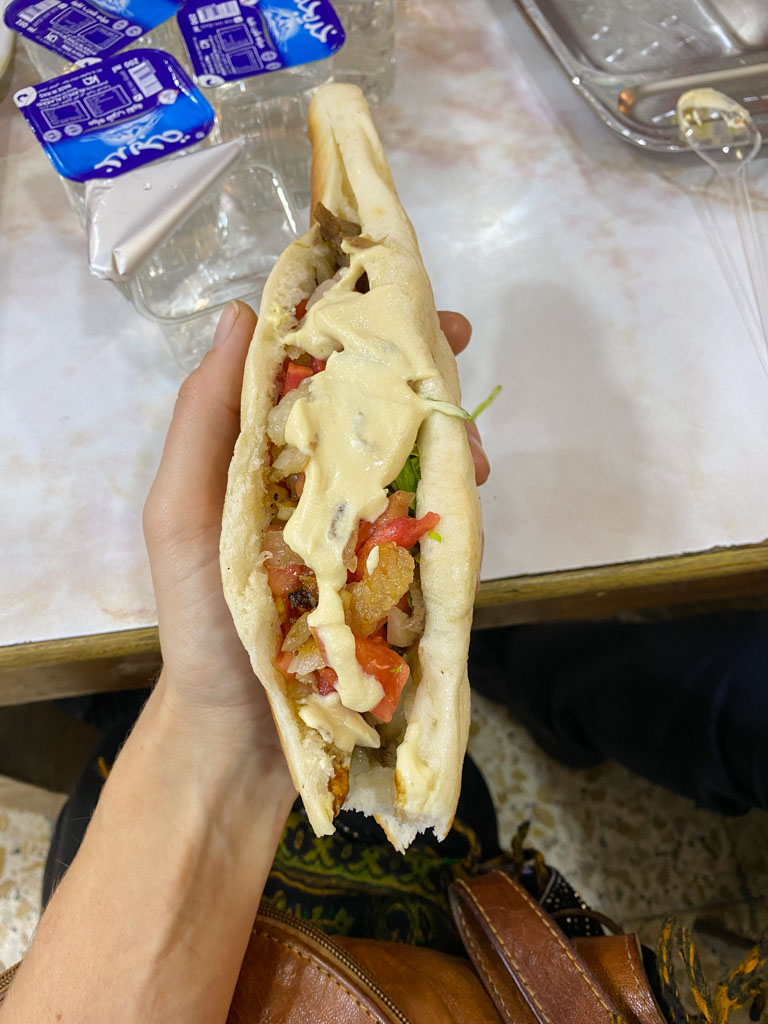
Midrange Restaurants in Baghdad
If you want some recommendations here are places I ate in Baghdad at that I thought were great: Darbuna Restaurant , Dar Al Atraqchi Heritage Cafe , Al Faisaliya Restaurant & Cafe , Shmesani Restaurant , and Saj Aleef Restaurant (note that these are all midrange restaurants, so expect a meal with a drink to cost around 15,000 IQD).
Budget Restaurants in Baghdad
As for people trying to get by on a more strict budget, there are numerous cafes and fast food shops scattered all around Baghdad, including popular areas like Al Rashid and At Mutanabi Streets. So many so that I am not going to bother listing them all.
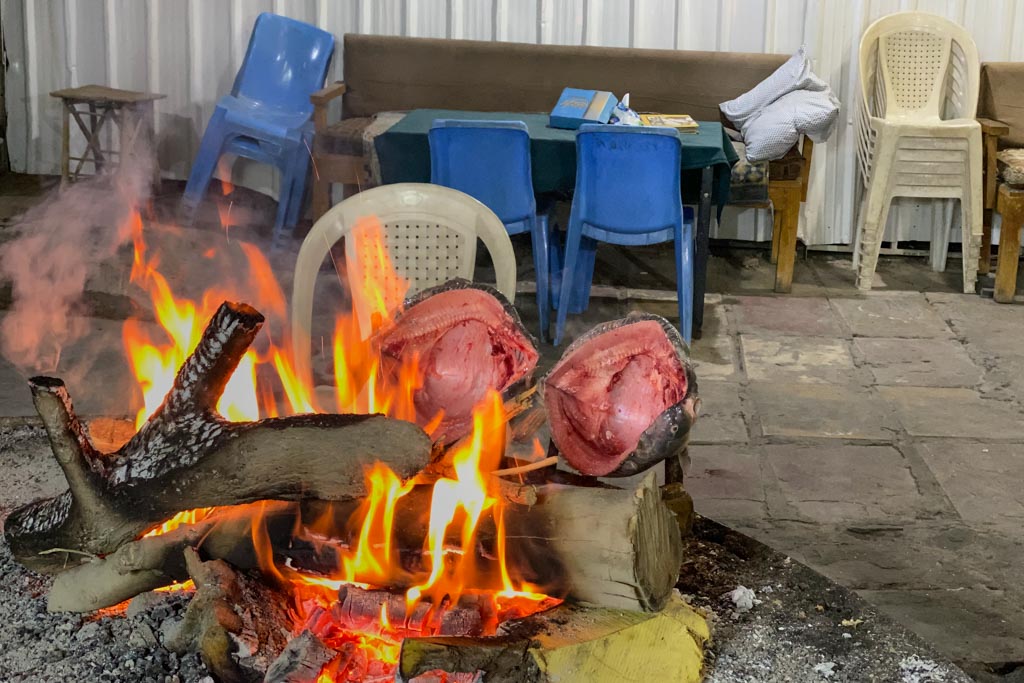
One unique dish to Iraq to try in Baghdad (and other cities in Iraq too) is masgouf, a traditional Mesopotamian fish dish that is often considered the national dish of Iraq. Baghdad prides itself on grilling up the best masgouf in Iraq, so a visit wouldn’t be complete without trying some.
Masgouf is simply a carp caught out of the river that is gutted and split down its back and spread into a single flat round. The masgouf is then covered in a marinade of salt, turmeric, tamarind, and olive oil before being propped up on an iron grill rack or on spikes next to a fire and cooked to crispy perfection. It usually takes about 60-90 minutes for the fish to cook.
There are a scattering of masgouf restaurants along the Tigris Riverfront on Abu Nawas Street , so this is the place to go if you’re looking to try some masgouf.
Arriving at Baghdad Airport
Arriving in Baghdad by air is surprisingly easy these days. In March 2021, Iraq began a new visa-free scheme for several nationalities. If you are one of the 38 eligible passports, then all you’ll need to do is pay the $77 fee on arrival at the window just before immigration. Once you have your visa sticker, continue through immigration, and voilé, welcome to Iraq.
Getting to Central Baghdad from Baghdad Airport
After you’ve collected your baggage, you have two options for getting into Central Baghdad. The cheaper option is to take the white shuttle bus that comes by the arrivals hall to Abbas Ibn Firnas Square, located outside the airport security zone for 8,000 IQD. From there, order a Careem to your final destination (should cost about 15,000 IQD to Central Baghdad).
If you don’t want the headache of taking a shuttle and a taxi, there are taxis in the garage opposite the arrivals hall. You can expect to pay 30,000-45,000 IQD for a ride to Central Baghdad.
Money Exchange/ATM at Baghdad Airport
You can exchange money at the airport but you won’t quite as good a rate (the current rate as of October 2023 is 1,310 IQD to $1 USD ) as you’ll get in the city, so I would recommend changing enough to get into Central Baghdad and then exchange the rest later. There were a couple of ATMs inside the airport but neither seemed to be working (this is the case in much of Federal Iraq, so bringing money to exchange would be wise).
Sim Cards at Baghdad Airport
Sims are relatively cheap and easy to pick up. You can grab one at the airport if it is open when you arrive and if not get one in the city.
Getting Around in Baghdad
Baghdad is a big sprawling city with nightmarish traffic (literally I think the worst I have ever seen). Luckily, most of Baghdad’s main sites are in Central Baghdad making it easy to get around on foot between them.
For outlying sites such as Al Shaheed Monument and Al Kadhimiyah Mosque use the Careem App to order taxis (more or less the same as Uber) to avoid haggling over prices with drivers on the street.
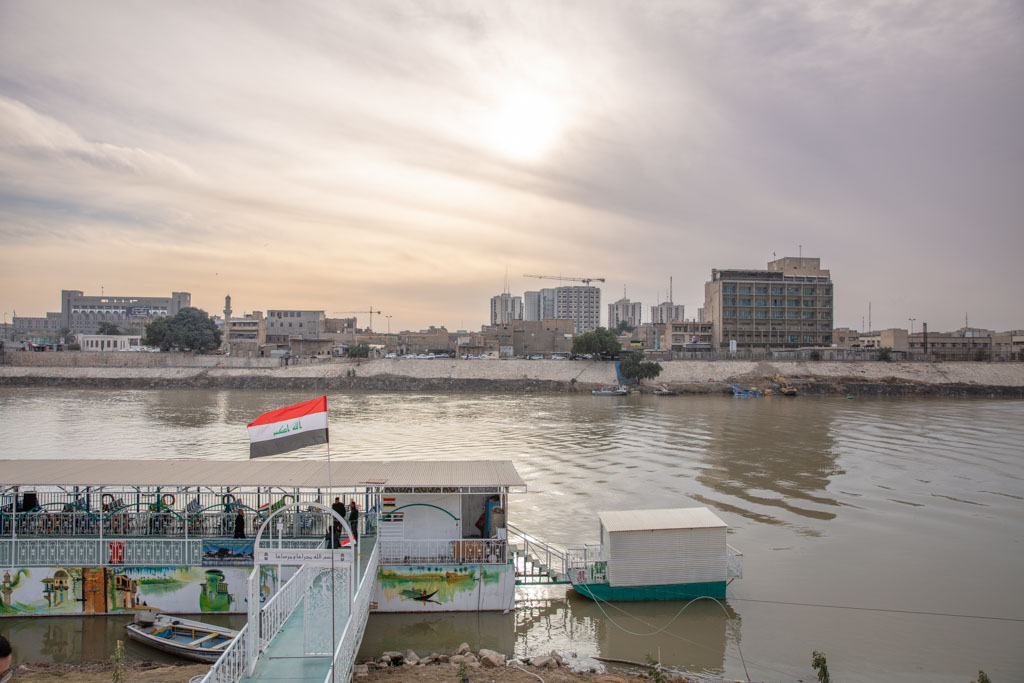
Getting Out of Baghdad
Getting out of Baghdad is relatively easy with frequent shared taxis departing to most cities around the country. Note that there are a couple of different garages around the city (garage is the word they use in Iraq in place of station or terminal).
Allawi Garage: You can find shared taxis and minibusses departing from Allawi Garage, but it’s important to note that it’s split into two with northbound transport leaving out of one side and southbound leaving out of the other. Go to the North Garage for transport to Mosul, Samarra, Tikrit, and most other destinations between them and go to the South Garage for transport to Hillah (Babylon), Karbala, Najaf, Nasiriyah, and Basra.
Alnahdha Garage : For northbound shared taxis and minibusses toward Iraqi Kurdistan (and that general direction) Alnahdha Garage is where you’ll want to go. The main destinations served from Alnahdha are Kirkuk, Erbil , and Sulaymaniyah.
Baghdad Central Station: Iraq has trains surprisingly, though the only route really open is Baghdad-Basra. The trains only depart Friday, Saturday, and Sunday nights and arrive the following morning. Read up more about the Baghdad-Basra train .
Safety in Baghdad
It’s no secret that Baghdad is not the safest city in the world, though it isn’t the most dangerous city either. With that said, you do need to exercise more caution in Baghdad than you would in most other destinations around the world.
Explosions, terrorist attacks, kidnappings, and bombings all still do occur from time to time which is why most foreign governments advise against any travel to Baghdad as well as the remainder of Iraq. Personally, I felt safe while visiting Baghdad despite the complex situation the city is in. Just know that security can change rapidly with little to no warning.
If you are highly concerned about safety while visiting Baghdad I would suggest hiring a local guide or local tour company such as Safraty to set up your trip and take the edge off for you.
Have any questions about visiting Baghdad?
Ask in the comments section below.
More posts from Iraq
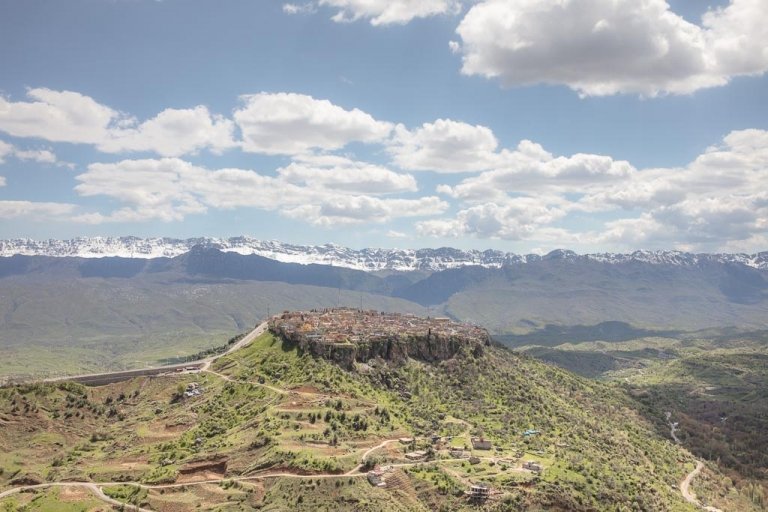
Visiting The Ancient Assyrian City Of Amedi, Iraqi Kurdistan
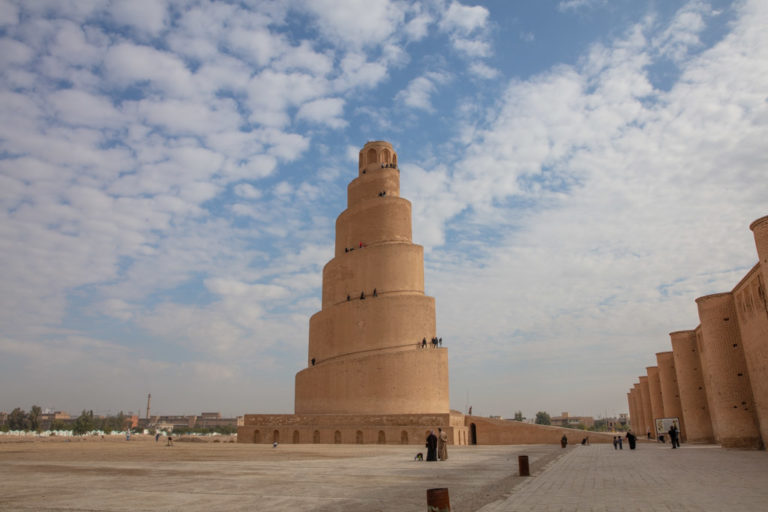
Iraq Travel Guide: Everything You Need to Know to Visit in 2024
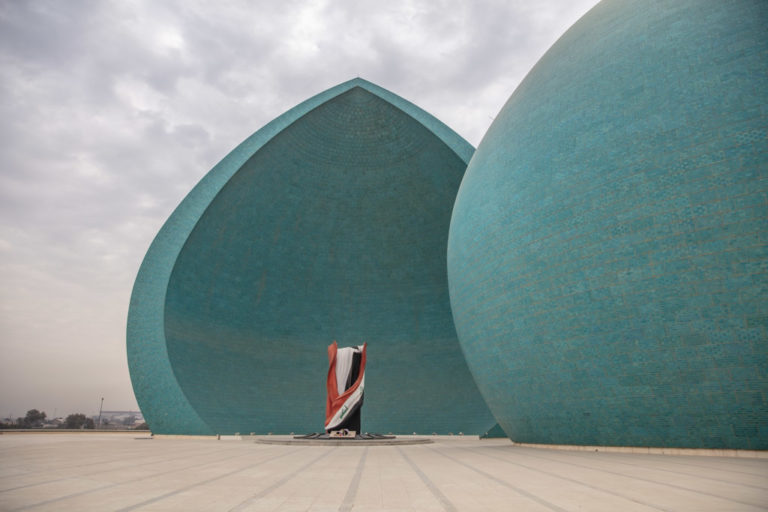
Iran-Iraq Border Crossing Report At Tamarchin/Haji Omaran
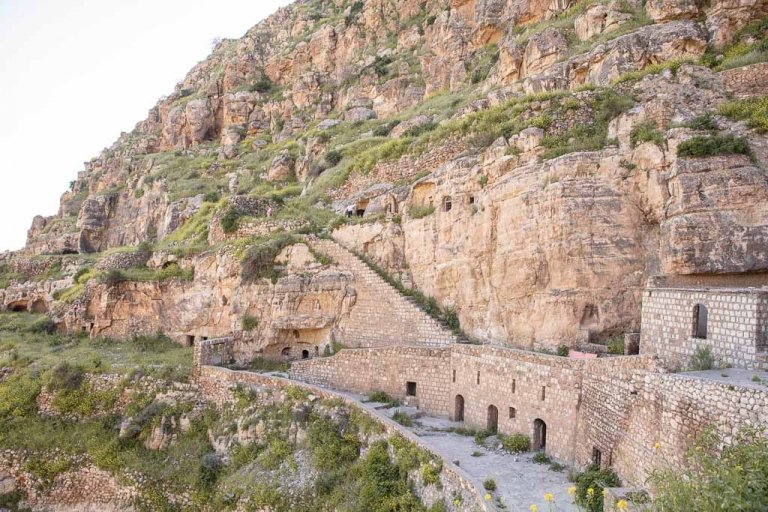
Rabban Hormizd Monastery in Alqosh
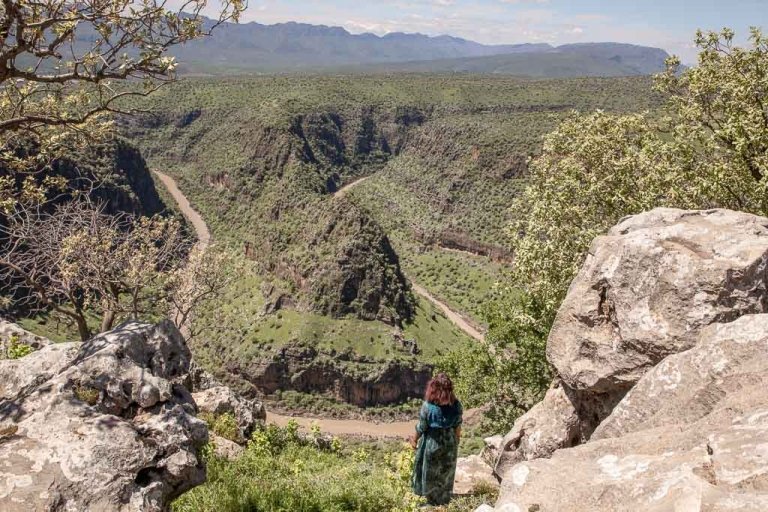
Visiting Dore Canyon Near Barzan, Iraqi Kurdistan
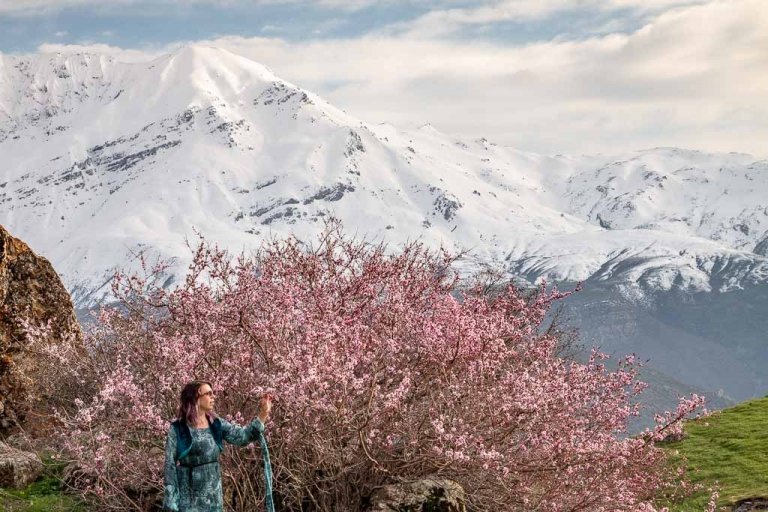
Solo Female Travel In Iraqi Kurdistan
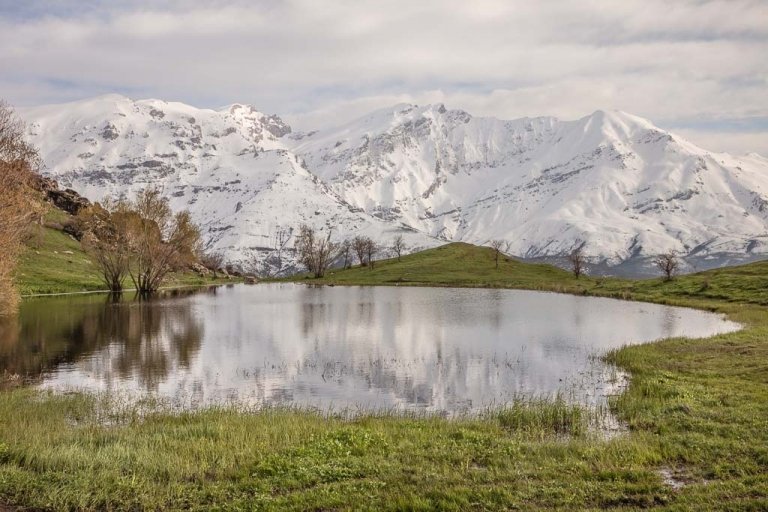
A Quick Guide To Iraqi Kurdistan Travel
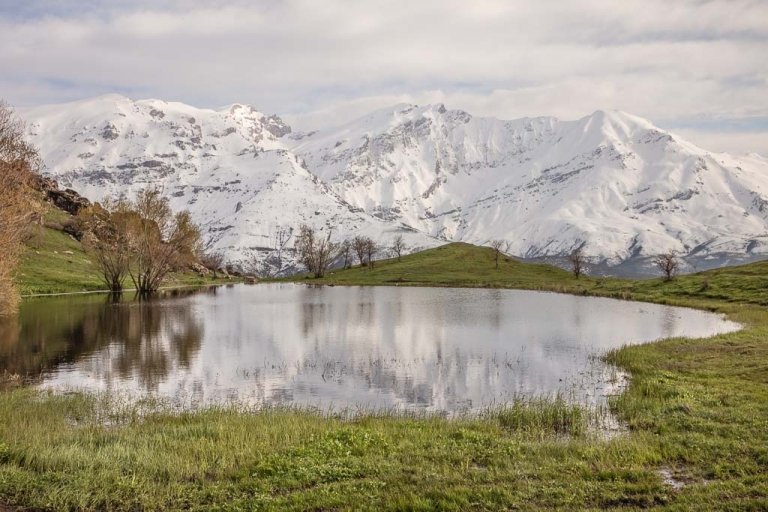
Soaring Mountains & Alpine Lakes In Gomi Felaw, Iraqi Kurdistan
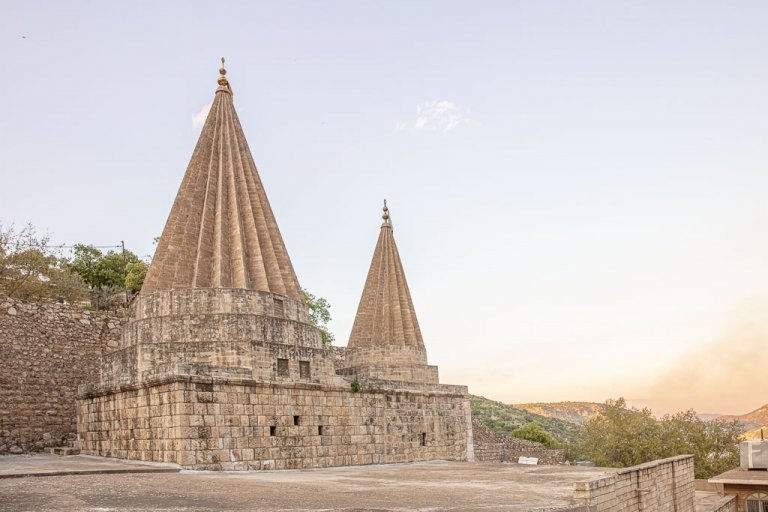
Visiting The Yazidi Holy Site Of Lalish, Iraqi Kurdistan
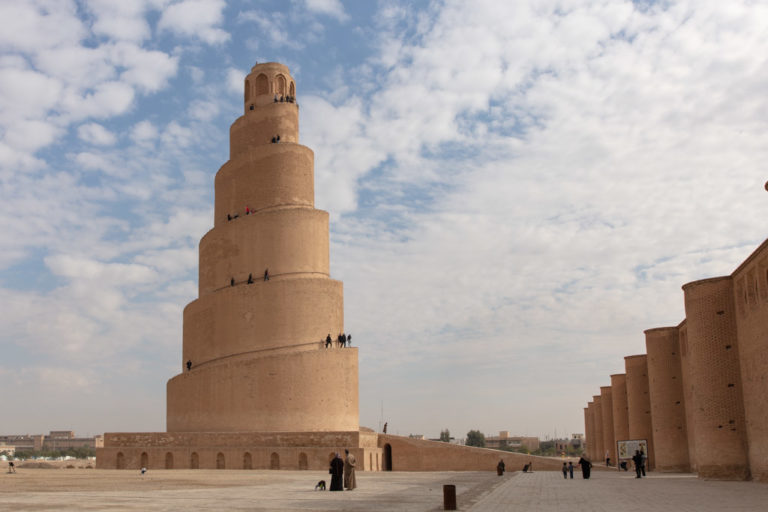
Visiting the Malwiya Tower & Grand Mosque in Samarra, Iraq
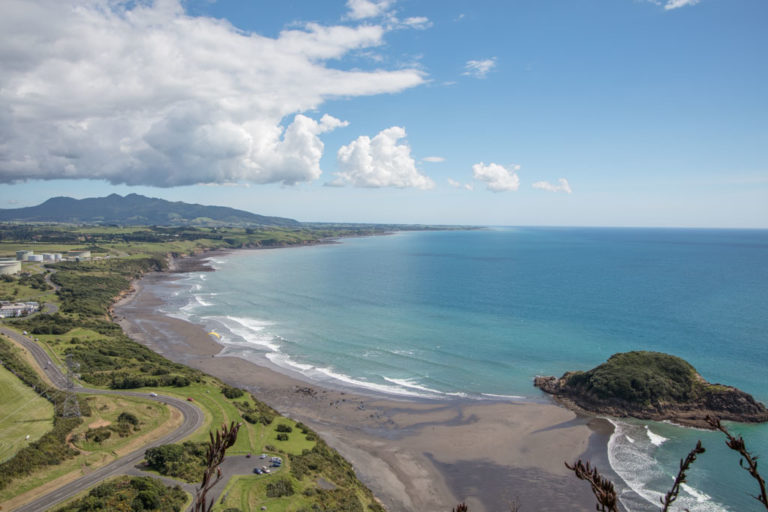
The Best Road Trips In The World
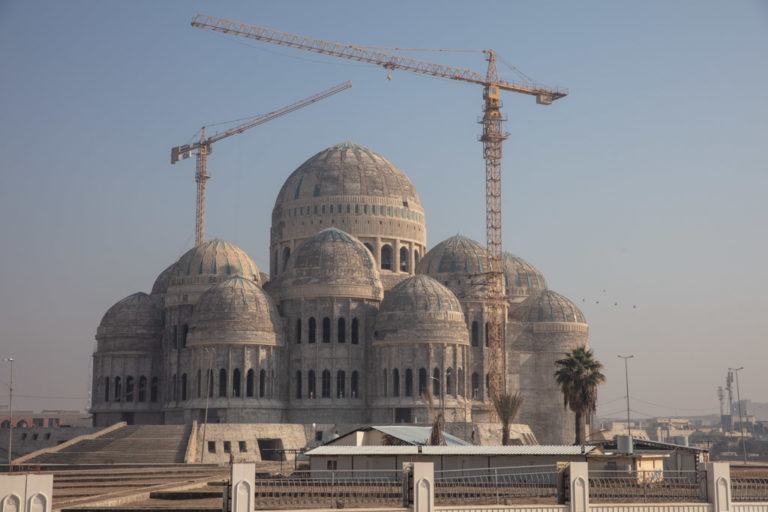
A Day Trip to Mosul, Visiting Iraq’s Destroyed City
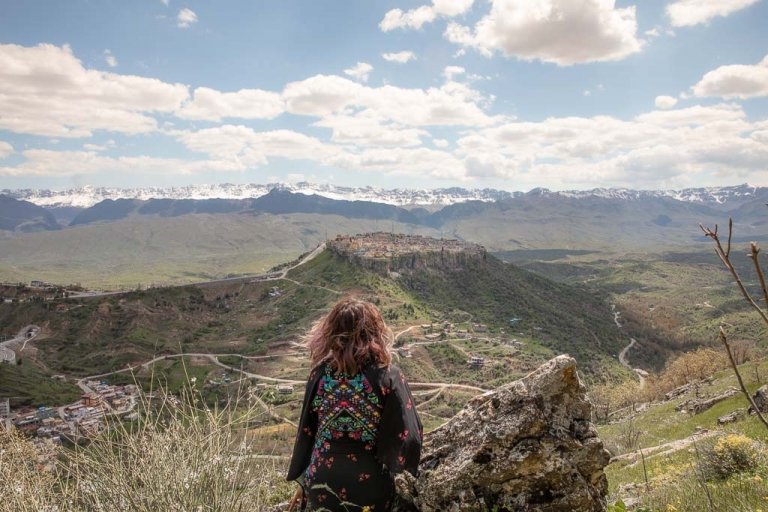
10 Day Iraqi Kurdistan Itinerary
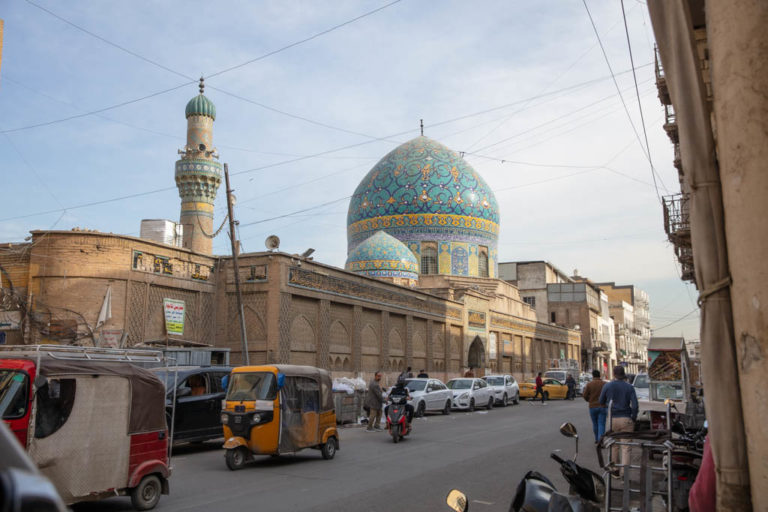
One Week Iraq Itinerary
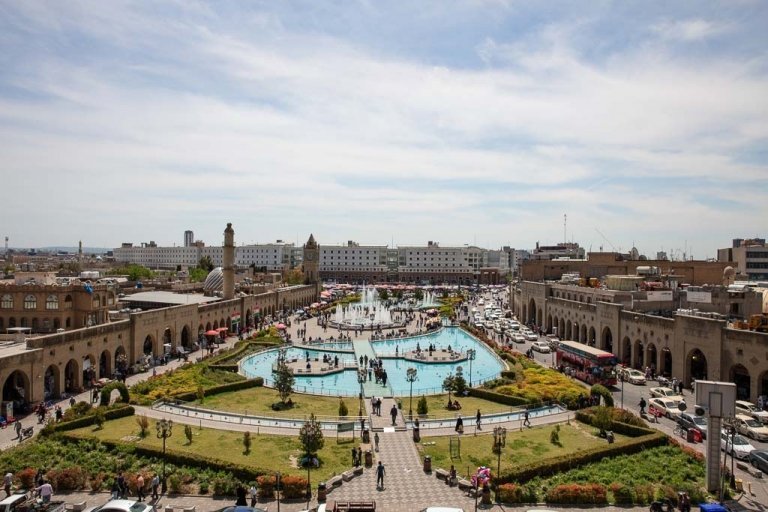
Erbil Travel Guide + 7 Things To Do In Erbil, Iraqi Kurdistan
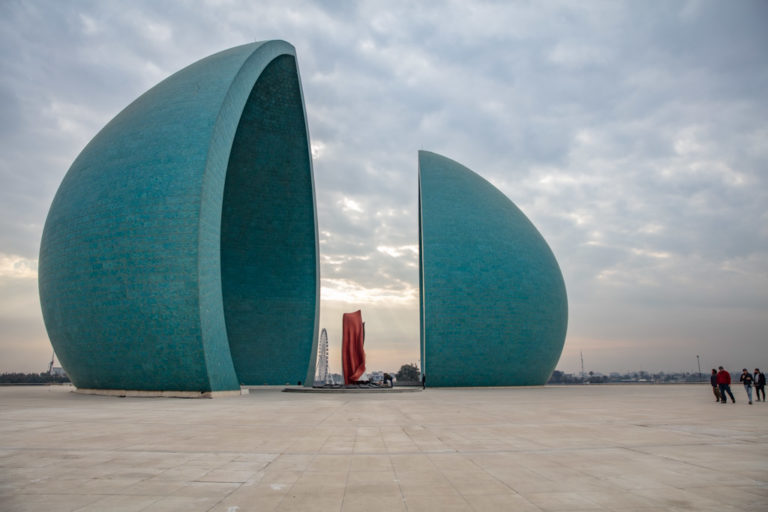
Iraq Tour: April 2022
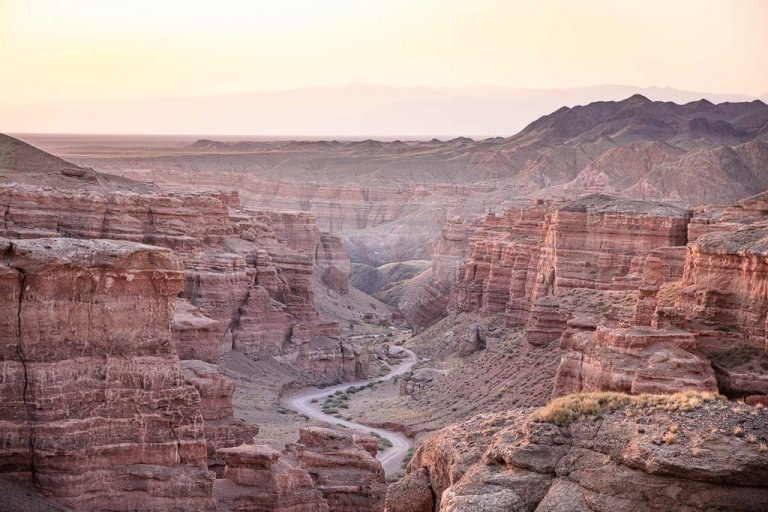
10 Off The Beaten Path Destinations For 2021
Leave a comment cancel reply.
Your email address will not be published. Required fields are marked *
Notify me of followup comments via e-mail. You can also subscribe without commenting.
This site uses Akismet to reduce spam. Learn how your comment data is processed .
- Philippines
- South Korea
- National Parks
- Travel Stories
- How Much Does It Actually Cost to Travel the World?
- What’s In My Backpack: The Ultimate Long-Term Travel Packing List
- My Favorite Non-Fiction Travel Books
- All Budget Travel Resources
- Writing Portfolio
The Best Iraq Travel Itinerary for 2024 (Map included)
This post may contain affiliate links. This just means I may receive a small commission at no extra cost to you for helping them promote their product or service. I don’t endorse any services I don’t personally use or recommend.
Iraq is not a country that requires a month-long stay. With the southern 3/4s of the country covered in barren flat desert your time in “federal” Iraq or the non-Kurdish region can be accomplished rather quickly. We decided, albeit a little ambitiously, to traverse the entire country (including Iraqi Kurdistan) in a little over 2 weeks. Unfortunately, that left little room for weather deviation, food poisoning, or just general exhaustion— but it can be done. If you’re short on time but want to experience the very best Iraq has to offer, here’s my 2-week Iraq travel guide complete with add-ons for travelers with more time.
Obviously, the more time you have the better…but I know a lot of you are working with a two-week vacation time window. So I’m here to help.
Your Complete Iraq Travel Itinerary
If you’re planning on visiting all of Iraq in one visit, you should stay for no less than 2 weeks. This Iraq travel itinerary will assume you have 2 weeks (maybe more) in Iraq. If you have less consider sticking to either Federal Iraq or Iraqi Kurdistan. Not both.
Before you dig into this Iraq itinerary be sure to browse my other guides covering budget travel in Iraq, everything you need to know before you go, + tips for staying safe as a solo woman.
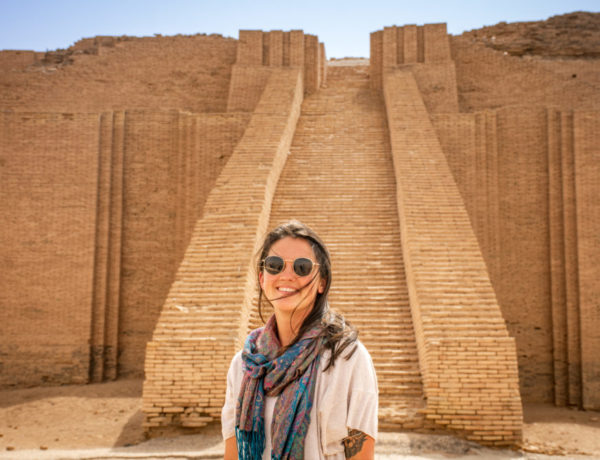
Is Iraq Safe? Tips From an American Woman Traveling Iraq
Is Iraq safe? For Americans? For solo women? Well, honestly, it’s a little complicated.…
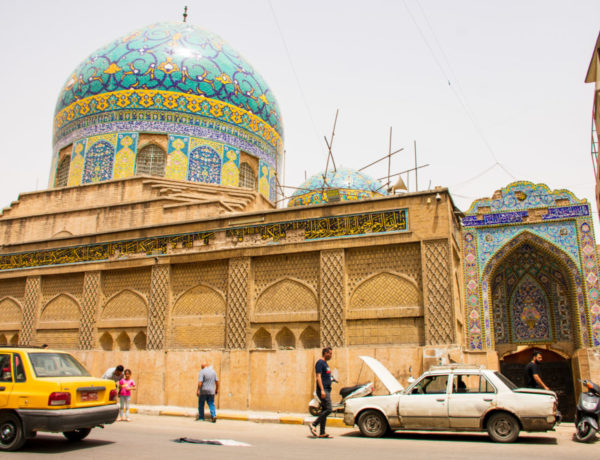
Everything You NEED to Know Before Visiting Iraq (+ Iraq Travel Tips)
Iraq can give even full-time travelers/travel experts a run for their money. These are…
Overview of Our Iraq Itinerary
- Baghdad – 3 Days
- Samarra – 1 Day
- Karbala + Babylon – 1 Day
- Basra – 1 Day
- Iraqi Marshes – 1 Day
- Najaf – 1 Day
- Mosul – 1 Day
- Iraqi Kurdistan – 5 to 6 Days
Iraq Travel Itinerary Map
I’ve gone ahead and created a map for you all with my favorite Iraq sights, hotels, and eats.
For the Kurdistan attractions (outside of Erbil) check out my Iraqi Kurdistan Road Trip map .
Baghdad (Day 1 + 2)
If you’re planning on visiting Federal Iraq as an American or European this is where you’ll want to fly for visa purposes.
Baghdad reminds me a lot of Cairo . Dusty, polluted, filled with crowded outdoor street markets, and studded with colorful domed mosques. It’s not a particularly good walking city so you’ll have to rely on taxis to get around. My favorite days in Baghdad were spent sipping sweet Iraqi tea in cafes surrounded by shisha smoking men & wandering random street markets. Also, be sure to try both the Raisin & Apricot juice.
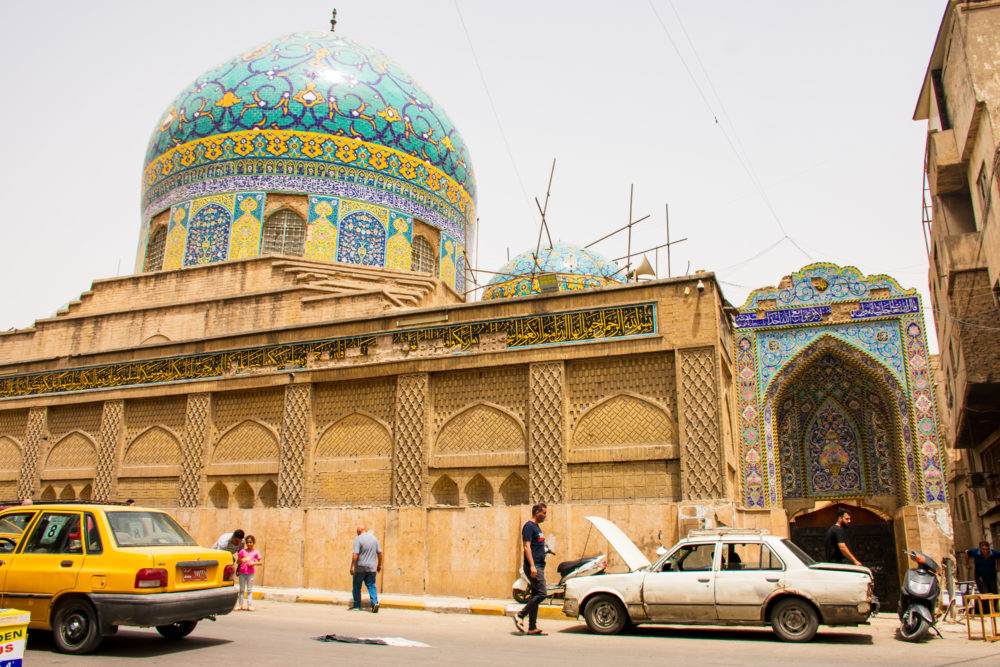
What to see in Baghdad
It’s good to have a few things in mind that you want to see. But Baghdad is best when you just pop into mosques and markets.
Martyrs Monument or Al-Shaheed Monument
These dramatic blue bell-shaped structures are great for iconic Iraq photos. The entrance fee is 3k IQD or $2 per person. It’s a little outside of town so I recommend getting a Careem.
Al Rashid Street, Al Mutanabi Street or Book Street , Abu Nawas Street
These are the three main walking streets. Al- Mutanabi is by far the most interesting. Known as “Book Street” it really comes alive at night as all the vendors display their wares.
“Cairo Writes, Beirut Prints, but Baghdad Reads”
Haji Zbala Juice Shop.
They have been serving fresh made juice for well over 100 years. The grape is the staple (or raisin). But sour apricot is also great.
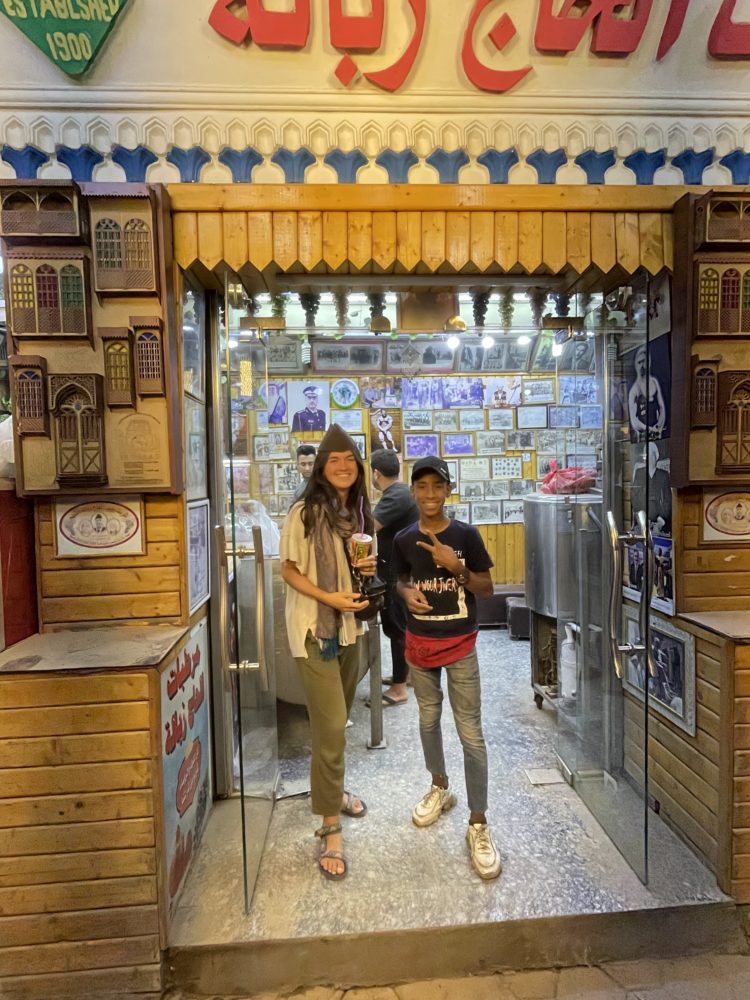
Shebandar Cafe.
This cafe is special. At first, it looks just like the rest of the tea shops in Baghdad. But the tea here is great + it’s been around for generations. The owner actually lost all 3 sons and 2 grandsons in a car bombing during the war.
Darbunah Restaurant.
If you’re looking for high-quality traditional Iraqi food…this is it. It’s a little on the higher end of the food spectrum but that does not mean small portions. If you walk here be prepared to show your passport at various street checkpoints.
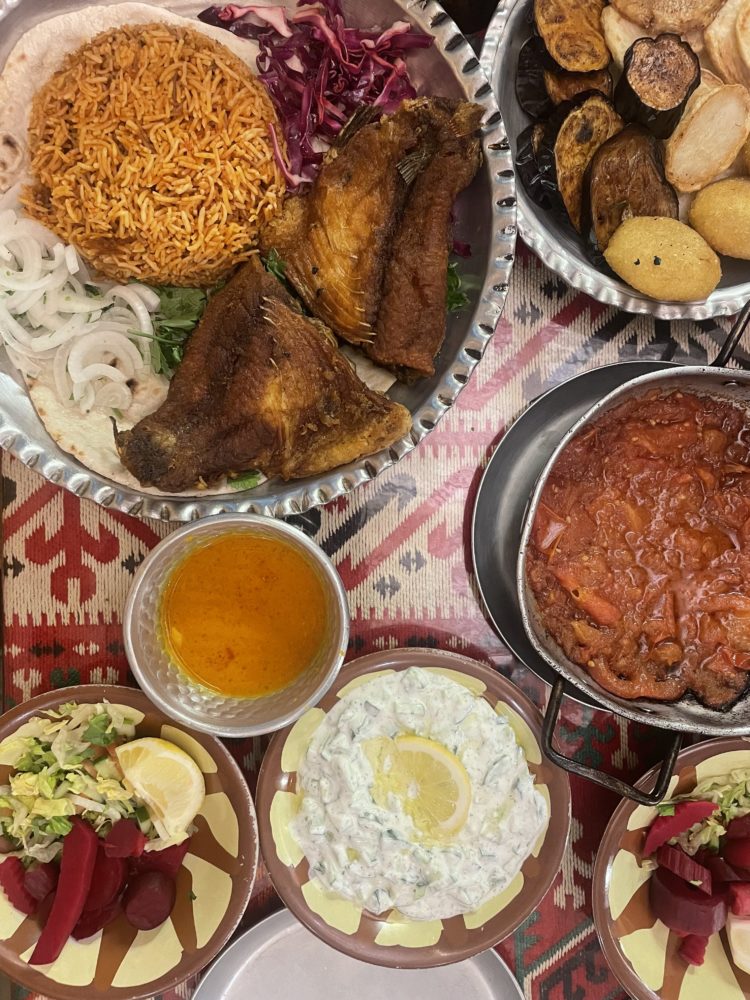
Al-Kadhimiyah Mosque, Ramadan Mosque, Mustansiriya Madrasa
The mosques in Baghdad are incredible. In all of Iraq really. Explore any + all that you can.
Copper Market
A love a good market. The copper market holds far more than simply copper. This market is your traditional Middle Eastern market filled with spices, housewares, food, and yes, hand-made copper goods.
Where to Stay in Baghdad: Royal Garden Hotel
60,000 IQD or $41 for a double suite. Tell them you’re a member of Iraqi Travelers Cafe to get this discounted price. Breakfast is included. There are some cheaper places to stay in Baghdad on the outskirts of town but since you’ll have to deal with taxis and finding your own breakfast (not super easy in Iraq) I recommend splurging on this one instead.
WhatsApp Number: +964 751 155 8090 (Shaima)
Another Cheaper Option: Kwestaan Hotel
This was recommended by a friend and fellow traveler. It should cost only 35,000 IQD for two people.
All hotels in Iraq are super expensive online. Don’t bother booking anything ahead of time either. You can arrange things via WhatsApp or just show up for a room.
Budget Travel Tip: Getting to/from Iraq is expensive. Pegasus is a low-cost Turkish airline that flies from Istanbul & Ankara to Iraq for super cheap. Consider combining your Iraq visit with a long stay in Istanbul to enjoy its incredible cafes. Check out my blog post filled with more Iraq budget traveler tips!
Add on Samarra (Day 3)
If you hate Baghdad (some people do) and are ready to leave after a single day or you have an extra day in Iraq you can visit the ancient city of Samarra and climb the spiraling minaret on a day trip. It takes about 2 hours one-way via minibus or shared taxi. Entrance tickets are about $17 pp.
Karbala + Babylon (Day 4)
Karbala. The holiest city for Shia/sunny Muslims in all of Iraq. You 100% cannot miss visiting the two shrines of Karbala. There are two holy cities in Iraq (Karbala + Najaf) & if you’re short on time and can only choose one…Karbala is the way to go.
Babylon is only a 40-minute bus ride from Karbala so the two destinations can easily be combined in a single day. Be sure to visit Saddams Palace while you’re in Babylon. It’s only a short taxi ride from the main gate.
For this Iraq travel itinerary, I recommend…
You leave early from your Baghdad hotel + head to the South Garage. Garage Allawi. From there, get on a bus to Hillah. This is the closest station to Babylon. From here, you’ll get a taxi to Ancient Babylon. It should cost you around $6. The main office or one of the guards at Ishtar Gate can watch your bags for an hour or two while you explore the city. Then take another taxi back to the Hillah Bus station (to Karbala). Grab a minibus to Karbala for $1.50 per person.
UPDATE: I’ve been told by a fellow traveler that while on the bus to Hillah you can inform the driver that you plan to go to Babylon and they will drop you off at a slightly closer point than Hillah station. You’ll still need to grab a taxi to the gate but it will be cheaper.
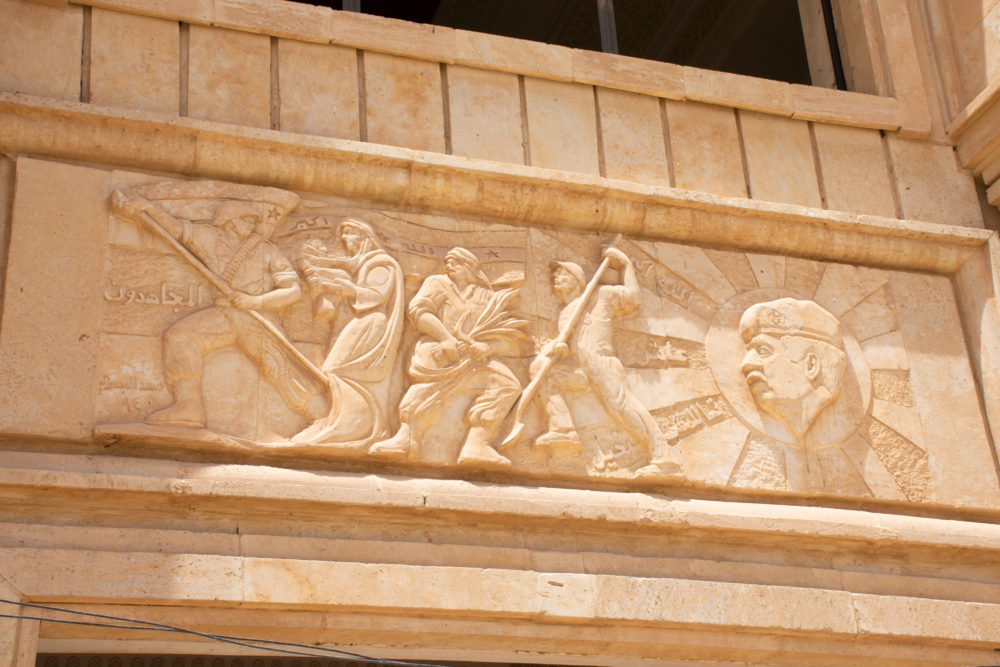
You could also take a minibus straight from Baghdad to Karbala, drop off your stuff at your hotel, & then head to Babylon and back to Karbala all in one day with no problem.
What to see in Karbala:
Imam hussein’s shrine + holy shrine of al abbas.
It’s best to visit these attractions late at night when they are fully lit. That’s what really makes them incredibly impressive. They are both open 24/7 and will be filled with other visitors at all times of the day. We went at 10 PM. But you could go as late as 3 AM if you’re inclined.
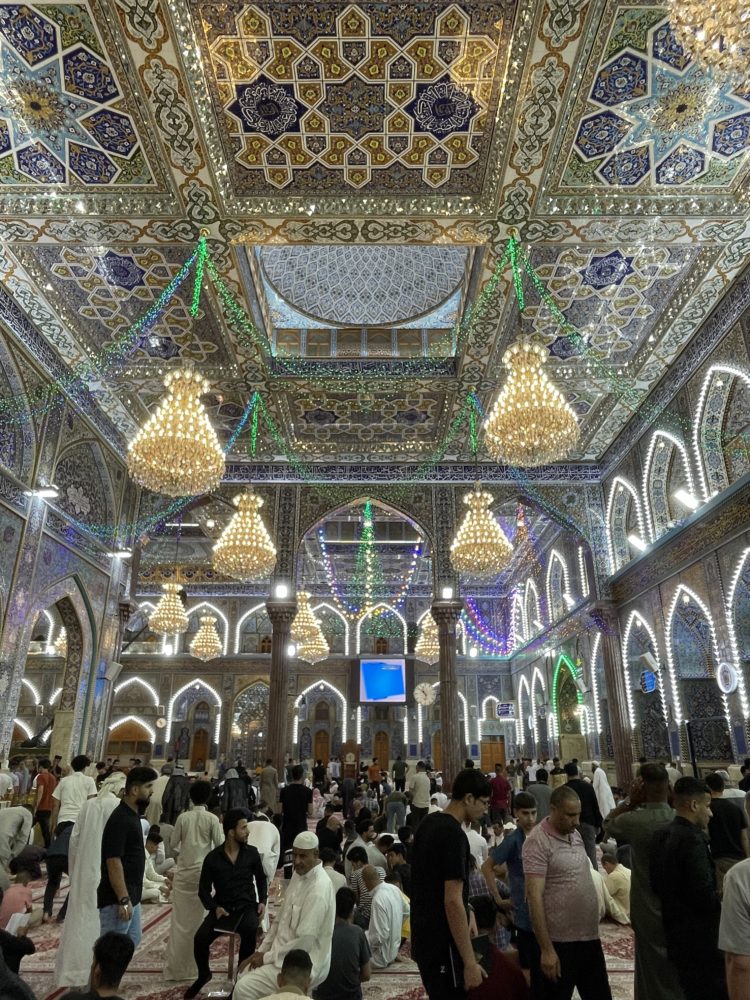
If you’re visiting during Ramadan, Eid, or another Muslim holiday Karbala is going to be packed. Book your accommodation way in advance.
Eat fatty coconut sweets + fresh juice.
All around the area of the shrines are dessert shops. Find the busiest one and try a few things. Desserts are a big deal in Iraq (all of the Middle East really) + you should sample all kinds of things you don’t recognize.
Where to stay: Jennet Al- Kawther
This place is a great budget option and should be $20 or less for a couple.
WhatsApp Number: +964 783 419 3970
Or Burg Karbala. This place is a good backup if it’s a holiday and everywhere else is full. Or if you are looking for something a little fancier. Due to its close proximity to the shrine, you must wear an abaya at all times if you’re a woman.
Women Visiting Karbala? To enter the shrine as a woman you’ll need to be dressed in a full abaya, not just a headscarf. You also can’t wear makeup, can’t bring in makeup (chapstick included), no nail polish, must wear socks, & must enter from the female inspection entrance. No cameras, bags, or phone power banks are allowed inside. Being a woman traveling independently in Iraq can be complicated. Read my whole blog post on tips for female travelers to Iraq for more information.
Add Najaf (Day 5)
If you have extra time catch a bus to the other holy city of Iraq. In a single day, you can visit the incredible shrine, the world’s largest cemetery (the second largest is in Peru ), & get a good feel for the small town.
Where to Stay: Hotel Al-Maqam
I did not stay overnight in Najaf. But this place was recommended to me by many other travelers as a solid budget-friendly option.
I’ve been told that Najaf + Kufa are both excellent places to visit (specifically the mosque in Kufa) so be sure to fit them into your itinerary if you can!
Mesopotamian Marshes (Day 6)
This is without a doubt the most unique & soon-to-be-famous attraction in all of Iraq. A must for your Iraq travel itinerary. If you visit Federal Iraq you must make it all the way south to the marshes.
Depending on how long you want to stay, visiting can be a little bit complicated, however. You essentially have two options.
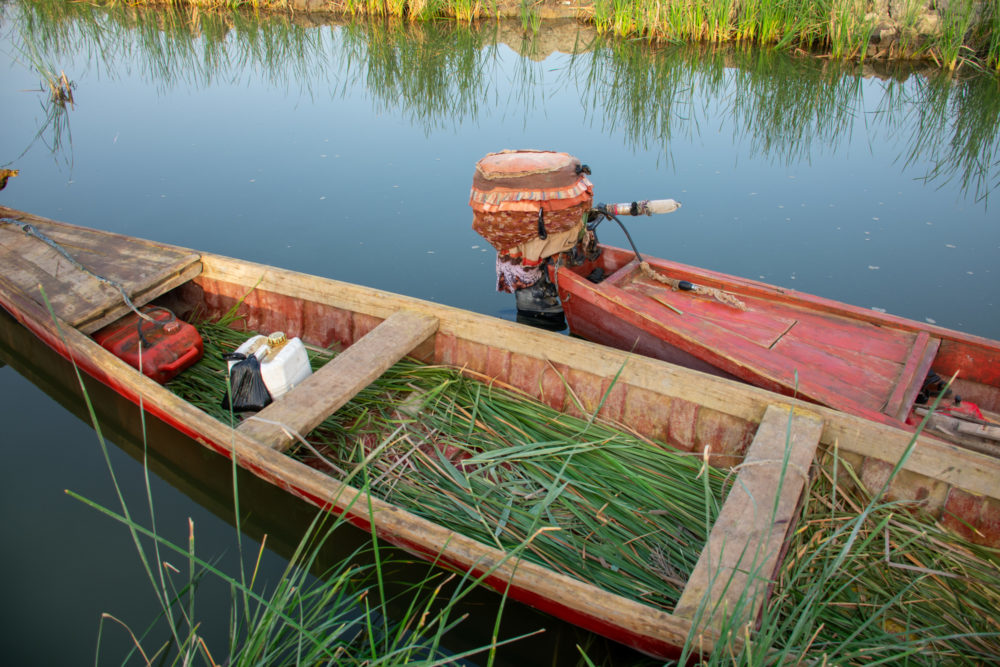
Option 1: Day Trip w/ 1 Night stay in Nasiriyah
Nasiriyah isn’t much in itself but it’s the closest town with lodging to the marshes. From here you can arrange a marsh tour with a street vendor or with Bilweekend (a company we used & highly recommend). A day visit should run about $30 for two and last 4-5 hours.
Option 2: Overnight stay in the Marshes.
This is the route we chose + have no regrets. Instead of staying in Nasiriyah, we arranged to go straight to the marshes with Bilweekend. You’ll get a sunset cruise, dinner, campfire, breakfast, & a morning tour of the marshes. Bilweekend is a well-known name in Iraq travel and they are super well-connected so expect to pay more than from other vendors. But I think the experience is worth it. I’ve been told that other vendors will take you into the marshes overnight for around $75 for two.
Should you stay overnight in the marshes? This is not for everyone. The marshes are remote, swampy, & you’ll have primitive sleeping conditions at best. I detailed the entire experience in another blog post you can read here to help you decide if this is your kind of adventure.
If you prefer to contact them via WhatsApp instead of Instagram… Bilweekend WhatsApp: +964 790 431 0853
Add Ziggurat of Ur
If you find yourself with a little extra time in Nasiriyah hire a taxi out to the Ziggurat of Ur! This massive structure is 4,500 years old and you can climb atop it for panoramic views. You only need an hour at the site itself.
2024 Update: You can no longer walk on top of the Ziggurat! This is likely due to increased tourism in Iraq and in an attempt to preserve the life of the Ziggurat for centuries to come.
You could also have seen this sight on your way to the marshes if you took a private taxi or guide.
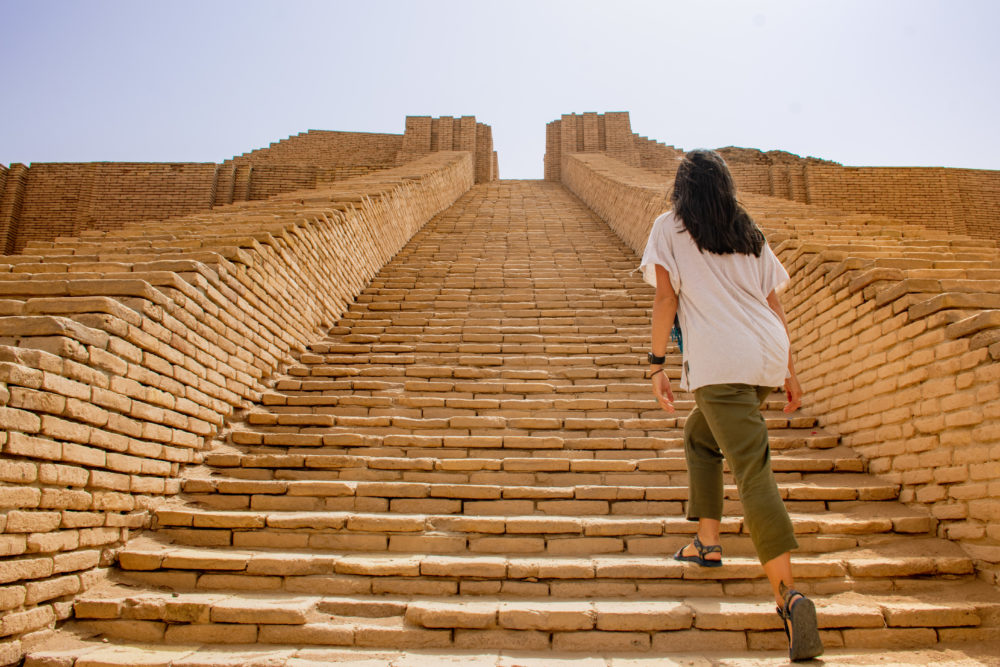
Why you *should* consider a tour of Federal Iraq. Many of these ancient sites (like Samarra or the Ziggurat of Ur) are far from modern cities which makes getting to them without the help of a tour complicated & expensive. Companies like Bilweekend can also ensure you get through all the necessary military checkpoints & get you access to places other tourists CAN’T go (like the famously destroyed mosque of Al-Nuri in Mosul). I rarely recommend tours but in Iraq’s case…the benefits are high and the relative cost increase is reasonable.
Add Basra (Day 7)
We skipped Basra so I don’t have a lot to say about things to do in the port city. Basra has loads of fish markets, a unique seafaring vibe, & is home to the only functional train in Iraq. It only runs certain days of the week (weekends I believe) & connects with Baghdad. This is a good option to get back to the city before entering Kurdistan if the dates line up for you.
Baghdad (Day 8)
Otherwise, it’s too much travel time for one day.
Whether you are coming from Basra or from Nasiriyah as we did, you have a 6+ hour journey ahead of you to get to Baghdad. I recommend spending the night here before you continue on to Mosul tomorrow. It’s another long stretch.
Mosul (Day 9)
Your last stop in Federal Iraq and perhaps the most infamous city in the country. From 2014 to 2017 the town was under ISIS’s control. From your first glance of the West side of the city, the destruction is apparent. Mosul is rebuilding quickly but this side of the river is absolutely decimated. Mosques, homes, and roadways lay in mountains of rubble. Bullet holes and bomb craters riddle every visible structure. Many buildings are just hollowed-out shells. But Mosul is undergoing a revival. Thanks to UNESCO, US, & UAE funds, historic buildings like the famous Al-Nuri mosque in Mosul are being restored.
Mosul is an important piece of the Iraq picture & an absolute must-visit on any Iraq travel itinerary.
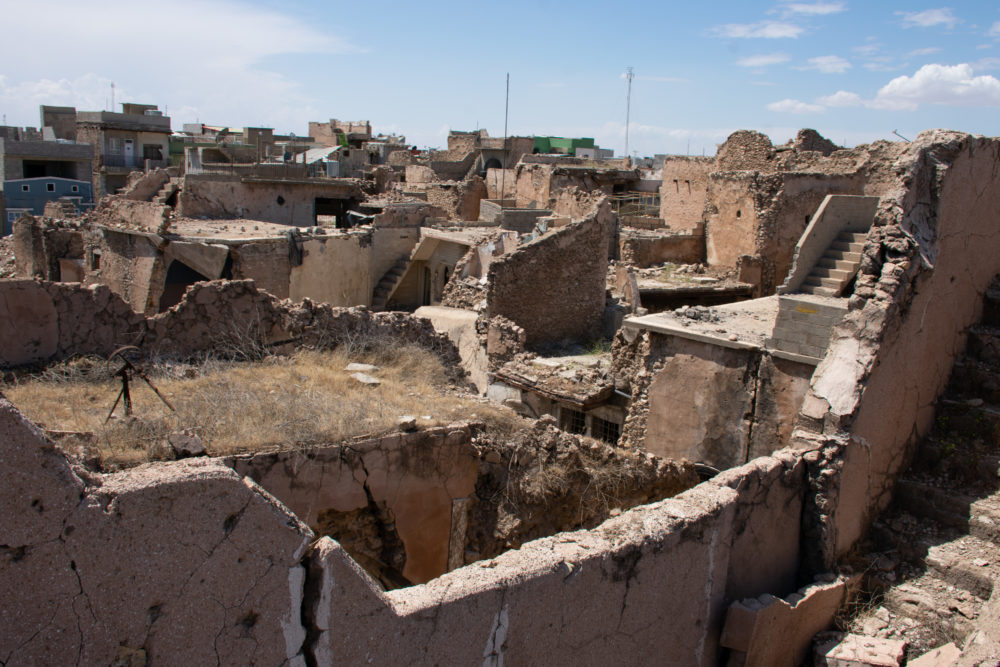
You should also walk through the Old Market and the areas around the Al-Nuri mosque to get a look at the remains of Mosul’s Old City.
Where to Stay: Alsfer Hotel
$15 for a two-person room. And it’s on the West side of the city which is infinitely more interesting.
Bilweekend Tour. We visited on a tour with Bilweekend and were granted access to the Al-Nuri Mosque, Syrian Catholic Church, and inside buildings still being cleared of land mines and explosives. I highly recommend at the very least, hiring a guide to get a little perspective on the horrors the people of Mosul endured for 3 years under the reign of ISIS.
Getting to Mosul
There is public transport that runs regularly from Baghdad. No checkpoints and it only takes about 4 hours.
Erbil (Day 10 + 11)
Welcome to Kurdistan. Although still technically a piece of Iraq this region could not be more different. For starters, it’s mountainous. Erbil is a lively little circular city with a massive central bazaar + park to wander, good food, and my favorite mosque in the Kurdistan region.
Road trip!! Iraqi Kurdistan is also one of the easiest, safest, & most spectacular road trip destinations in the Middle East. Think snow-covered mountain peaks, green hillsides dotted with wildflowers, winding cattle-filled roads, and countless scenic overlooks. The landscape here could not be more different from the deserts of federal Iraq. We did a 4-day road trip in Kurdistan & laid out everything you need to know in this separate blog post.
Where to Stay: Lord City Hotel
40,000 IQD or $27 for a double room. All the rooms here have squat toilets instead of European. They also have huge windows overlooking the main bazaar and park fountains. Parking here is horrendous but the location couldn’t be better for those traveling on foot.
What to See + Eat in Erbil
Citadel castle, grand bazaar, + main square.
This is the main tourist plaza. The market here is filled with worry beads, turquoise rings, and all kinds of other unique goods. The Citadel Castle is especially good for sunset.

Fancy Coffee Shop, Tea Shops, + The BEST Breakfast Place in Iraq
Unfortunately, you can’t locate these exact places on google maps. But I estimated on the map I provided for you. Walk the perimeter of the main bazaar and you’ll find lots of coffee and tea shops, world-class shawarma + falafel, tasty soft-serve (get the pistachio kind), and lots of street food.
My favorite place is an outdoor alleyway breakfast spot. It has the best tea in town + you can order eggs with soft fresh bread. Super cheap and very authentic. I put the rough location on the map I provided.
Hummus + Fuul (Syrian Cuisine)
If I had to pick one meal to re-eat from Iraq…it would be this one. Unfortunately, it’s super far outside of town. But it’s worth a cab ride. We ate there before returning our car rental after our Kurdistan road trip.
Jalil Khayat Mosque
Foreigners are only allowed inside the mosque from 9-11 AM. Come prepared with an abaya or headdress. It’s just as impressive inside as it is outside.
Tamdar Restaurant (Kurdish Cuisine)
Finding traditional Kurdish food done well is difficult. This place does it. Be warned it’s kinda expensive but the portions are large enough to share.
Iraqi Kurdistan Road Trip (Days 12-15)
Now scoot on over to my Iraqi Kurdistan Road Trip Itinerary for your last 4 days in Iraq.
If you are against renting a car or don’t have a license, continue reading. These next stops can all be reached via public transport. Or hitchhike if you’re feeling adventurous! It’s very common in Kurdistan.
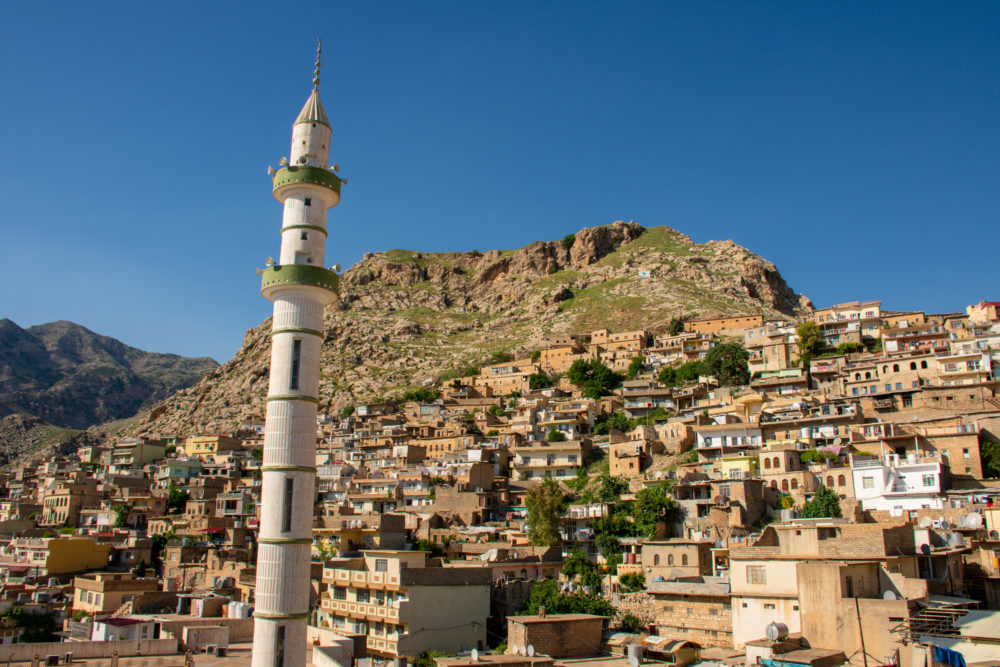
Akre (Alternative Day 12)
Perched on a mountainside Akre is both accessible by public transport and perfectly picturesque. As far as “attractions” go there are none specifically worth noting but these are my favorite viewpoints & overlooks to walk to in the city. Visiting here also gives you the opportunity to enjoy the Kurdish countryside & if you’re feeling up to it— go on a hike.
Why Akre instead of Amedi? Amedi is a photo-worthy town sitting on the top of a lone mesa. The only problem is without a car you won’t be able to easily get the dramatic sweeping views this town is known for. If you’re relying on public transit or hitchhiking (perfectly safe in Kurdistan) I would recommend visiting Akre instead.
Sulaymaniyah (Alternative Day 13 + 14)
The most blasphemous thing we did on our Iraq trip was to skip visiting Suli. This city is in the east corner of Kurdistan and is universally loved by travelers. Possibly because it’s the only city with a hostel in all of Iraq. Here you can visit the harrowing museums depicting the atrocities Saddam Hussein committed against the Kurdish people & also after, unwind with some panoramic Zagros mountain views.
Where to Stay: Dolphin Hostel
The only hostel in all of Iraq. The owner here is super helpful and kind. Be sure to book in person or via WhatsApp for the best price. And don’t forget to drop that you’re a member of the Iraqi Travellers Cafe on Facebook.
WhatsApp: +964 770 184 6332
If you’re like me you’ll probably end your trip through Iraq with a flight out of Erbil (known for its cheap flights to Turkey). And that’s a wrap. This is a jam-packed 2-week itinerary in Iraq. Personally, I think that just under 3 weeks is the perfect amount of time for the road trip + all the extra add-ons without completely burning the candle at both ends.
Let me know in the comments if you have any questions about Iraq or if you have any thoughts on other destinations to add to our Iraq travel itinerary!
Save This Post For Later!
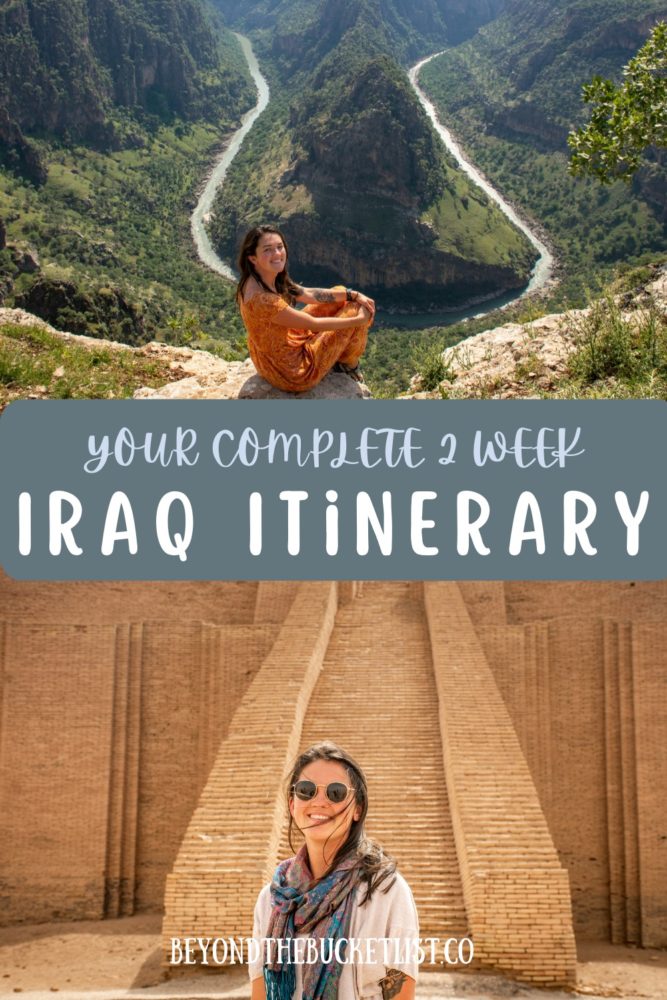
Further Reading...

13 Beautiful + Famous Places in Iraq You MUST Visit
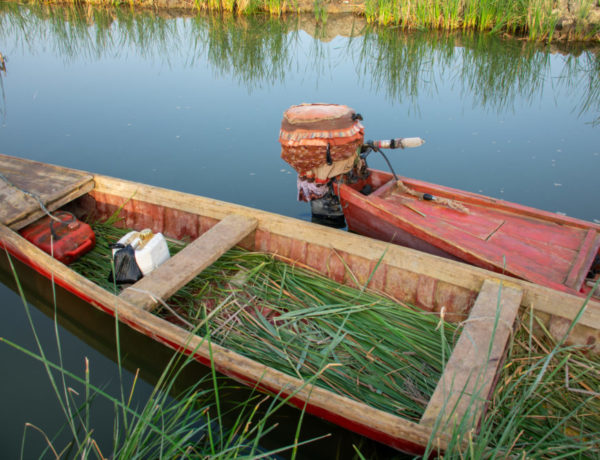
Guns, Methane Marshes, & Abou Haidar: Our Night Spent in the Heart of Ancient Mesopotamia
Very helpful post! Thank you so much for this! Is it easy to get shared taxis from one place to the other or you can get only obe or two per day? I am really between relying on public transportation and car rental!
Thank you for reading 🙂 It was very easy to get shared taxis between cities! I would recommend relying on public transit for federal Iraq and only renting a car in the Northern Iraqi Kurdistan region.
Very helpfull and inspirative 👍. Thank you
Leave a Reply Cancel Reply
Save my name, email, and website in this browser for the next time I comment.
Notify me of new posts by email.
Sign up to our newsletter!
This site uses Akismet to reduce spam. Learn how your comment data is processed .
How to Plan an Epic Iraqi Kurdistan Road Trip (Full Itinerary)
Beyond_the_bucketlist.


Tourism in Iraq
Disclaimer: Some posts on Tourism Teacher may contain affiliate links. If you appreciate this content, you can show your support by making a purchase through these links or by buying me a coffee . Thank you for your support!
Tourism in Iraq is growing. But why is this industry so important and how should it best be managed? Read on to find out…
Geography of Iraq
Tourism in iraq , statistics about tourism in ira, the most popular tourist attractions iraq, the most popular types of tourism iraq, the economic impacts of tourism in iraq, the social impacts of tourism in iraq, the environmental impacts of tourism in iraq, crime and safety iraq , the types of tourists travel iraq, faqs about tourism in iraq, to conclude: tourism in iraq.
Iraq is a country located in Western Asia, with a population of approximately 40 million people. It is bordered by Turkey to the north, Iran to the east, Kuwait to the southeast, Saudi Arabia to the south, Jordan to the southwest, and Syria to the west.
The geography of Iraq is largely characterized by two major rivers, the Tigris and Euphrates, which flow through the country from the northwest to the southeast, ultimately emptying into the Persian Gulf. These rivers have played a significant role in shaping the country’s history, providing water for agriculture and serving as important trade routes.
In addition to the rivers, Iraq features a variety of landscapes, including mountains, plains, and deserts. The northern part of the country is mountainous, with the Zagros Mountains extending into the northeast from neighboring Iran. The central and southern parts of the country are dominated by a vast desert plateau known as the Arabian Desert, which includes the vast Rub’ al-Khali (Empty Quarter) desert in the south.
The climate of Iraq is largely desert or semi-arid, with hot summers and mild winters. The country also experiences periodic droughts and sandstorms.
Iraq is home to a variety of ethnic and religious groups, including Arabs, Kurds, Turkmen, Assyrians, and others. The country has a rich cultural heritage, with historic sites such as the ancient city of Babylon and the ziggurat at Ur, as well as more recent landmarks such as the Al-Askari Shrine in Samarra. However, Iraq has also faced significant political instability and violence in recent decades, including the Gulf War, the Iraq War, and ongoing sectarian conflict.
The tourism industry in Iraq has been greatly affected by decades of political instability and violence. However, in recent years, the government has made efforts to revive the industry and promote Iraq as a tourist destination.

Iraq has a rich cultural and historical heritage, with numerous historic sites and landmarks, including the ancient city of Babylon, the ruins of Nineveh, the ancient city of Ur, and the Al-Askari Shrine in Samarra. The country also has several national parks and nature reserves, including the Mesopotamian Marshes, which were designated a UNESCO Biosphere Reserve in 2016.
To promote tourism, the Iraqi government has launched several initiatives, including the creation of a tourism board and the establishment of visa-free entry for citizens of several countries, including Iran, Turkey, and Egypt. The government has also invested in infrastructure and facilities to support tourism, including the construction of new hotels and the renovation of historic sites.
Despite these efforts, the tourism industry in Iraq still faces significant challenges, including ongoing security concerns and a lack of adequate infrastructure in some areas. However, with continued investment and support, Iraq has the potential to become a popular tourist destination and contribute to the country’s economic growth.
Now, lets demonstrate how significant tourism in Iraq is but highlighting some of the key statistics:
In 2018, the number of foreign visitors to Iraq was estimated to be around 1.8 million, up from 1.4 million in 2017.
The majority of foreign visitors to Iraq in 2018 came from neighboring countries, including Iran, Turkey, Kuwait, and Saudi Arabia.
The tourism industry in Iraq is estimated to have contributed around $1.6 billion to the country’s GDP in 2018.
The Iraqi government has set a target of attracting 5 million foreign visitors per year by 2025.
In 2019, the Iraqi government launched a tourism campaign called “Visit Iraq” to promote the country as a tourist destination.
The Mesopotamian Marshes, a UNESCO Biosphere Reserve, are one of Iraq’s most popular tourist destinations, attracting around 200,000 visitors per year.

In recent years, several new hotels and resorts have been built in Iraq, including the five-star Babylon Rotana Hotel in Baghdad and the Palm Beach Hotel in Basra.
The Al-Askari Shrine in Samarra, one of Iraq’s most important religious sites, has been rebuilt following a terrorist attack in 2006.
Iraq has a small but growing ecotourism industry, with tours of the Mesopotamian Marshes and other natural areas available.
Despite ongoing security concerns, some adventurous travelers have reported positive experiences visiting Iraq in recent years, citing the country’s friendly people, rich cultural heritage, and stunning landscapes.
Tourism in Iraq is largely popular due to its range of tourist attractions. Here are the major examples:
The ancient city of Babylon – Located south of Baghdad, this historic city is home to the ruins of the ancient Hanging Gardens of Babylon, one of the Seven Wonders of the Ancient World.
The ruins of Nineveh – Located near the city of Mosul, these ruins were once the capital of the Assyrian Empire and are home to several historic sites, including the Tomb of Jonah and the Palace of King Sennacherib.
The ziggurat at Ur – Located in southern Iraq, this ancient stepped pyramid is one of the best-preserved examples of Mesopotamian architecture.
The Al-Askari Shrine – Located in Samarra, this important Shiite Muslim shrine was damaged in a terrorist attack in 2006 but has since been rebuilt and is now one of Iraq’s most important religious sites.

The Mesopotamian Marshes – Located in southeastern Iraq, these marshes are home to a unique ecosystem and are a popular destination for ecotourists.
The Citadel of Erbil – Located in the northern city of Erbil, this historic fortress is one of the oldest continuously inhabited sites in the world.
The Basra War Cemetery – Located in the southern city of Basra, this cemetery is a memorial to the soldiers who died during the First and Second World Wars.
The Kurdish region – Located in northern Iraq, this region is home to several natural attractions, including the Zagros Mountains, the Gali Ali Beg Canyon, and the Harir Valley.
The Martyr Monument – Located in Baghdad, this monument commemorates the Iraqi soldiers who died in the Iran-Iraq War.
There are many types of tourism in Iraq, here are the most common:
Cultural tourism – Many visitors come to Iraq to explore the country’s rich cultural heritage, including ancient ruins, historic cities, and important religious sites. Popular cultural attractions include the ancient city of Babylon, the ruins of Nineveh, and the Al-Askari Shrine in Samarra.
Historical tourism – Iraq has a long and complex history, with many important events and figures that have shaped the country and the wider region. Historical tourism is a popular way to explore this heritage, with sites like the Citadel of Erbil and the Basra War Cemetery attracting many visitors.

Religious tourism – As a predominantly Muslim country, Iraq is an important destination for Muslim tourists seeking to explore their faith and visit important religious sites. The Al-Askari Shrine in Samarra is one of the most important religious sites in the country and attracts many visitors each year.
Ecotourism – Iraq is home to several natural attractions, including the Mesopotamian Marshes and the Kurdish region, which offer opportunities for hiking, birdwatching, and other outdoor activities. Ecotourism is a growing industry in Iraq, attracting visitors who are interested in exploring the country’s unique ecosystems and natural beauty.
Adventure tourism – Despite ongoing security concerns, some adventurous travelers visit Iraq to explore off-the-beaten-path destinations and experience the country’s rich culture and heritage. This type of tourism is not for everyone and requires careful planning and preparation, but can be a rewarding way to explore this fascinating country.
While the tourism industry in Iraq is still developing, there are already some notable impacts of tourism on the country. Here are some of the exotic impacts of tourism in Iraq:
Economic growth – Tourism has the potential to generate significant revenue for Iraq, creating jobs and supporting local businesses. As the tourism industry in the country continues to grow, it could help diversify the economy and support sustainable development.
Cultural preservation – The tourism industry can help preserve cultural heritage sites in Iraq by providing funds for their maintenance and restoration. This can help ensure that these important sites are preserved for future generations.
Increased awareness and understanding – As more tourists visit Iraq, there is an opportunity for increased awareness and understanding of the country’s culture and history. This can help break down stereotypes and misconceptions, promoting greater cross-cultural understanding and empathy.
Environmental conservation – Ecotourism can support conservation efforts in Iraq by raising awareness about the importance of preserving natural habitats and wildlife. This can help protect sensitive ecosystems and promote sustainable tourism practices.
Improved infrastructure – The development of the tourism industry in Iraq can lead to improvements in infrastructure, including transportation networks, accommodations, and other amenities. This can benefit not only tourists but also local residents by improving access to services and creating jobs in related industries.
However, it is worth noting that the impact of tourism on Iraq is still limited due to ongoing security concerns and infrastructure challenges. The country also faces significant cultural and social challenges, and the responsible development of the tourism industry will require careful planning and collaboration between stakeholders to ensure that the benefits are maximised and the negative impacts are minimised.
The tourism industry in Iraq has the potential to generate social impacts, both positive and negative. Here are some of the social impacts of tourism in Iraq:
Increased cultural exchange and understanding – Tourism can facilitate cultural exchange between tourists and local communities, promoting greater understanding and appreciation of different cultures. This can help break down stereotypes and promote greater empathy and understanding between people from different backgrounds.
Employment opportunities – The development of the tourism industry can create employment opportunities for local residents, including those in rural areas. This can help to reduce poverty and improve living standards for local communities.
Increased awareness of social issues – As tourists interact with local communities, they may become more aware of social issues affecting the country, such as poverty, gender inequality, and discrimination. This can lead to increased awareness and support for social justice causes.
Disruption of traditional ways of life – The influx of tourists can disrupt traditional ways of life for local communities, leading to changes in culture, values, and social norms. This can lead to tensions and conflicts between tourists and locals, and may threaten the preservation of local cultures and traditions.
Social inequality – The benefits of tourism may not be evenly distributed across society, with some communities and individuals benefiting more than others. This can exacerbate social inequalities and lead to resentment and tensions within local communities.
Degradation of cultural heritage – Uncontrolled tourism development can lead to the degradation of cultural heritage sites, through overuse, poor maintenance, or commercialization. This can threaten the preservation of important cultural assets, and may erode the authenticity and significance of local cultures.
Overall, the social impacts of tourism in Iraq are complex and multifaceted. The responsible development of the tourism industry will require careful consideration of these impacts, and a commitment to ensuring that the benefits of tourism are maximized and the negative impacts are minimizedThe tourism industry in Iraq has the potential to generate social impacts, both positive and negative. Here are some of the social impacts of tourism in Iraq:
Increased cultural exchange and understanding – Tourism in Iraq can facilitate cultural exchange between tourists and local communities, promoting greater understanding and appreciation of different cultures. This can help break down stereotypes and promote greater empathy and understanding between people from different backgrounds.
Social inequality – The benefits of tourism in Iraq may not be evenly distributed across society, with some communities and individuals benefiting more than others. This can exacerbate social inequalities and lead to resentment and tensions within local communities.
Overall, the social impacts of tourism in Iraq are complex and multifaceted. The responsible development of the tourism industry will require careful consideration of these impacts, and a commitment to ensuring that the benefits of tourism are maximised and the negative impacts are minimised ..
The tourism industry in Iraq can also have significant environmental impacts. Here are some of the environmental impacts of tourism in Iraq:
Damage to natural habitats – The development of tourism infrastructure can lead to habitat destruction, particularly in sensitive ecosystems such as wetlands and coastal areas. This can lead to the loss of important wildlife habitats and threaten biodiversity.
Increased pollution – As the number of tourists increases, so does the amount of waste generated, including plastics and other non-biodegradable materials. This can lead to increased pollution, particularly in areas with limited waste management infrastructure.
Resource depletion – Tourism in Iraq can increase demand for natural resources such as water and energy, putting pressure on local resources and potentially exacerbating existing resource scarcity issues.
Climate change – Tourism in Iraq can be a significant contributor to greenhouse gas emissions, particularly through air travel. This can exacerbate climate change, leading to a range of environmental impacts such as sea level rise, increased extreme weather events, and ecosystem disruption.
Wildlife disturbance – Uncontrolled tourism in Iraq can lead to wildlife disturbance, through activities such as off-road driving, excessive noise, and hunting. This can disrupt natural ecosystems and threaten the survival of wildlife species.
Water pollution – Tourism activities can contribute to water pollution, through activities such as sewage discharge and littering. This can have significant impacts on water quality and human health, particularly in areas where clean water is already scarce.
Overall, the tourism industry in Iraq must be developed with careful consideration of these environmental impacts. Sustainable tourism practices, such as reducing waste and energy use, protecting natural habitats, and promoting responsible wildlife viewing, can help to mitigate these impacts and ensure that the benefits of tourism are maximized while minimizing negative environmental impacts.
Resource depletion – Tourism can increase demand for natural resources such as water and energy, putting pressure on local resources and potentially exacerbating existing resource scarcity issues.
Climate change – Tourism can be a significant contributor to greenhouse gas emissions, particularly through air travel. This can exacerbate climate change, leading to a range of environmental impacts such as sea level rise, increased extreme weather events, and ecosystem disruption.
Wildlife disturbance – Uncontrolled tourism can lead to wildlife disturbance, through activities such as off-road driving, excessive noise, and hunting. This can disrupt natural ecosystems and threaten the survival of wildlife species.
Overall, the tourism industry in Iraq must be developed with careful consideration of these environmental impacts. Sustainable tourism practices, such as reducing waste and energy use, protecting natural habitats, and promoting responsible wildlife viewing, can help to mitigate these impacts and ensure that the benefits of tourism are maximised while minimising negative environmental impacts.
Due to the security situation and ongoing conflicts in some parts of the country, tourism in Iraq is not as developed as in many other countries in the region. As a result, the types of tourists who travel to Iraq tend to be limited in number and specific in their interests. Here are some of the types of tourists who may travel to Iraq:
Business travelers – Iraq has significant oil reserves and a growing economy, which attracts a number of business travelers to the country. These travelers may visit for meetings, negotiations, and other business-related activities.
Religious pilgrims – Iraq is home to a number of important religious sites, including the Shia holy cities of Najaf and Karbala, which attract Shia Muslim pilgrims from around the world.
History and culture enthusiasts – Iraq has a rich history and culture, with important archaeological sites and cultural attractions such as the ancient city of Babylon and the National Museum of Iraq in Baghdad. Travelers interested in history and culture may visit Iraq to learn more about the country’s past and present.
Adventure travelers – Despite the security risks, there are some adventurous travelers who may be drawn to Iraq for its rugged landscapes and off-the-beaten-path experiences.
Diplomats and journalists – Iraq is home to a number of foreign diplomats and journalists who may travel to the country for work-related purposes.
Overall, tourism in Iraq is limited, and the types of tourists who travel to the country tend to have specific interests or reasons for visiting. It is important for visitors to carefully consider the security situation and take appropriate precautions to ensure their safety.

Now that we know a bit more about tourism in Iraq, lets answer some of the most common questions on this topic:
Iraq safe for tourists?
Answer: Iraq has been affected by conflicts and political instability in recent years, and the security situation in some areas is still volatile. Therefore, the U.S. State Department has issued a Level 4 travel advisory for Iraq, which advises against all travel to the country. This means that the U.S. government does not recommend travel to Iraq for any reason.
Can tourists obtain a visa to enter Iraq?
Answer: Yes, tourists can obtain a visa to enter Iraq by applying at an Iraqi embassy or consulate in their home country. However, the visa application process can be lengthy and complicated, and travelers may need to provide additional documentation to support their application.
What are the popular tourist destinations in Iraq?
Answer: Iraq has a rich cultural and historical heritage, and there are several popular tourist destinations in the country, including the ancient city of Babylon, the ruins of the ancient city of Nineveh, the Kurdish region in the north, and the city of Najaf, which is an important center of Shia Islam.
What is the best time of year to visit Iraq?
Answer: The best time to visit Iraq is during the spring (March-May) or the fall (September-November), when the weather is mild and comfortable. Summers can be hot and dry, while winters can be cold and rainy.
What types of accommodations are available for tourists in Iraq?
Answer: There are a variety of accommodations available for tourists in Iraq, including hotels, guesthouses, and hostels. However, the quality of these accommodations can vary widely, and visitors should do their research before booking a place to stay.
What is the currency used in Iraq?
Answer: The currency used in Iraq is the Iraqi dinar (IQD).
Can tourists use credit cards in Iraq?
Answer: Credit cards are not widely accepted in Iraq, and visitors should be prepared to use cash for most transactions.
What is the official language of Iraq?
Answer: The official language of Iraq is Arabic, but Kurdish and other languages are also spoken in certain regions of the country.
What should tourists wear when visiting Iraq?
Answer: Iraq is a conservative country, and visitors should dress modestly when in public. Women should cover their heads and wear long-sleeved shirts and pants or long skirts. Men should also dress conservatively and avoid wearing shorts.
What are the transportation options for tourists in Iraq?
Answer: Transportation options for tourists in Iraq include taxis, buses, and rental cars. However, visitors should be aware that the road network in some areas of the country is poorly maintained, and driving can be hazardous.
As you can see, tourism in Iraq is a very important industry that brings many benefits to the local area and community. However, in order to ensure that tourism is sustainable, it must be carefully managed.
If you enjoyed this article about tourism in Iraq, I am sure you will like these too:
- 25 Surprising Facts About Iraq!
- 12 Things to know About the Desert in Syria
- Hard and soft power: Made SIMPLE
- 25 Biggest Deserts of the World
- The 8 Driest Deserts Of The World + Fascinating Facts
Liked this article? Click to share!
Top Things to Do in Iraq - Iraq Must-See Attractions
Things to do in iraq, explore popular experiences, popular cities in iraq.

Top Attractions in Iraq

What travellers are saying

Top Iraq Attractions
Things to do in iraq, explore popular experiences, popular cities in iraq.

Top Attractions in Iraq

What travelers are saying


IMAGES
COMMENTS
1. Erbil Citadel. 356. Historic Sites. Ancient citadel dating back to 6,000 B.C., covering 110,000 square meters, with three distinct quarters showcasing historic houses adorned with intricate decorations. Optimal visits are from Saturday to Wednesday to avoid the crowds. 2. Sami Abdulrahman Park.
Lets explore the best places to visit in Iraq: 1. Erbil. The 7,000 year old citadel of Erbil has an illustrious history and can be compared to other greats like Cadiz and Byblos. The massive castle in the center of the city is the great highlight here, and also a UNESCO World Heritage Site.
6. Nasiriyah. Nasiriyah, situated along the banks of the Euphrates River, is one of those places to visit in Iraq that offers a harmonious blend of history and natural beauty. As you approach the city, the shimmering waters of the river, lined with lush date palm groves, present a picturesque welcome.
Updated March 2024, Iraq Travel Guide was originally published in January 2022. I first stepped foot in Iraq back in 2019, visiting the far north- only to spiral my curiosity into the country even further (the same thing happened to me in Afghanistan years ago, so I should have known better), bringing me back to travel Iraq yet again in 2021 ...
Middle East. Torn between its glorious past and its recent bloody history, Iraq is a country in turmoil. Just as the place was beginning to recover from the 2003 US-led invasion and its aftermath, jihadist group Isis took control of large swathes of the country's north in 2014. The tide may have turned back in favour of the Iraqi government ...
5. The Iraq Museum. 104. Speciality Museums. By 68bashara. Go back to mesopotamia civilization to see the first education system and first civilization on the earth ,, it's a... 6. Al-Jawadain Holy Shrine. 52.
Iraq Tourism: Tripadvisor has 16,168 reviews of Iraq Hotels, Attractions, and Restaurants making it your best Iraq resource.
1. Erbil Citadel. 356. Historic Sites. By rebanda2022. Erbil citadel is one of the best attraction sites in erbil , citadel is so old that even the oldest historical refere... 2. Imam Ali Holy Shrine. 84.
Visit Iraq - 25 Amazing Places: Monuments, Ancient cities, Holy shrines. Discover beautiful travel destinations: Babylon, Erbil, Najaf, Baghdad, Karbala. 25 of the Best Places to Visit in Iraq (2019) Iraq is a fascinating country located in Western Asia.
By Chico-Vila. The Citadel and the surroundings are truly special and very lively, with the bazaar, tea houses and restaurants around. 2. Sami Abdulrahman Park. 389. Parks. By 12345679987654321123. Best pizza in erbil and fantastic staff. Real Italian food made by Italian chefs must visit if in erbil.
1. Al-Mutanabbi Street in Baghdad. Baghdad is a sprawling city, mostly constructed in shades of yellow and often only a few stories high. Sparse greenery breaks up the dusty landscape. Al-Mutanabbi street is the "tourist center" of Baghdad if you can say there is one. Its other name is book street.
The tourism in Iraq has faced many challenges, however, in recent years there has been improvements. The capital city Baghdad is the second largest city in the Arab world and the 4th largest in the Middle East. Iraq has several World Heritage Sites, dating back to ancient Mesopotamia, most notably Babylon Iraq.
Entrance fee: 25 000 IQD (~17 EUR) like most tourist attractions in Iraq. 3. Fallujah and Ramadi - interesting places to visit in Iraq. Fallujah and Ramadi had been popular touristic destinations in Iraq. However, they made headlines in 2014 when ISIS seized a large part of Anbar, including Fallujah and Ramadi, causing enormous destruction.
City Star Mall. 54. Shopping Malls. City Star Mall is one of the biggest and most beautiful mall over Iraq. It located at the center of Sulaymaniyah city. The mall opened in November 24, 2011. See full details. 8. Al Abbas Holy Shrine.
Iraq (Arabic: العراق Al-Irāq, Kurdish: عێراق Êraq) is a republic in the Middle East.It has an extremely rich history and culture that is still visible today, although accessing it may pose some challenges to visitors. It was once host to the region of ancient Mesopotamia, often called the "cradle of civilisation".After the rise of Islam, Baghdad became a center of learning and the ...
8. Find Venice in Iraq. Basra, the port of Iraq, is also the home to what is known as the "Venice of the East"- canals lined up by houses built in the 19th century. Visit the Old City of Basra and you'll find some of the most awesome architecture there probably is in the country.
Welcome to this awesome list of the best, most interesting and most beautiful tourist attractions in Iraq that are accessible today. The list starts with the best and most beautiful places in the south of Iraq and continues with the best and most beautiful places to visit in Iraqi Kurdistan. You'll read about the importance or/and
Tahrir Square. Tahrir Square is the largest public square in Baghdad, located in the Al Rusafa Neighborhood. Tahrir means liberation in Arabic and was named so to commemorate the formation of the Republic of Iraq in 1958. A prominent feature of Tahrir Square is the Nasb al Hurriyah Monument (Freedom Monument), depicting historic events in Iraq ...
Option 1: Day Trip w/ 1 Night stay in Nasiriyah. Nasiriyah isn't much in itself but it's the closest town with lodging to the marshes. From here you can arrange a marsh tour with a street vendor or with Bilweekend (a company we used & highly recommend). A day visit should run about $30 for two and last 4-5 hours.
The most popular tourist attractions Iraq. Tourism in Iraq is largely popular due to its range of tourist attractions. Here are the major examples: The ancient city of Babylon - Located south of Baghdad, this historic city is home to the ruins of the ancient Hanging Gardens of Babylon, one of the Seven Wonders of the Ancient World.
By Snaaemi. It's a holly Shrine , so unless you are curious or have a religious motive , it's not the place to visit , normally is... 7. City Star Mall. 54. Shopping Malls. City Star Mall is one of the biggest and most beautiful mall over Iraq. It located at the center of Sulaymaniyah city. The mall opened in November 24, 2011.
By Snaaemi. It's a holly Shrine , so unless you are curious or have a religious motive , it's not the place to visit , normally is... 7. City Star Mall. 54. Shopping Malls. City Star Mall is one of the biggest and most beautiful mall over Iraq. It located at the center of Sulaymaniyah city. The mall opened in November 24, 2011.
Best places to travel to in Iraqi Kurdistan: Erbil, Lalish, Alqosh, Mar Mattai Monastery, Akre, Soran, Rawanduz, Amediya, Sulaymaniya, Halabja. Iraqi Kurdistan is an autonomous region recognized by the Republic of Iraq since 2007. Thus, Iraqi Kurdistan has its own borders, government, and military, in the northern part of Iraq. ...